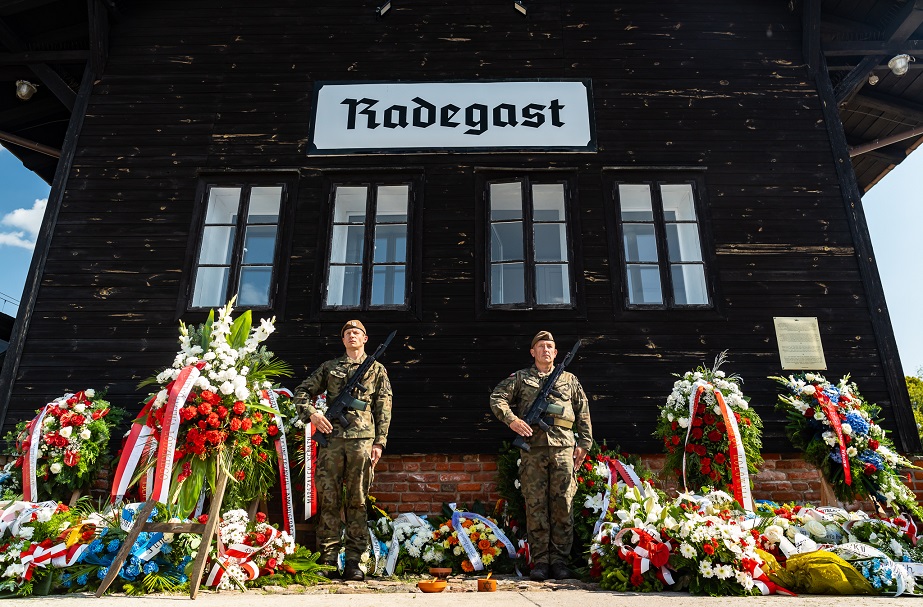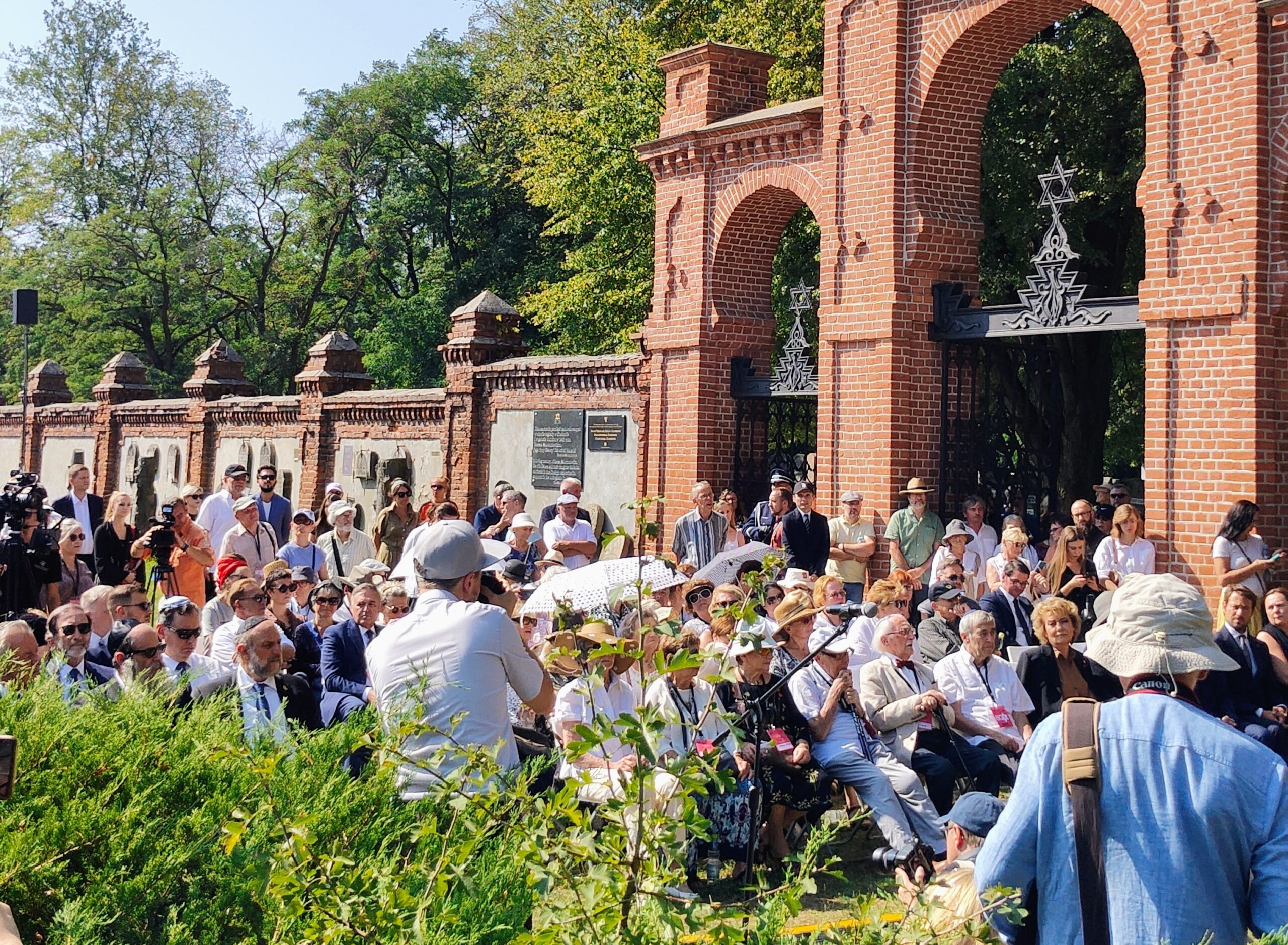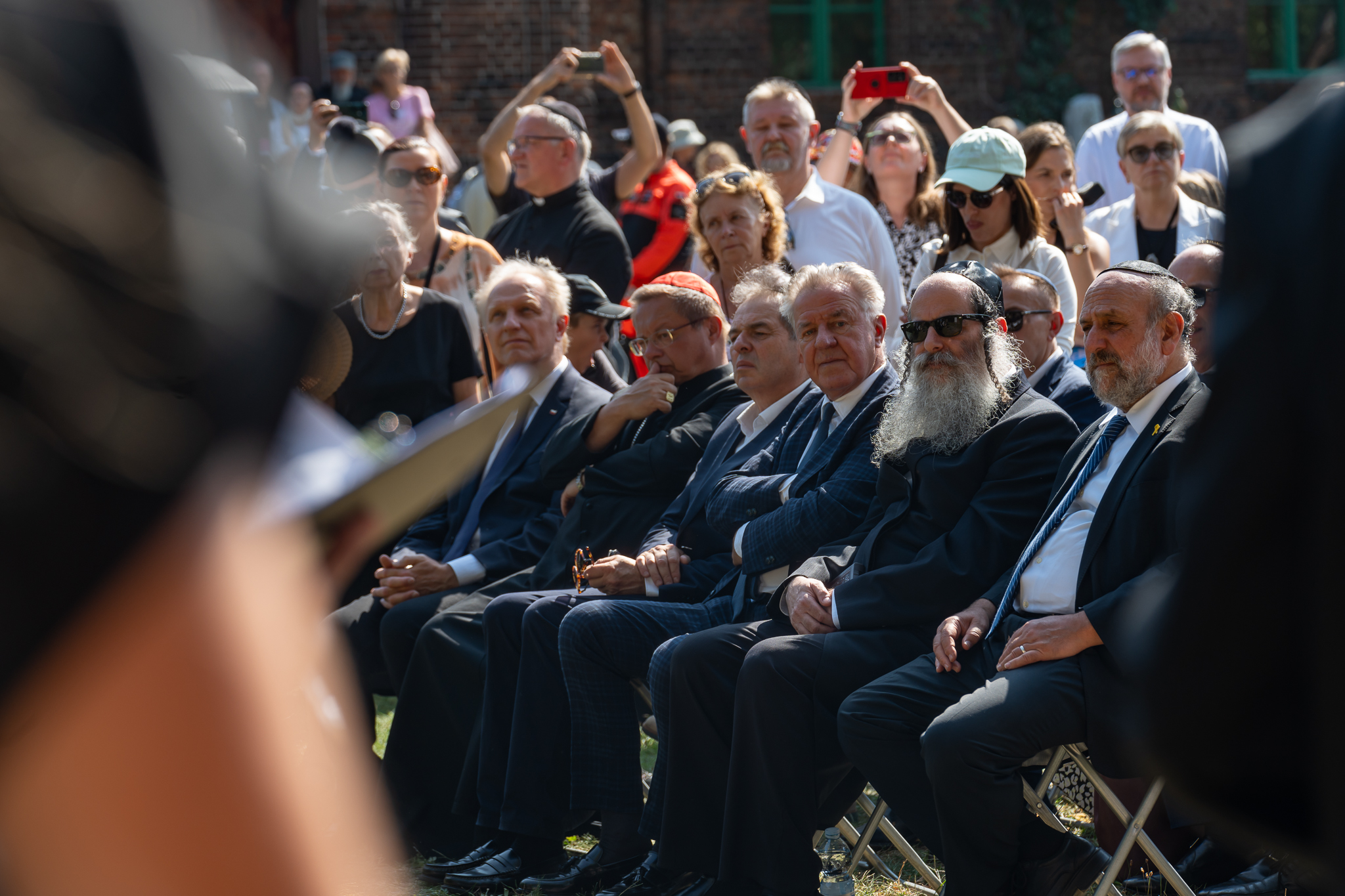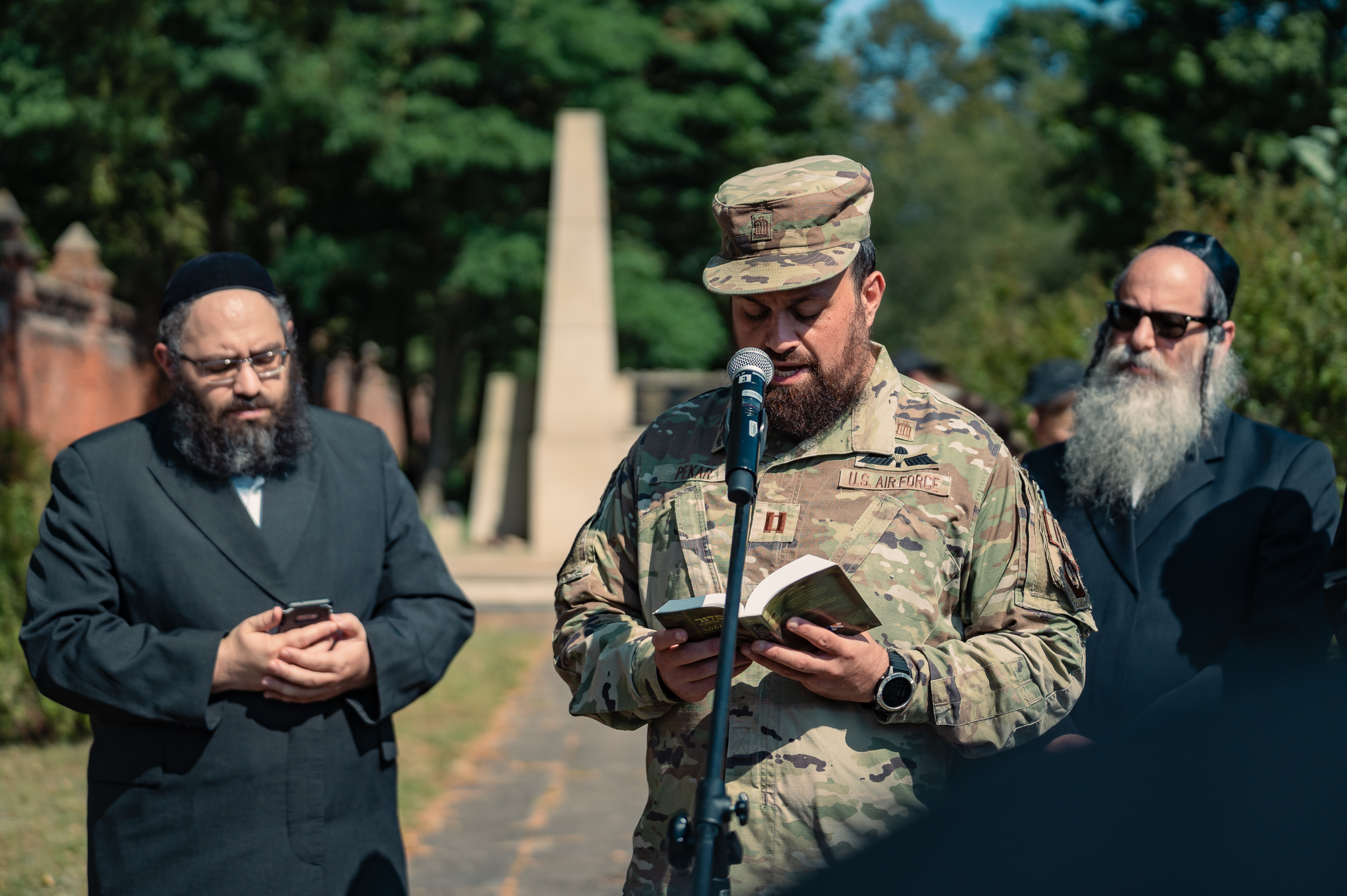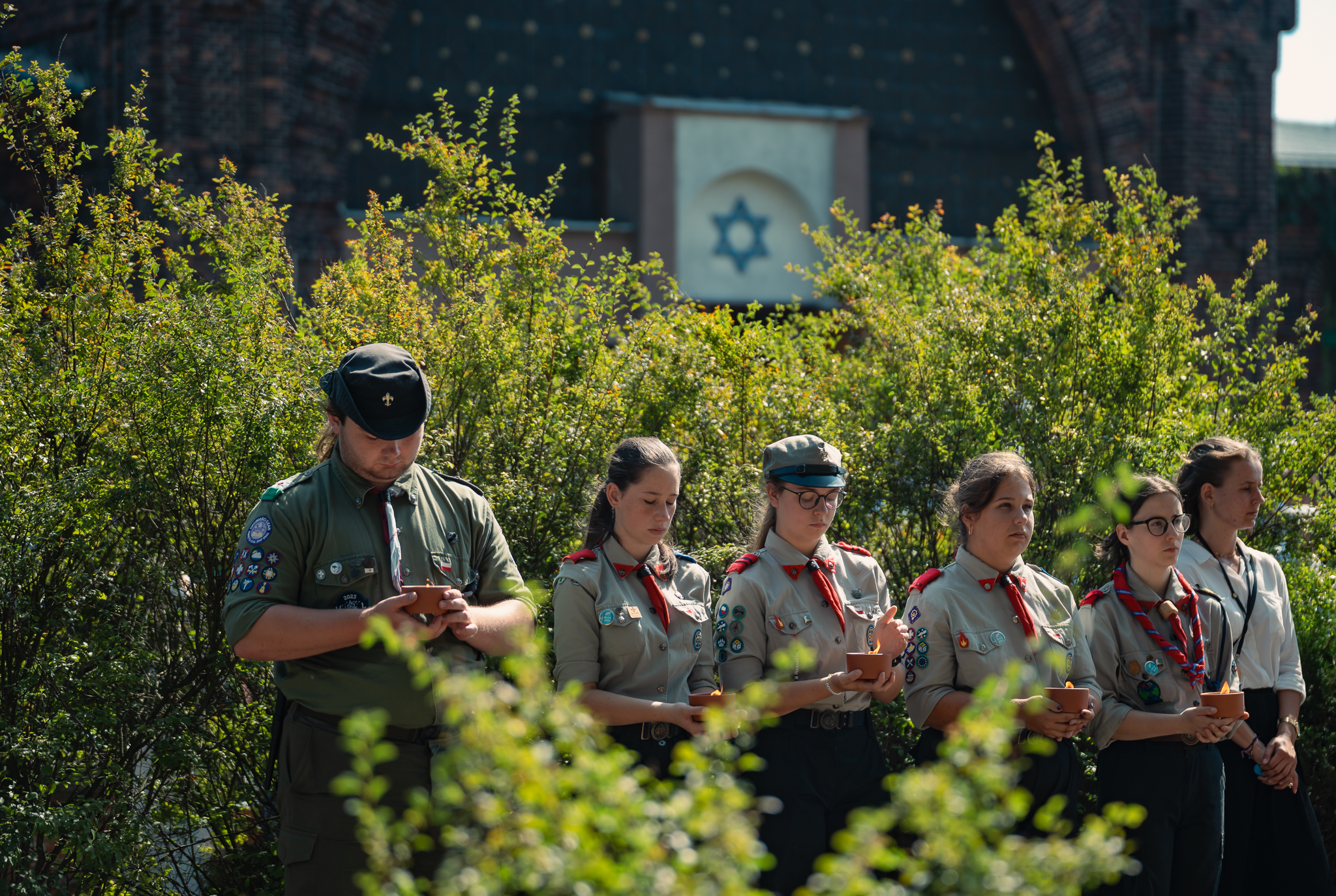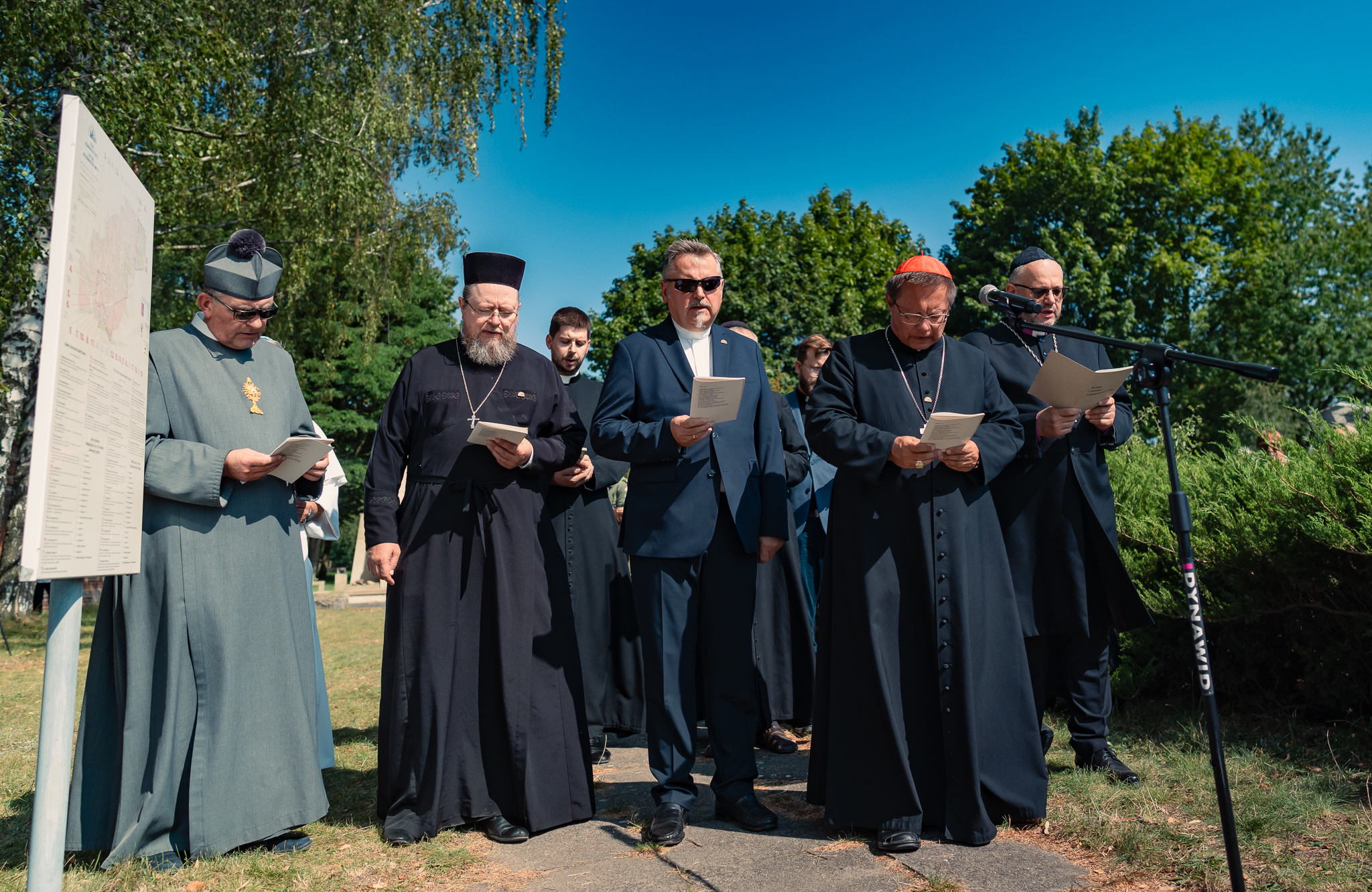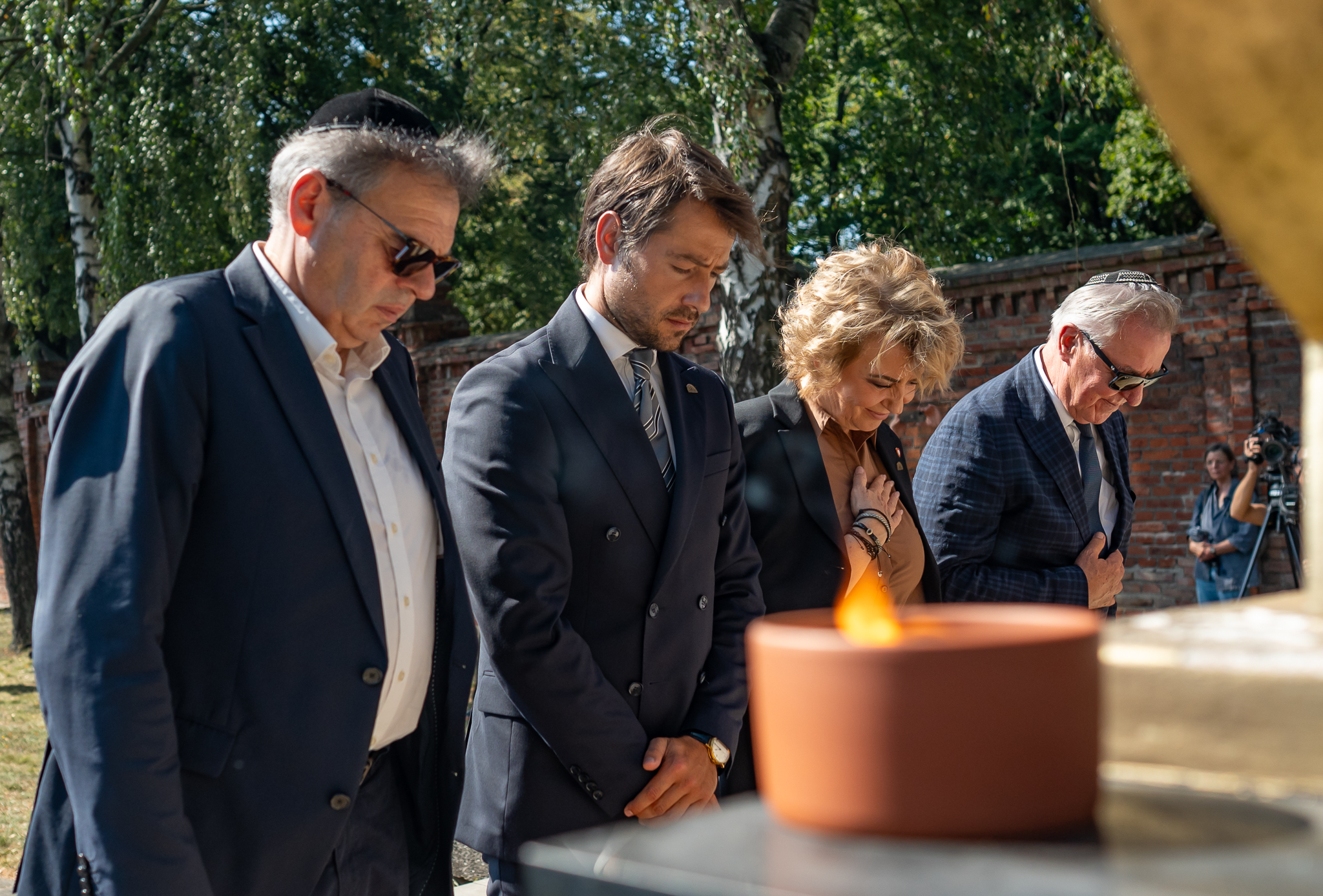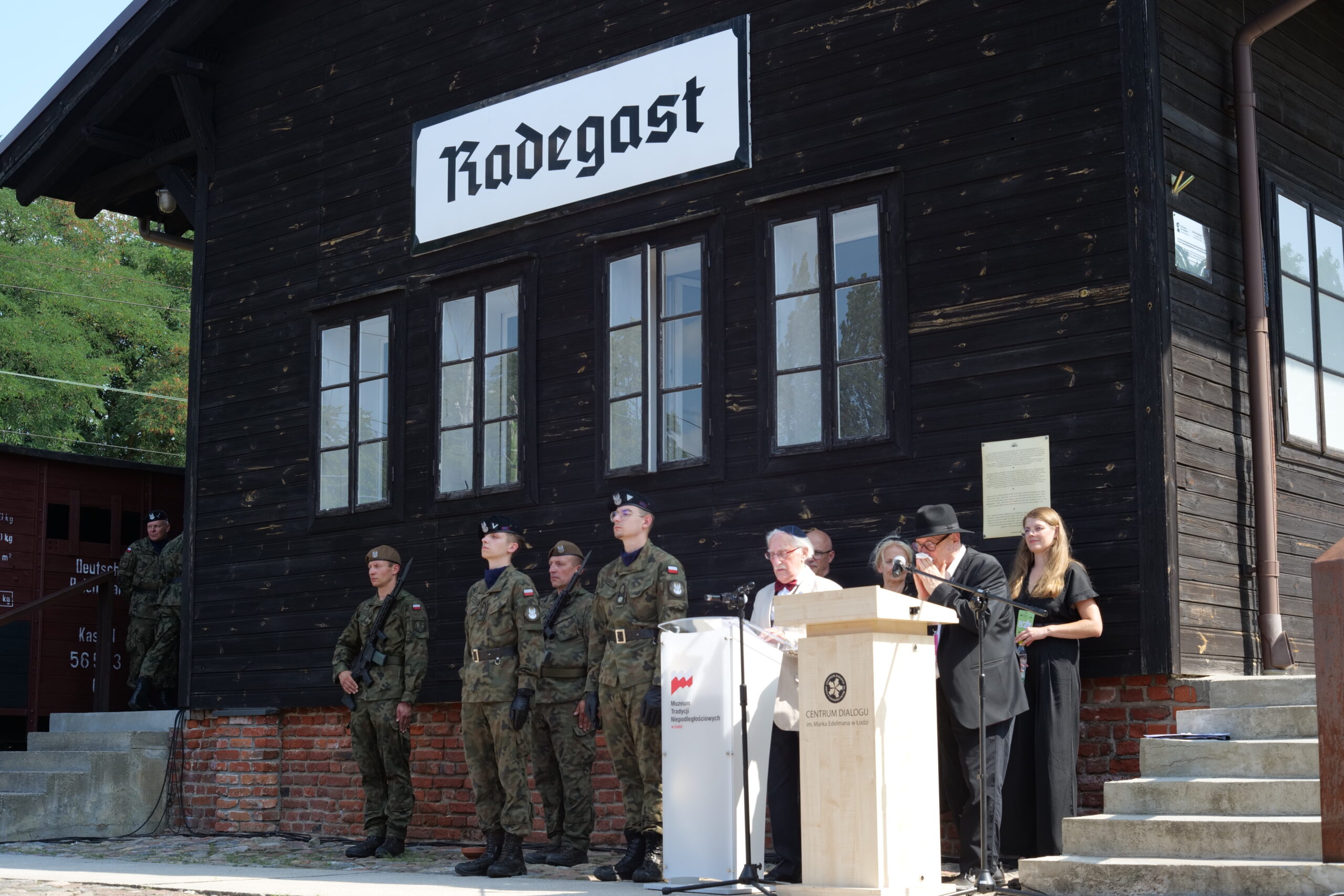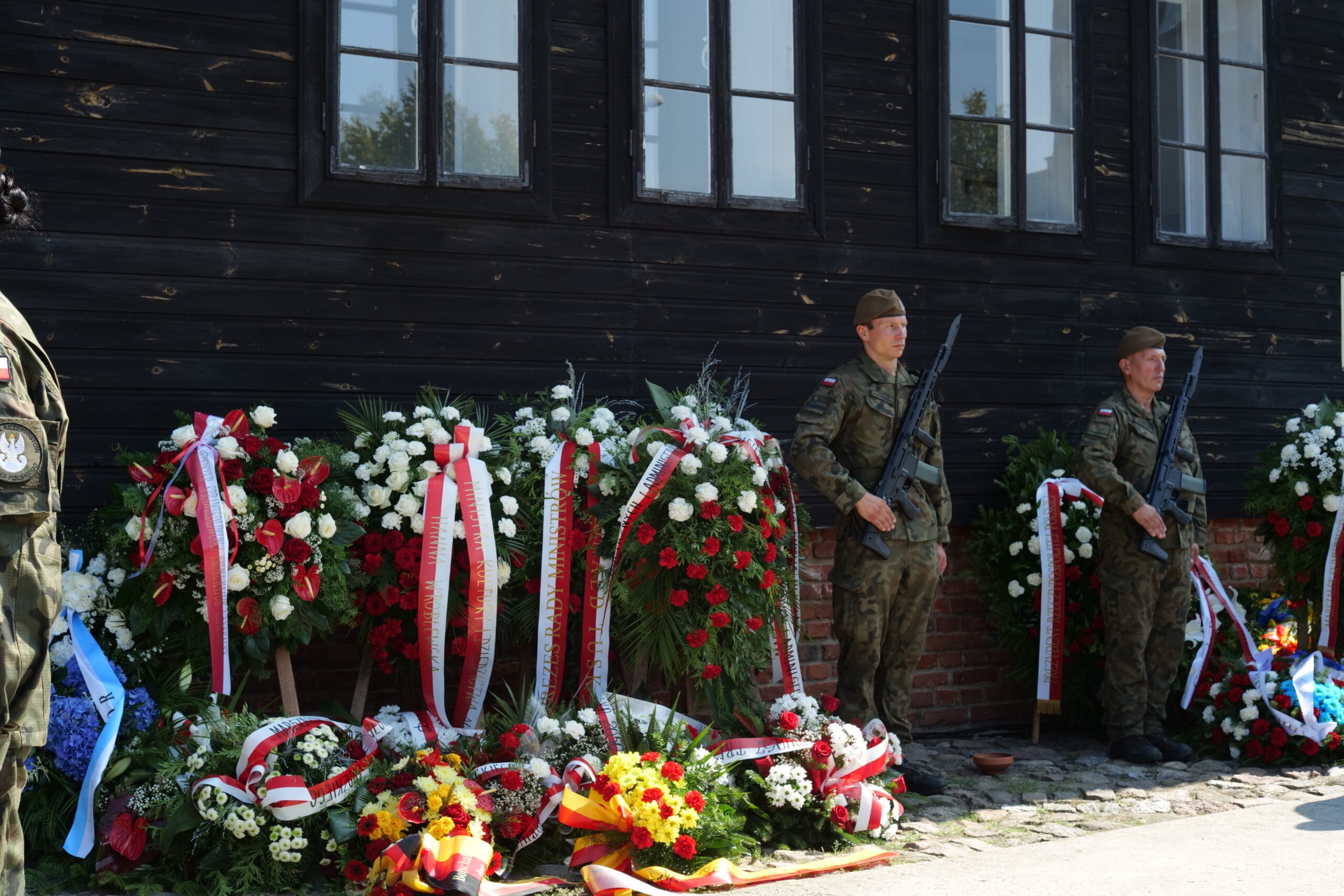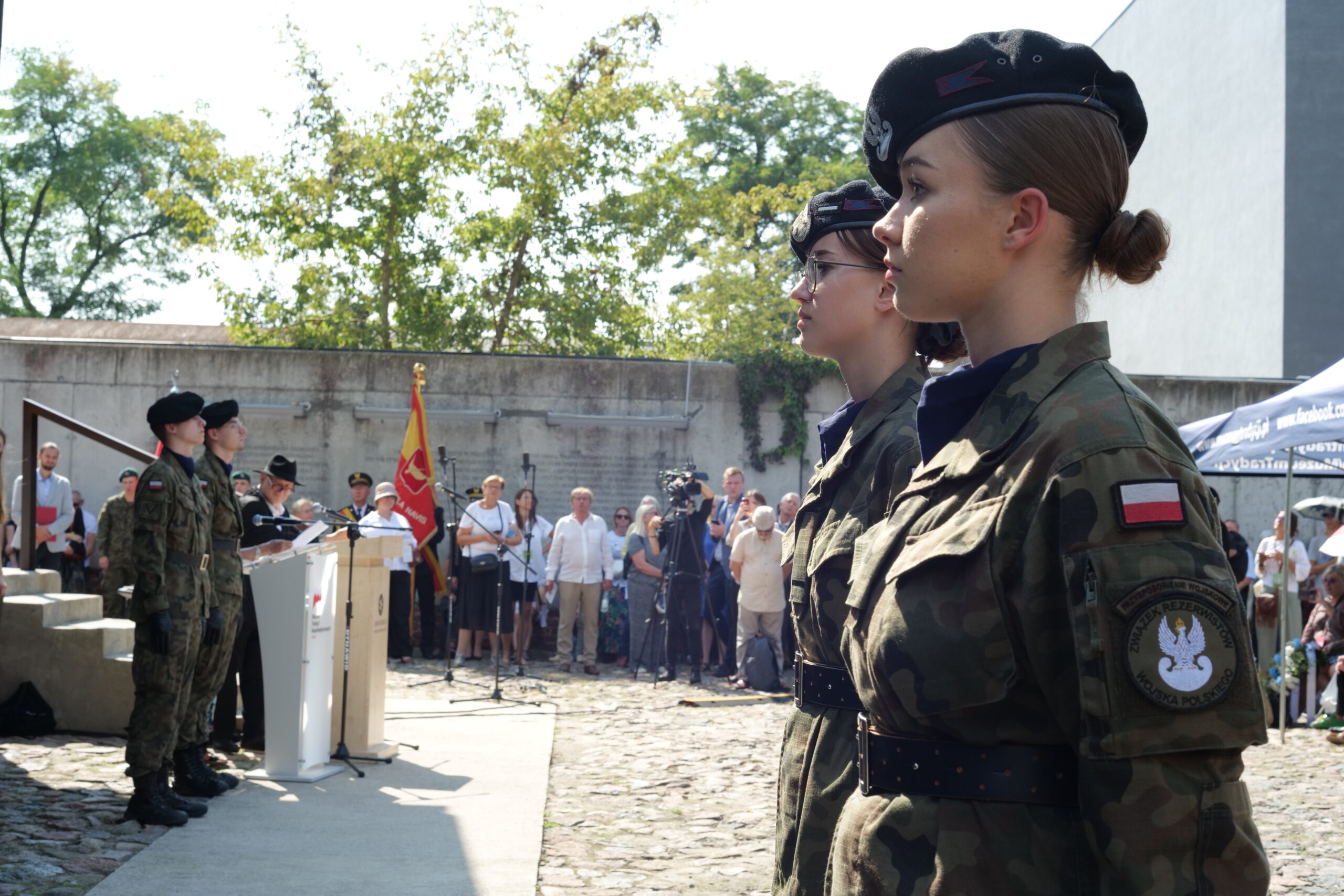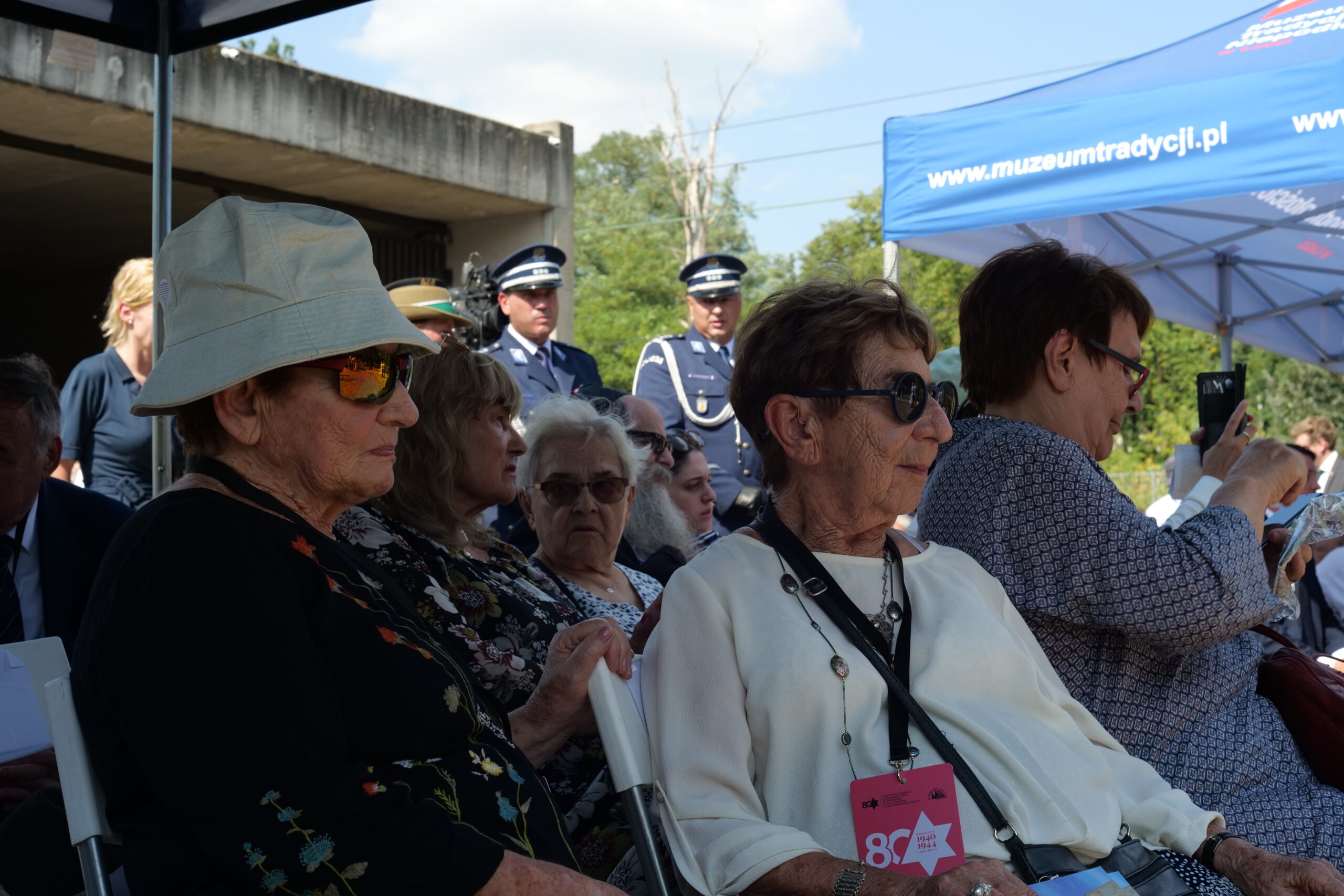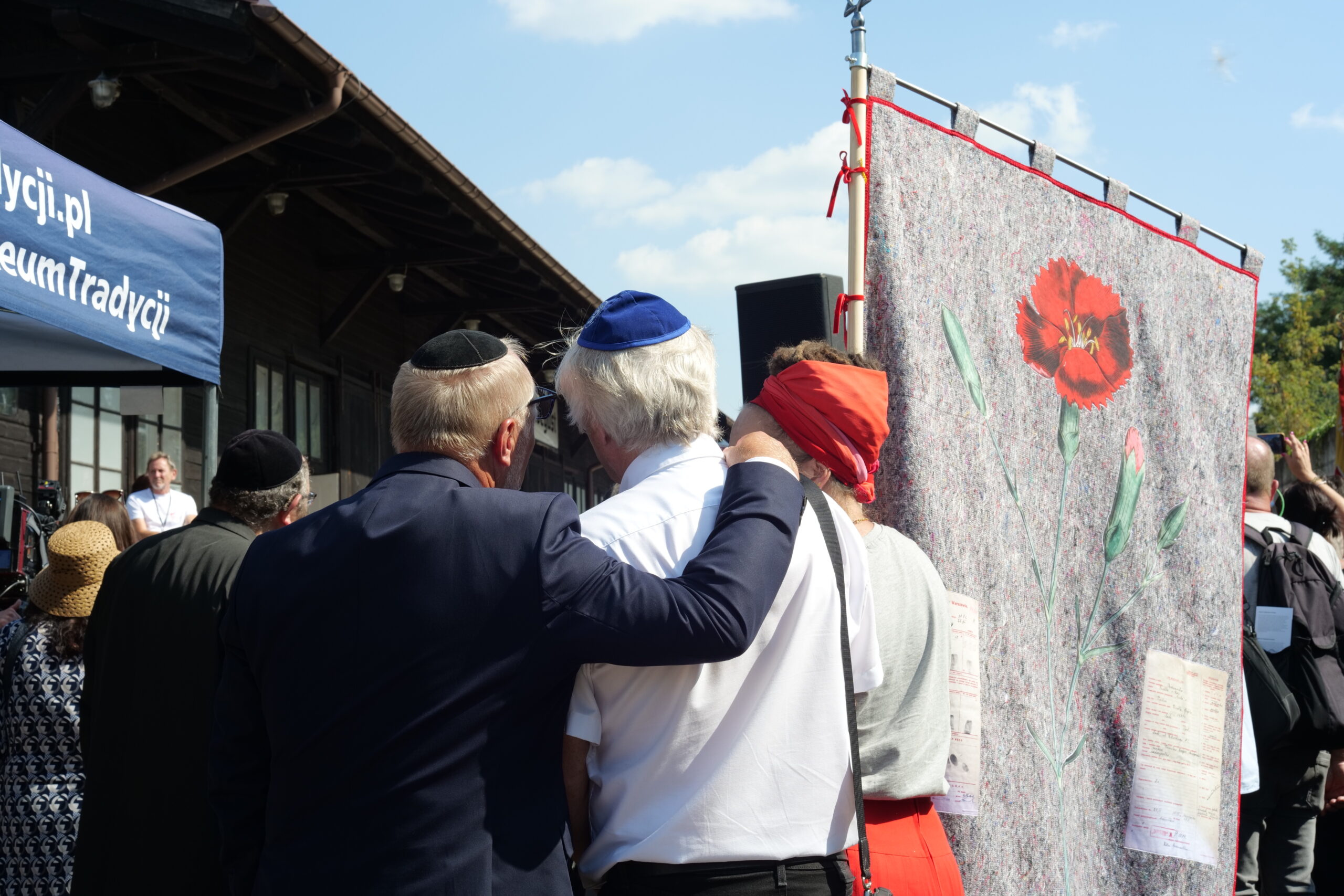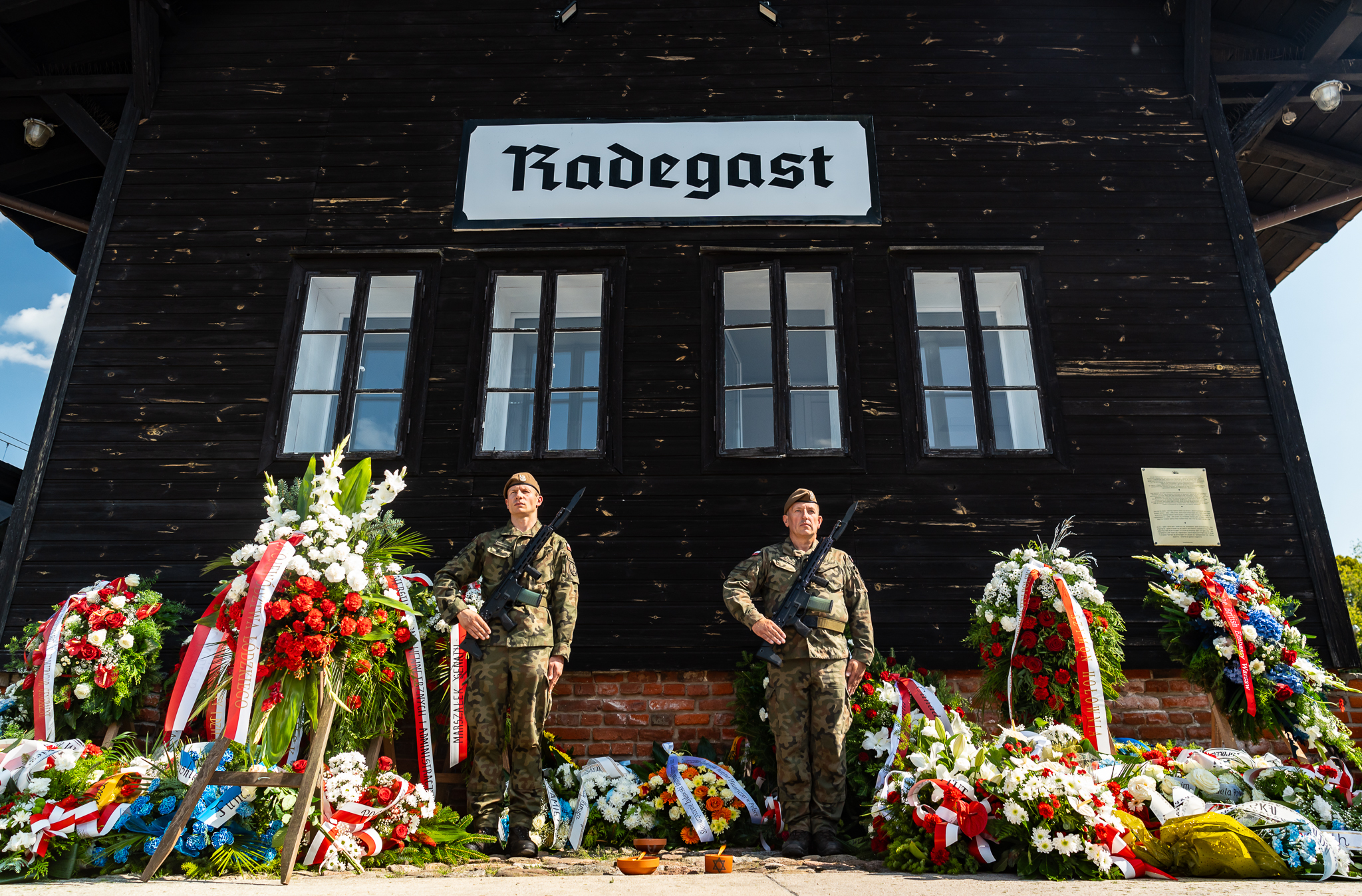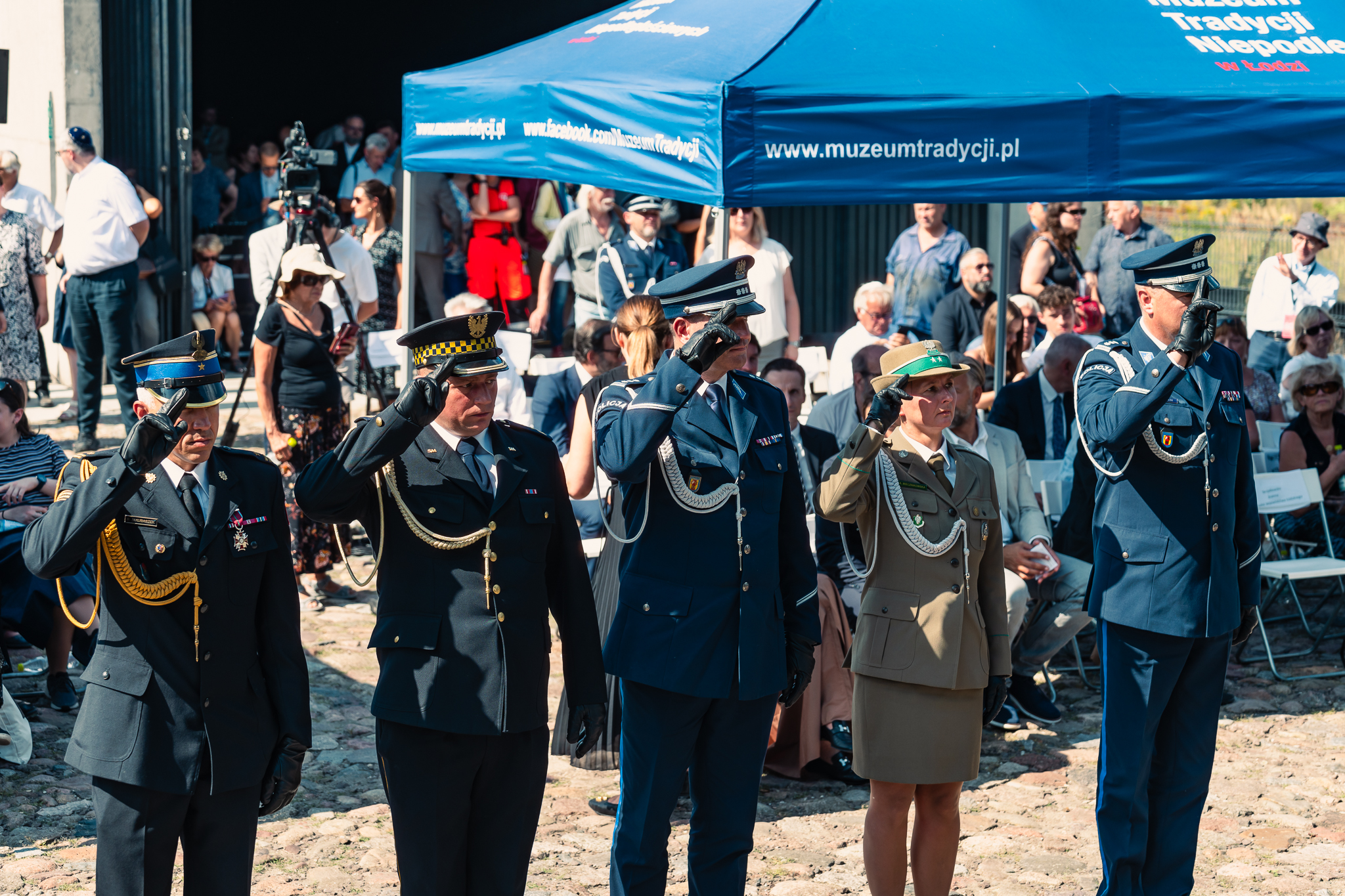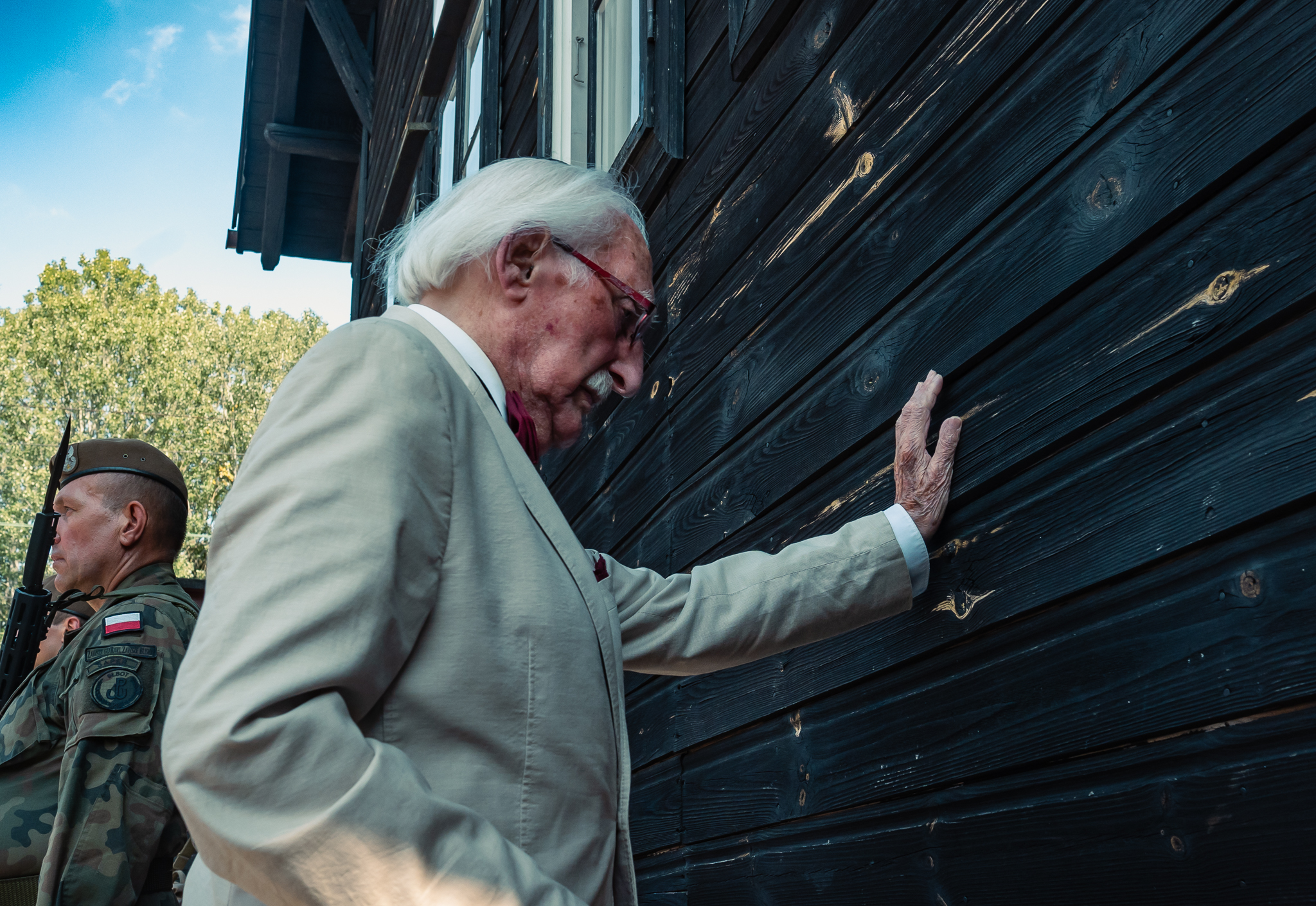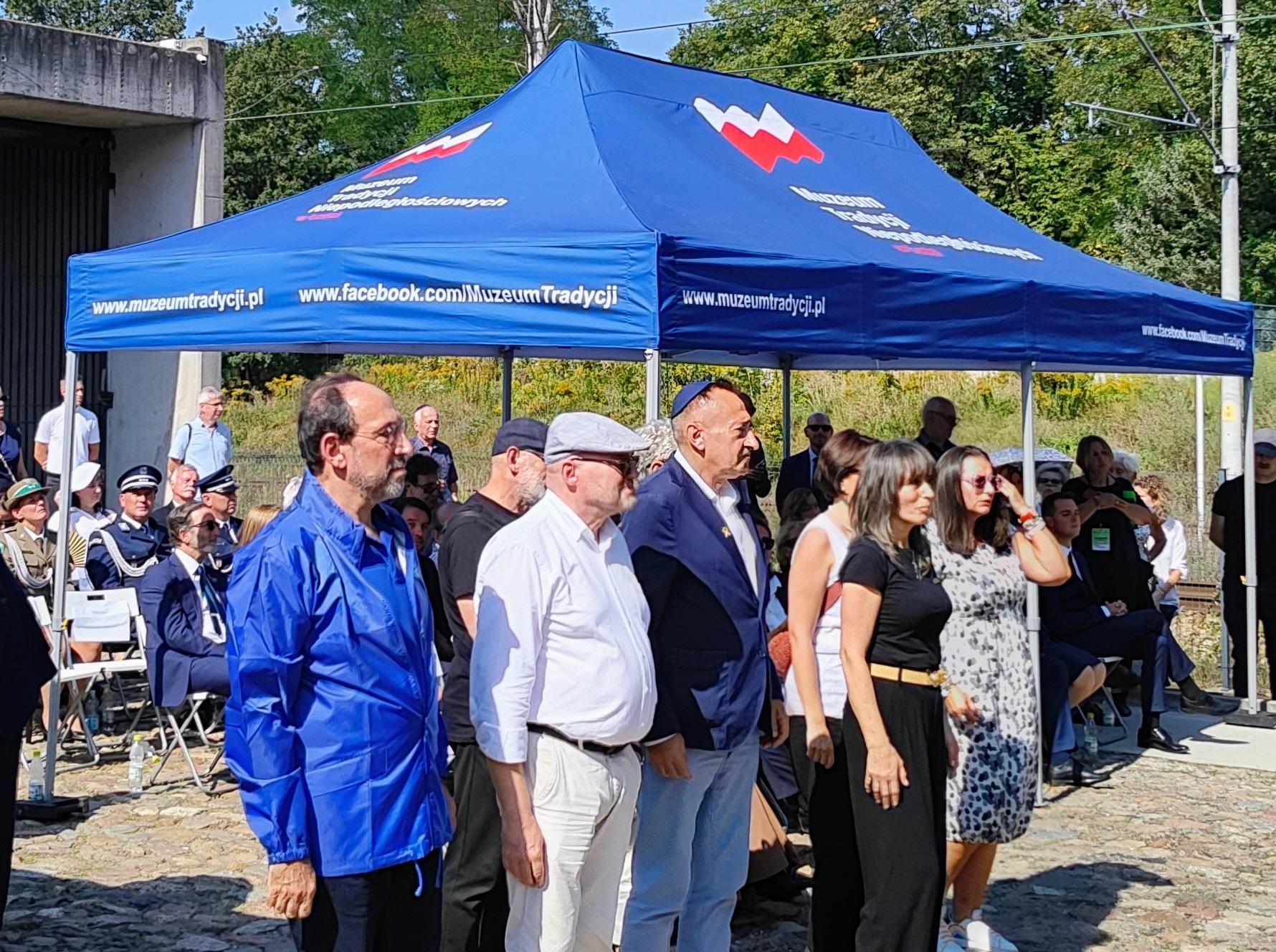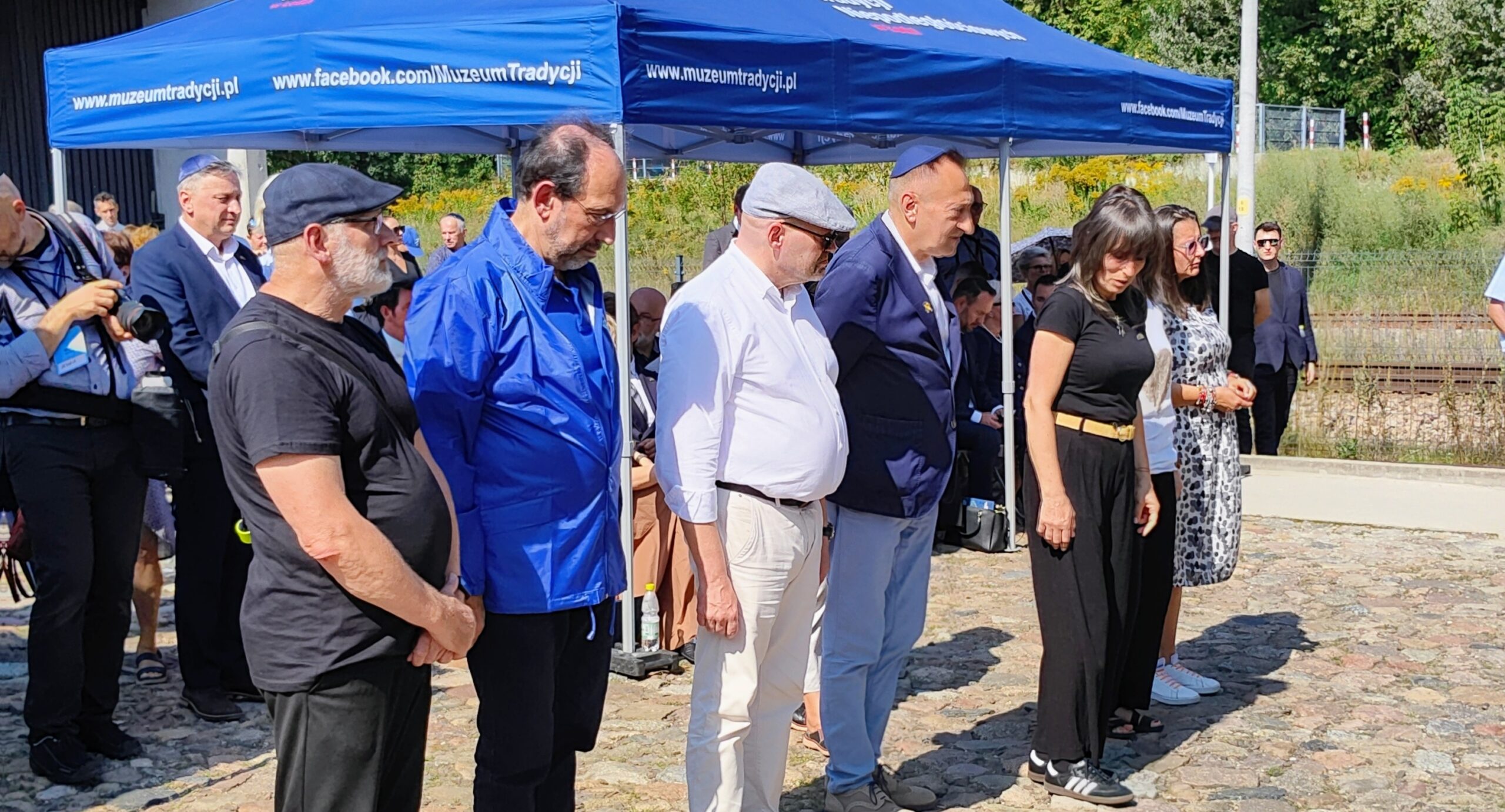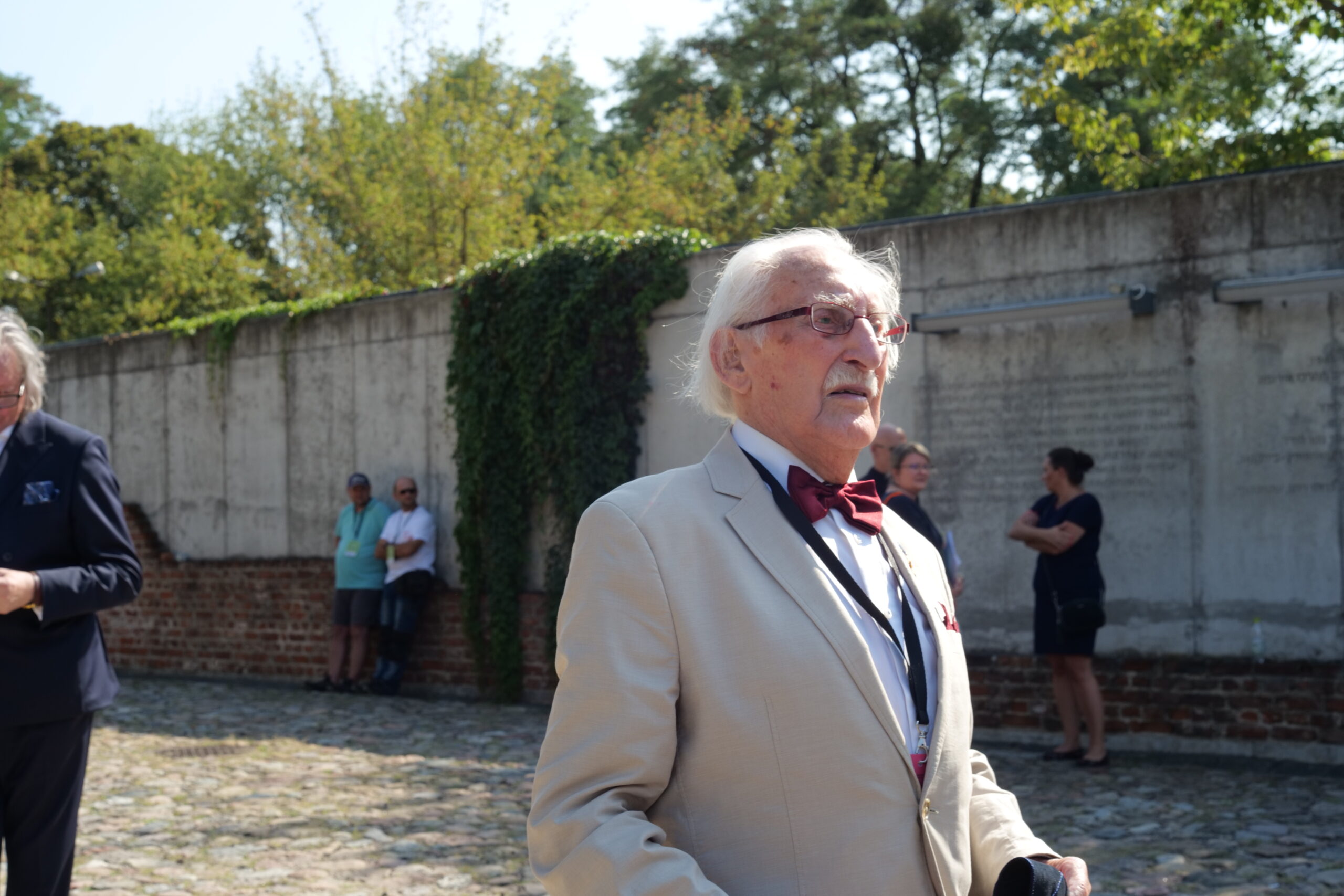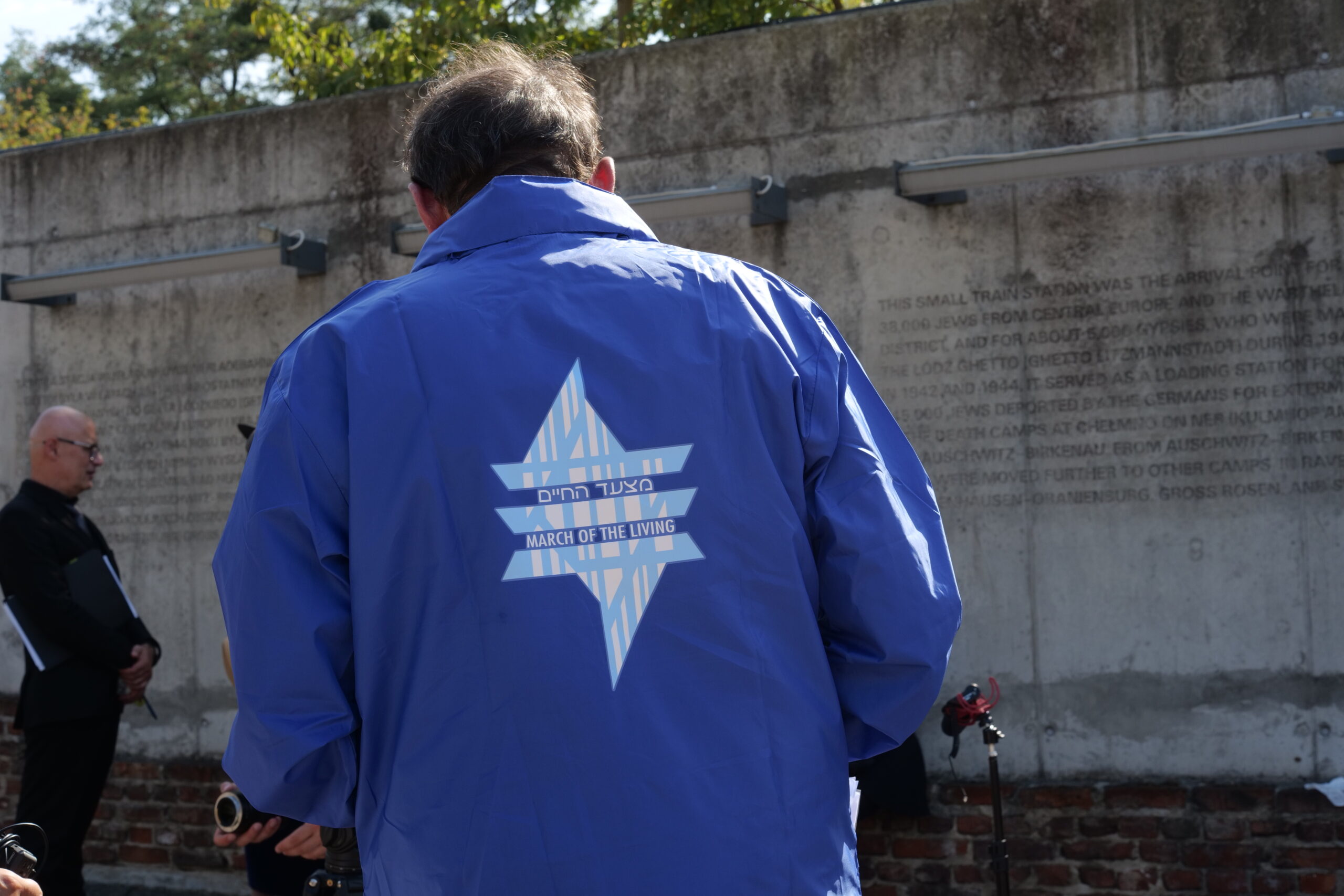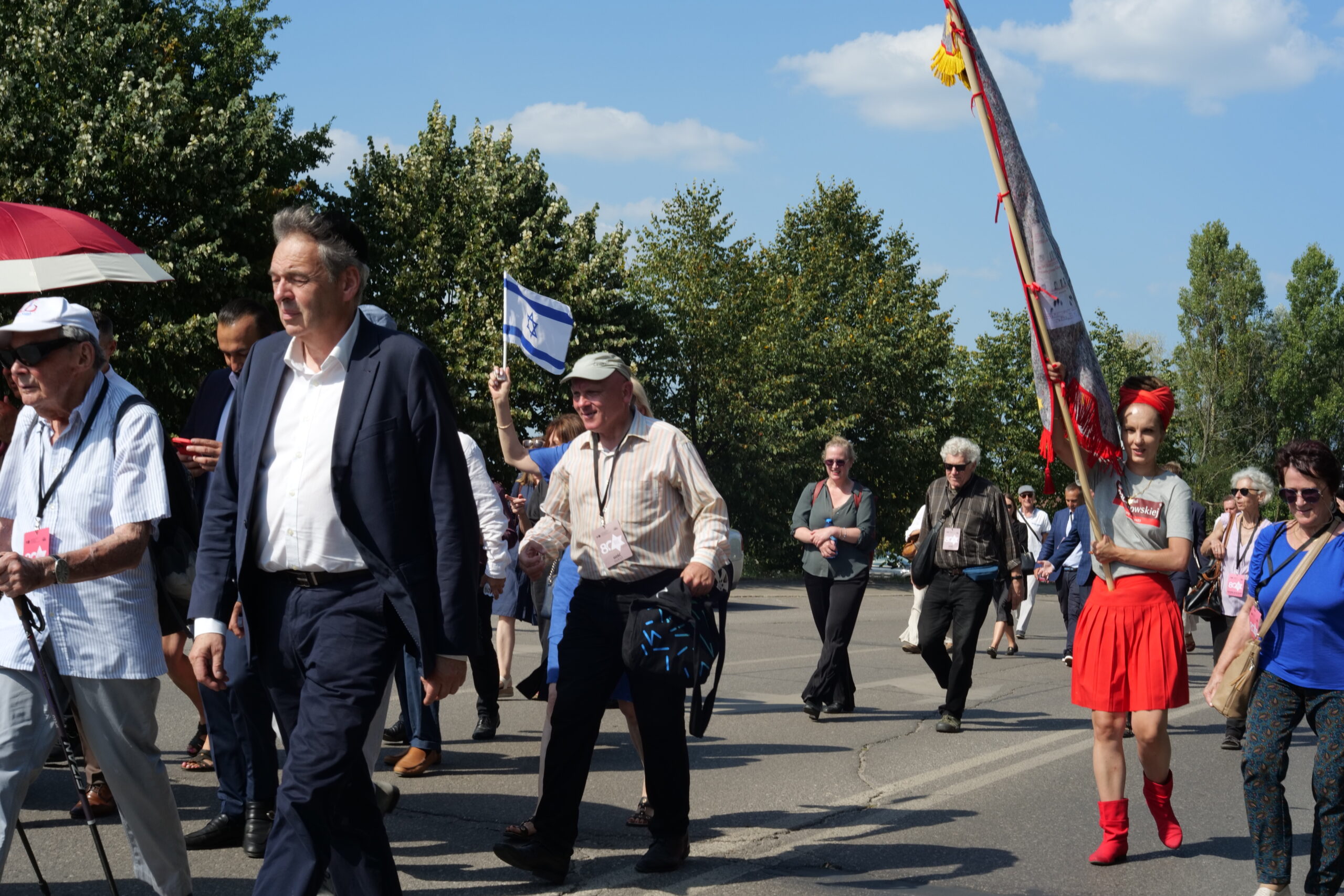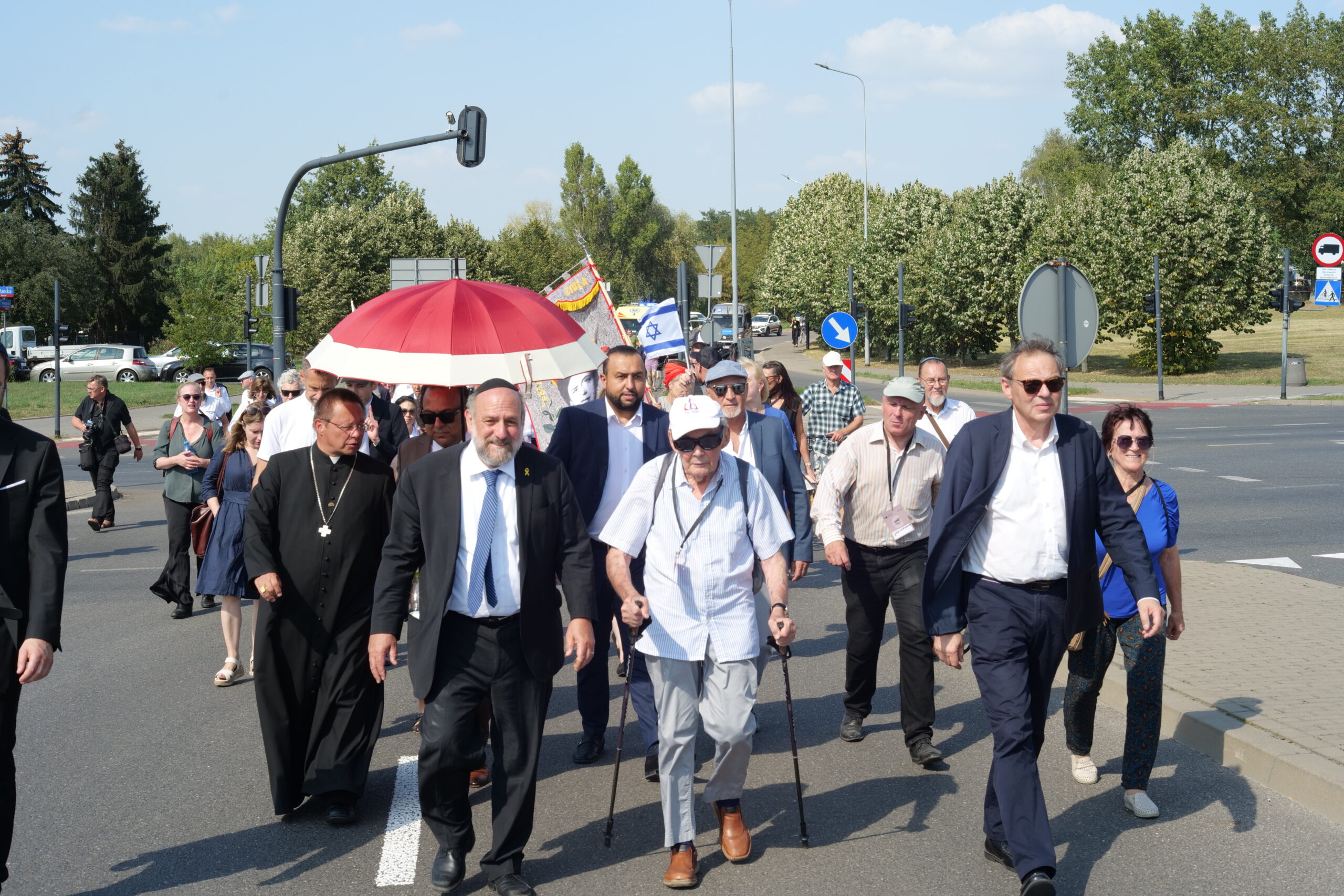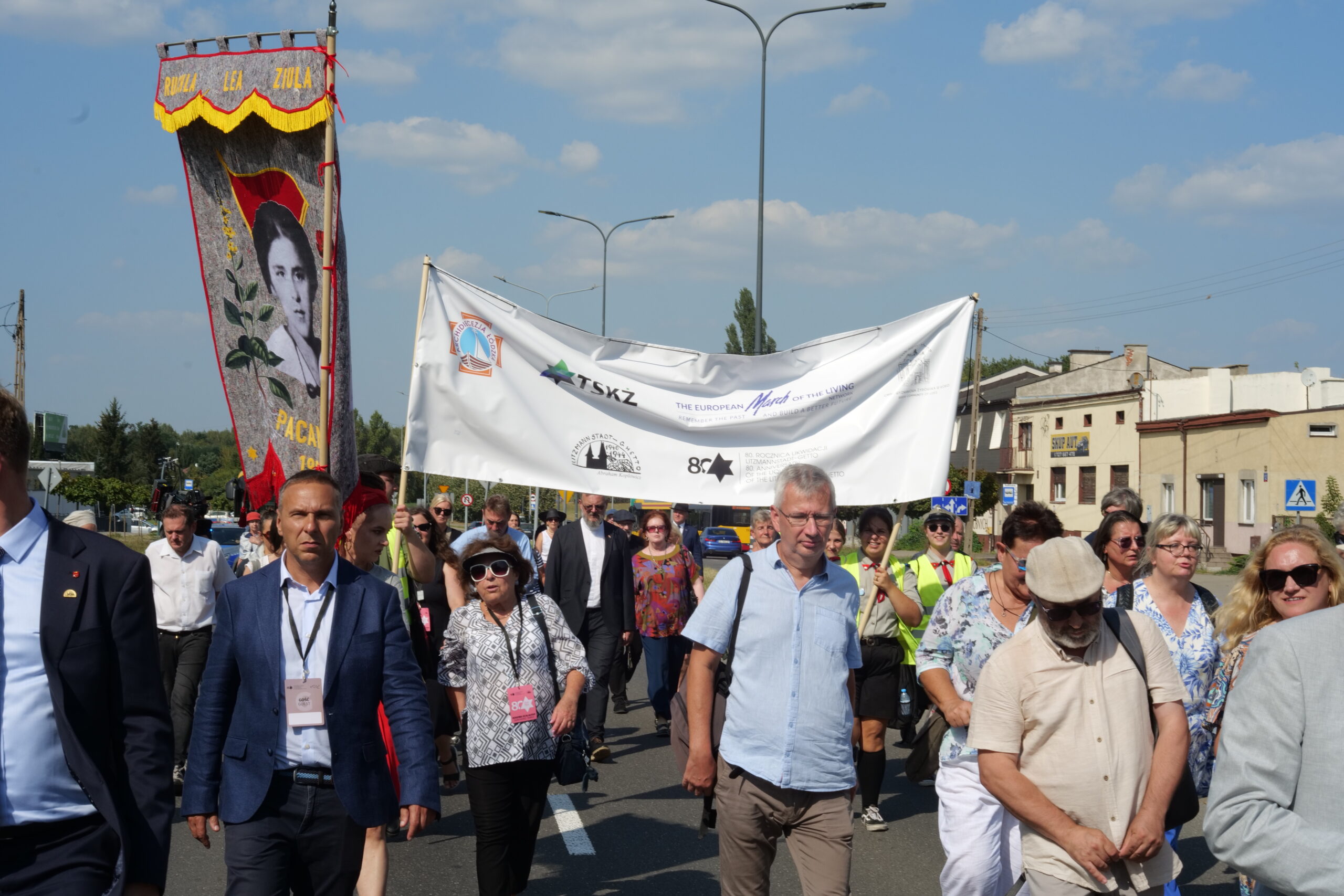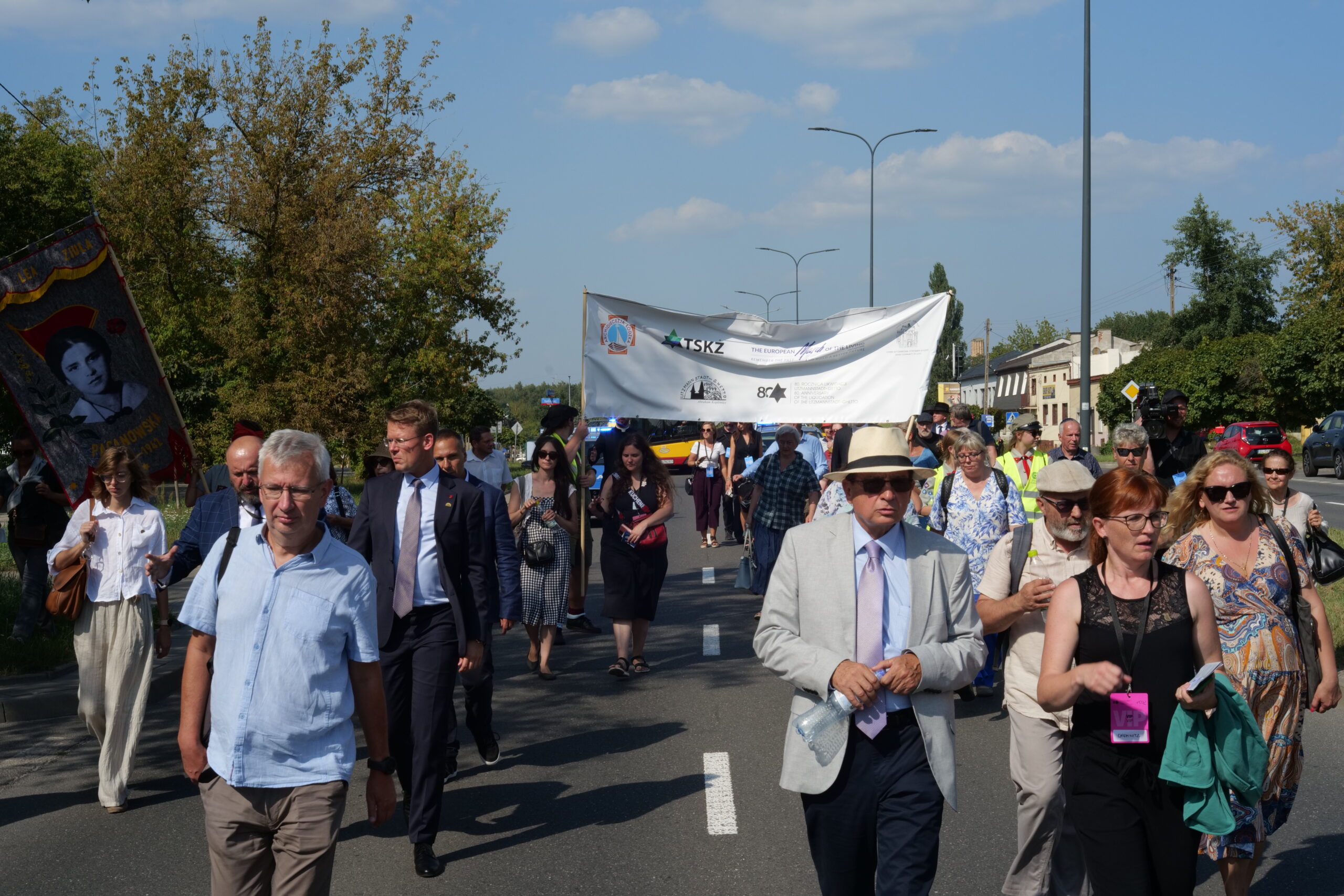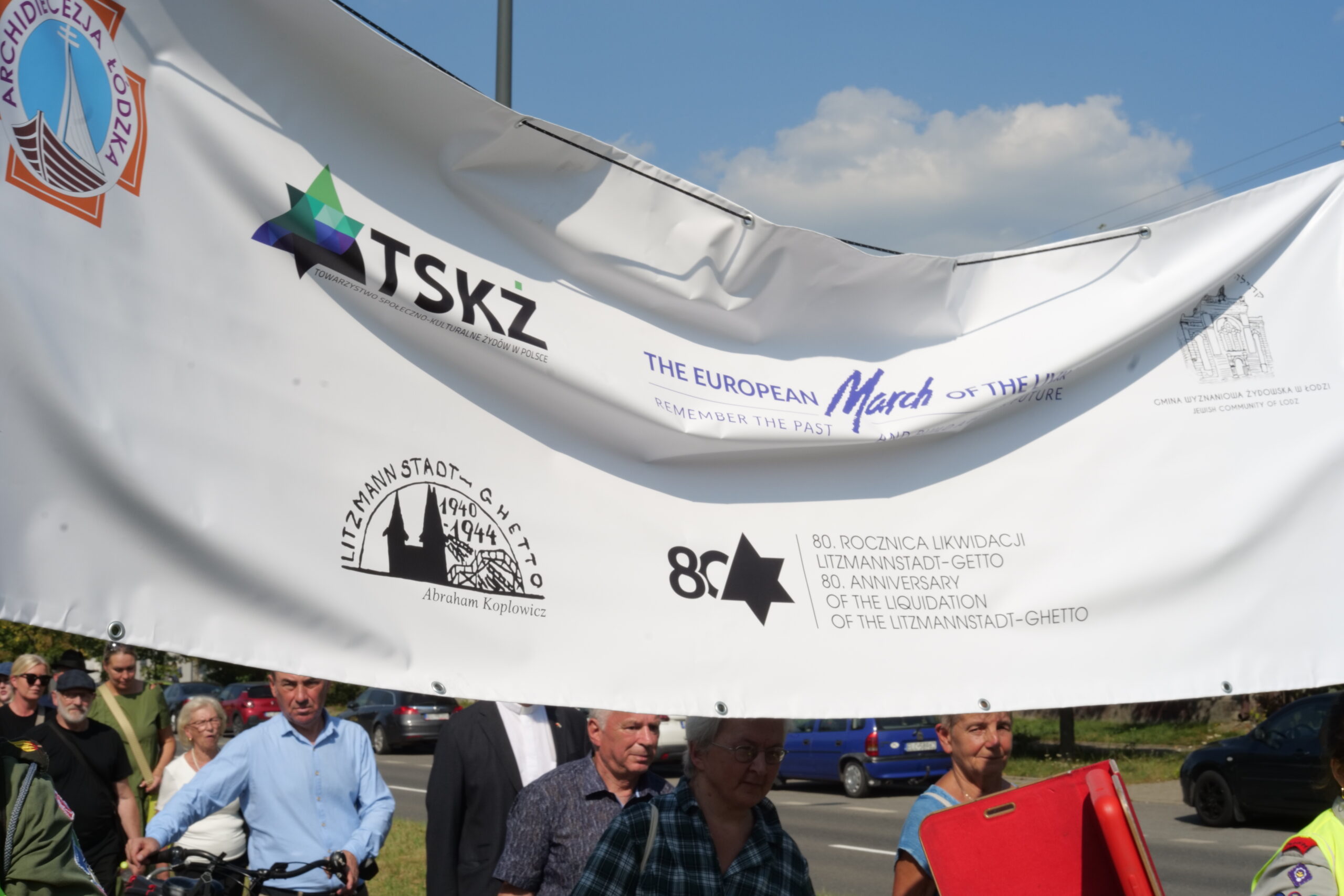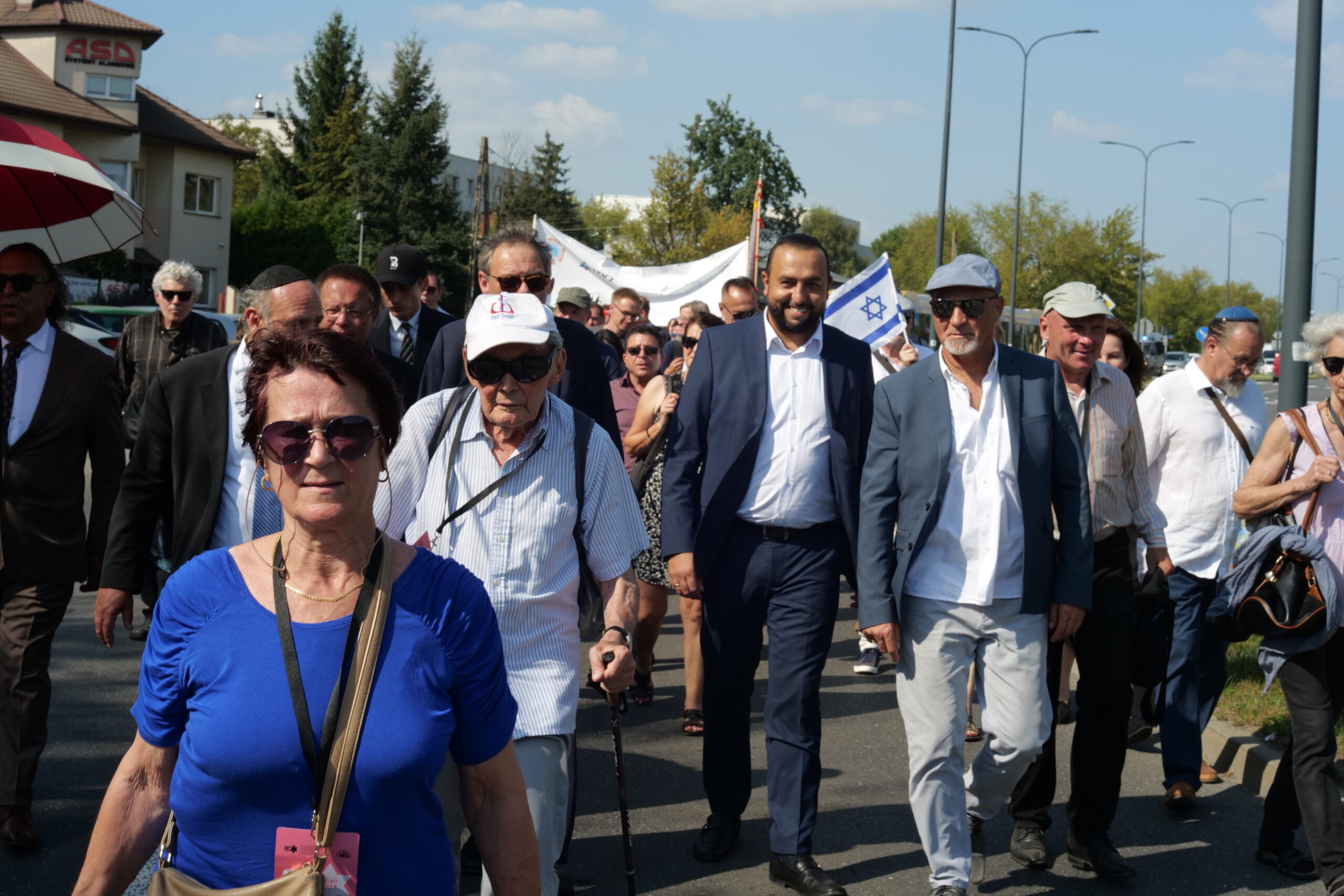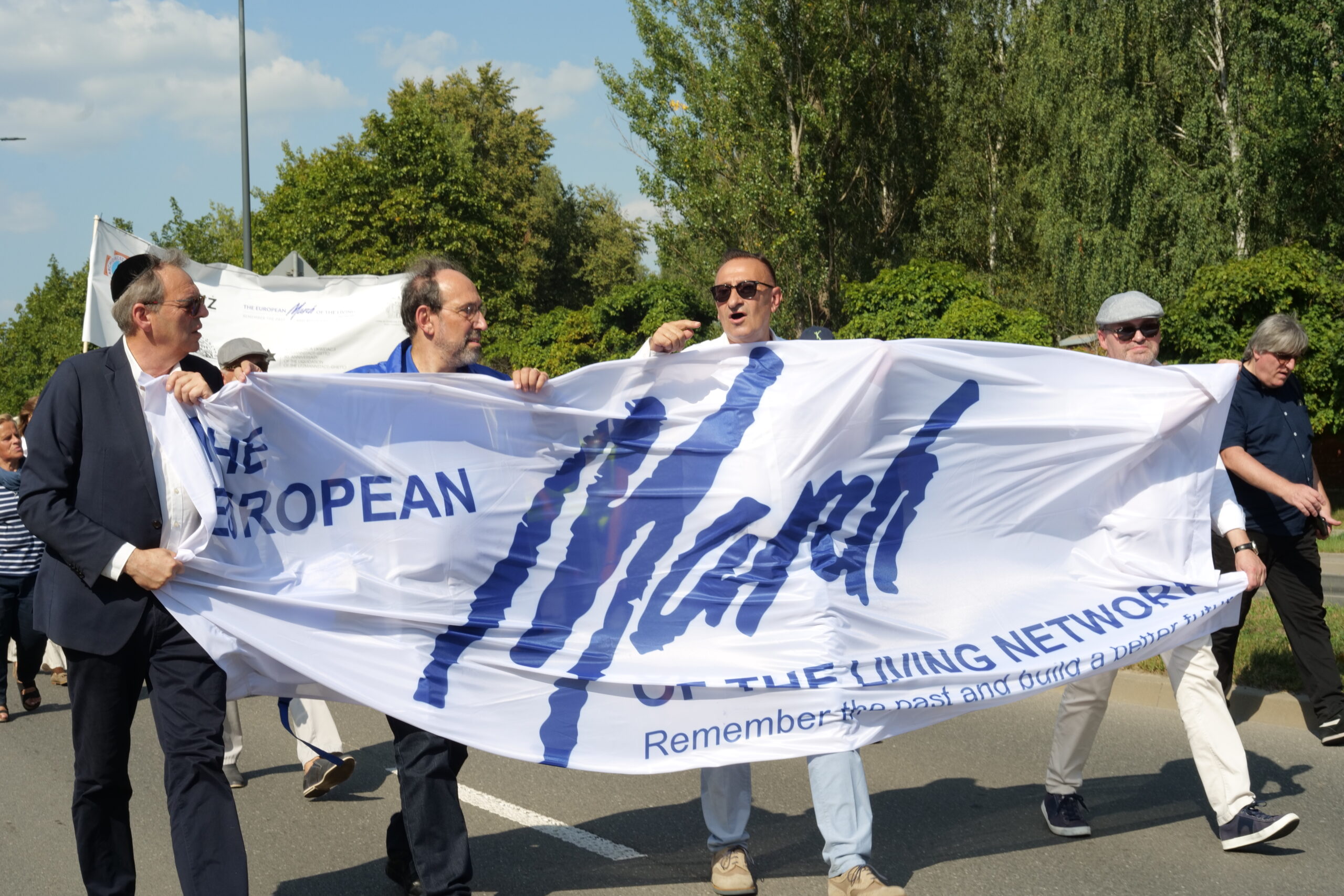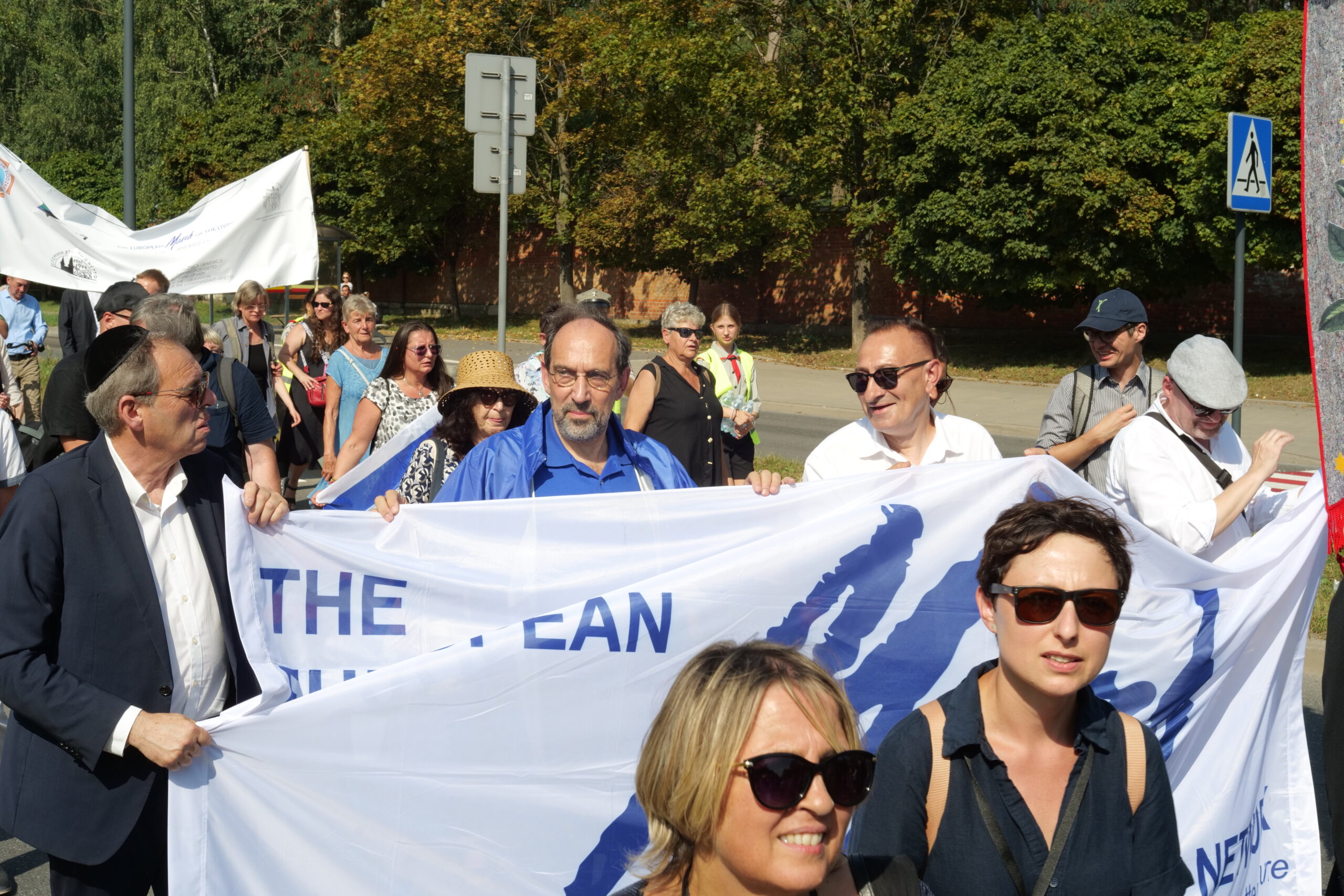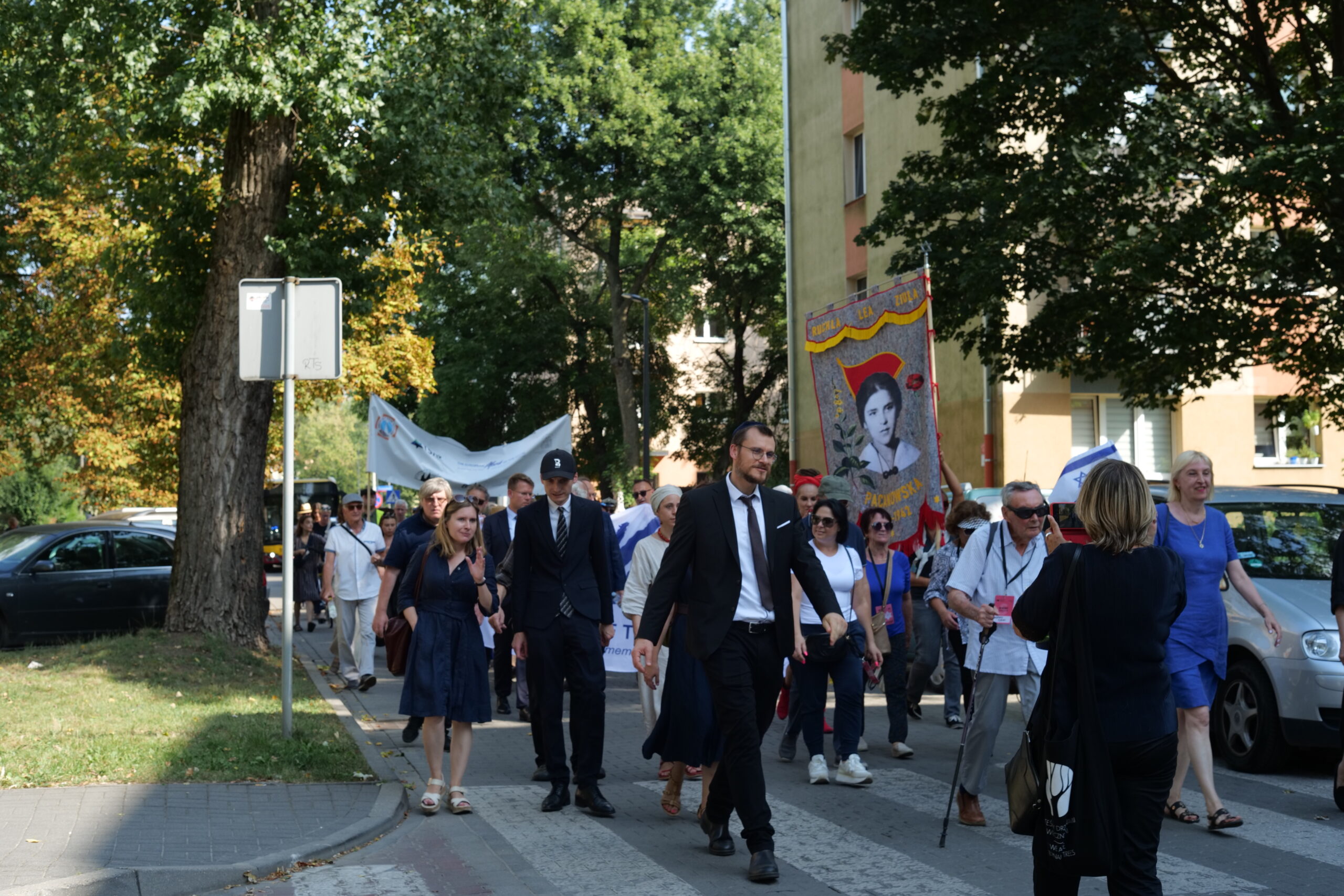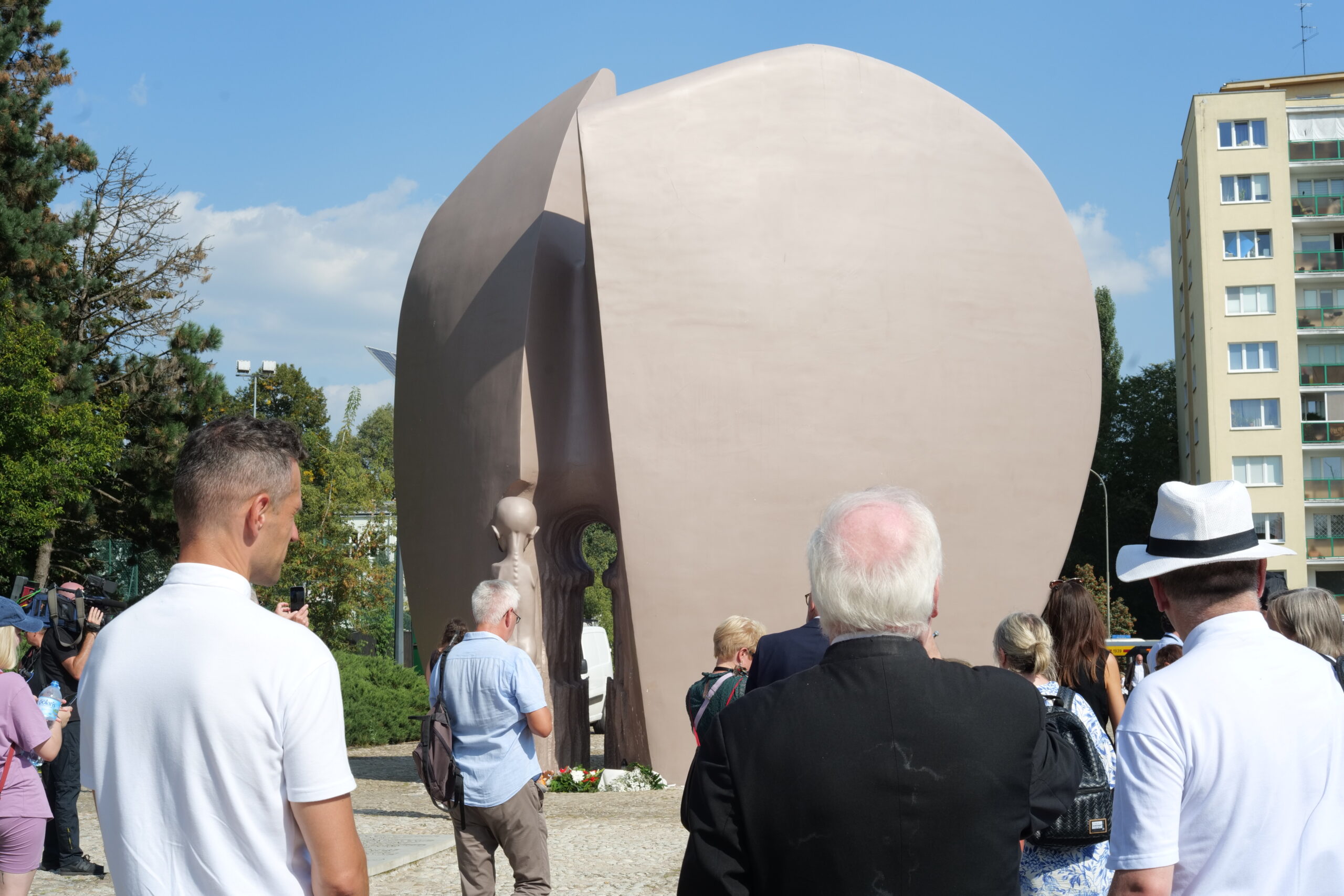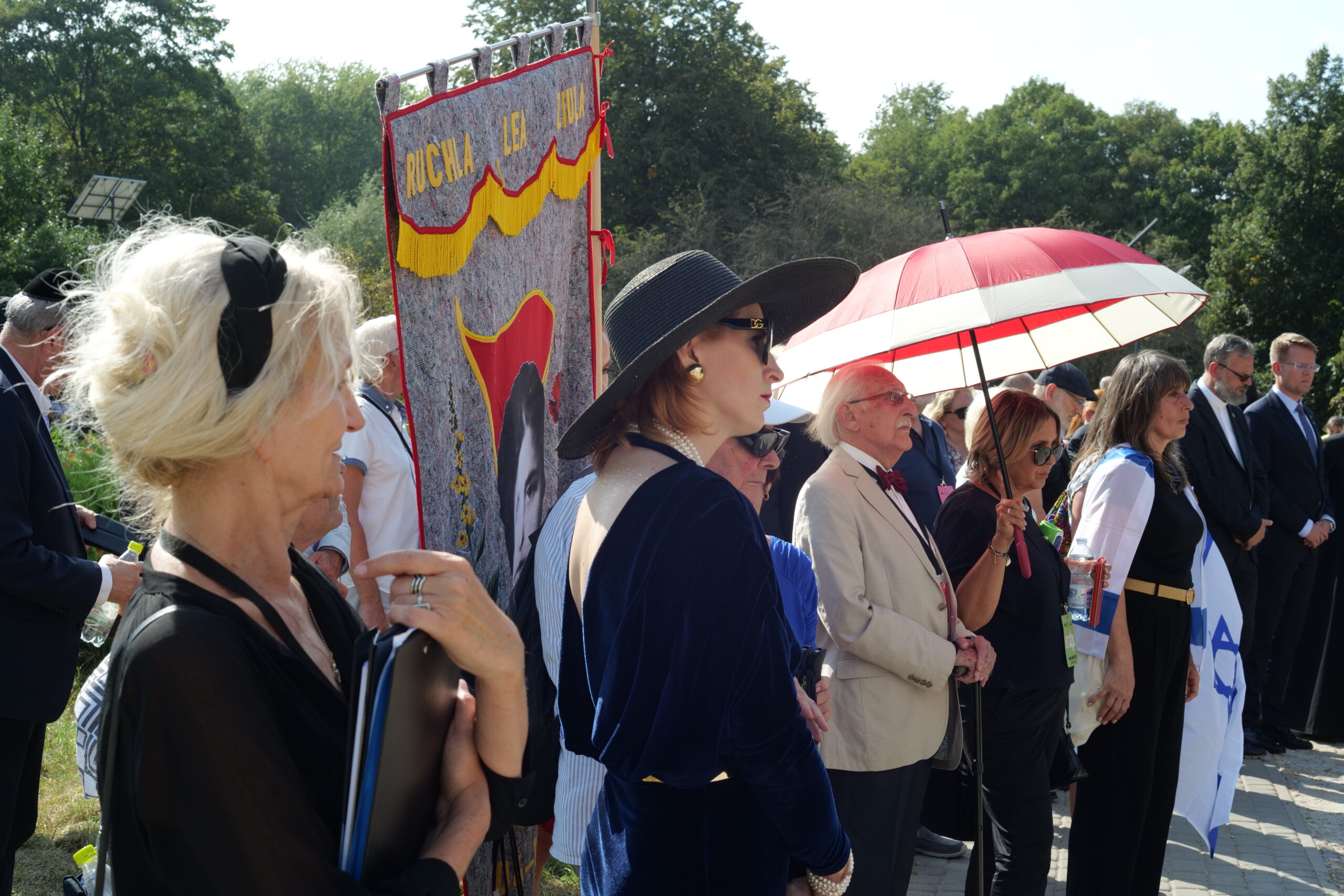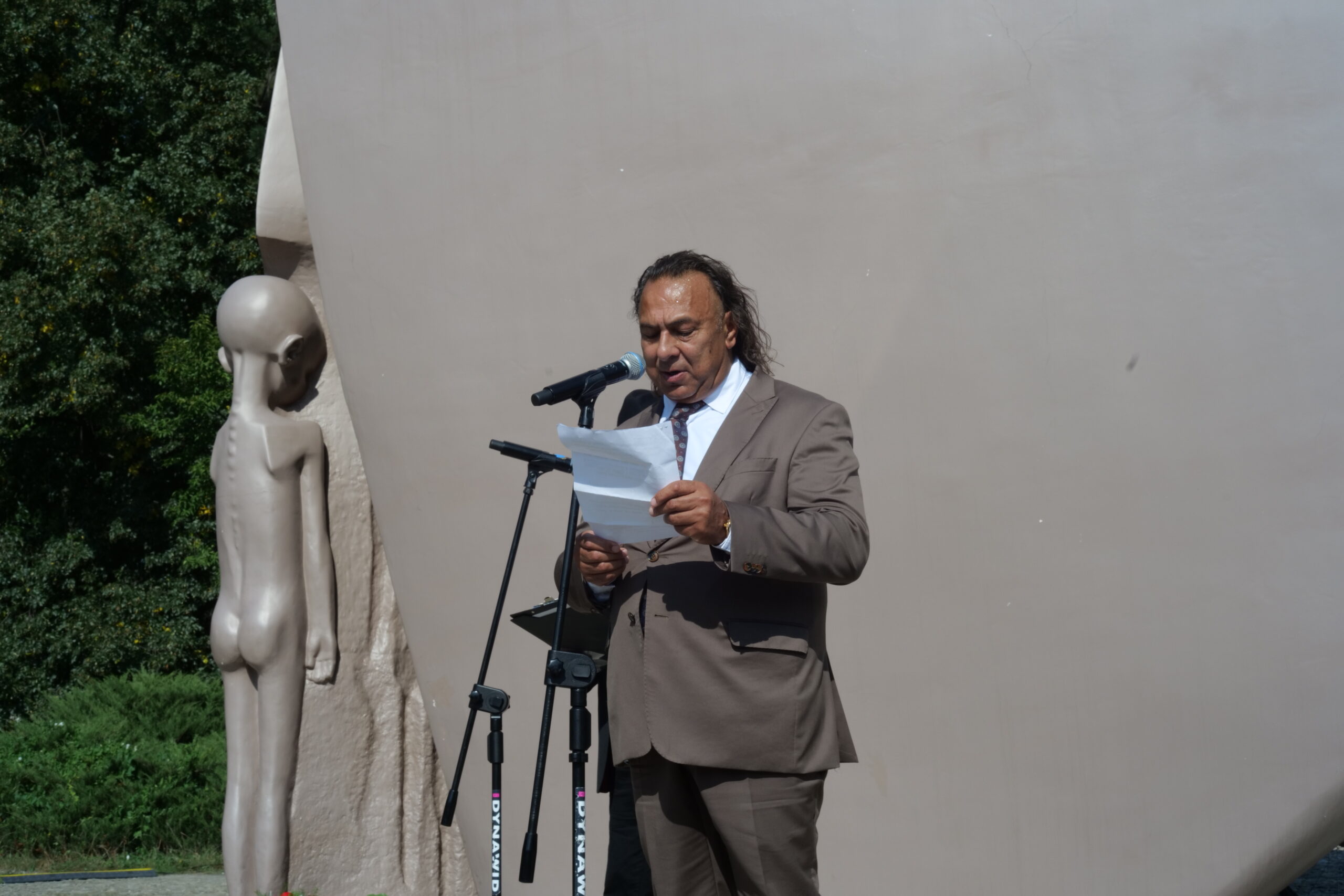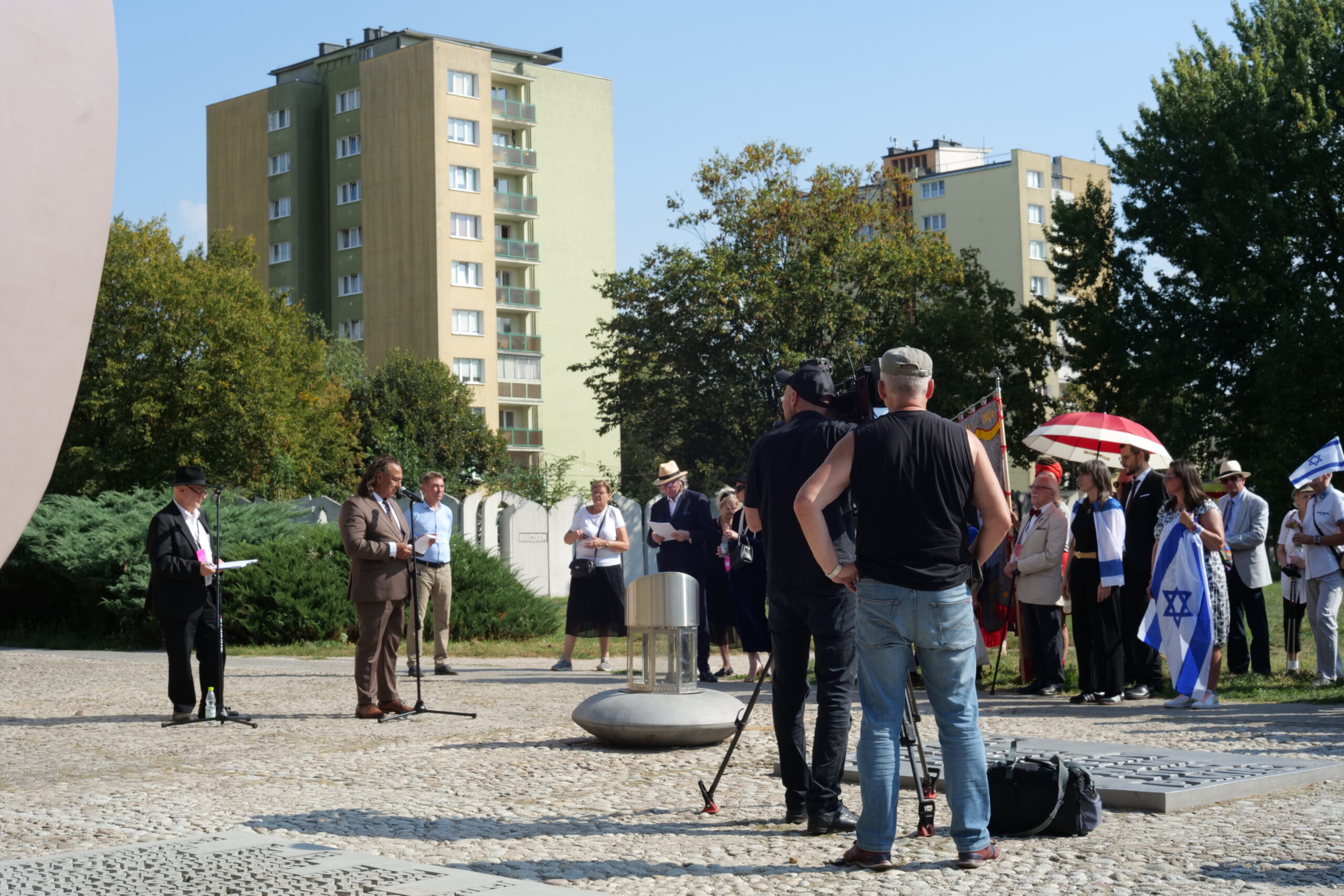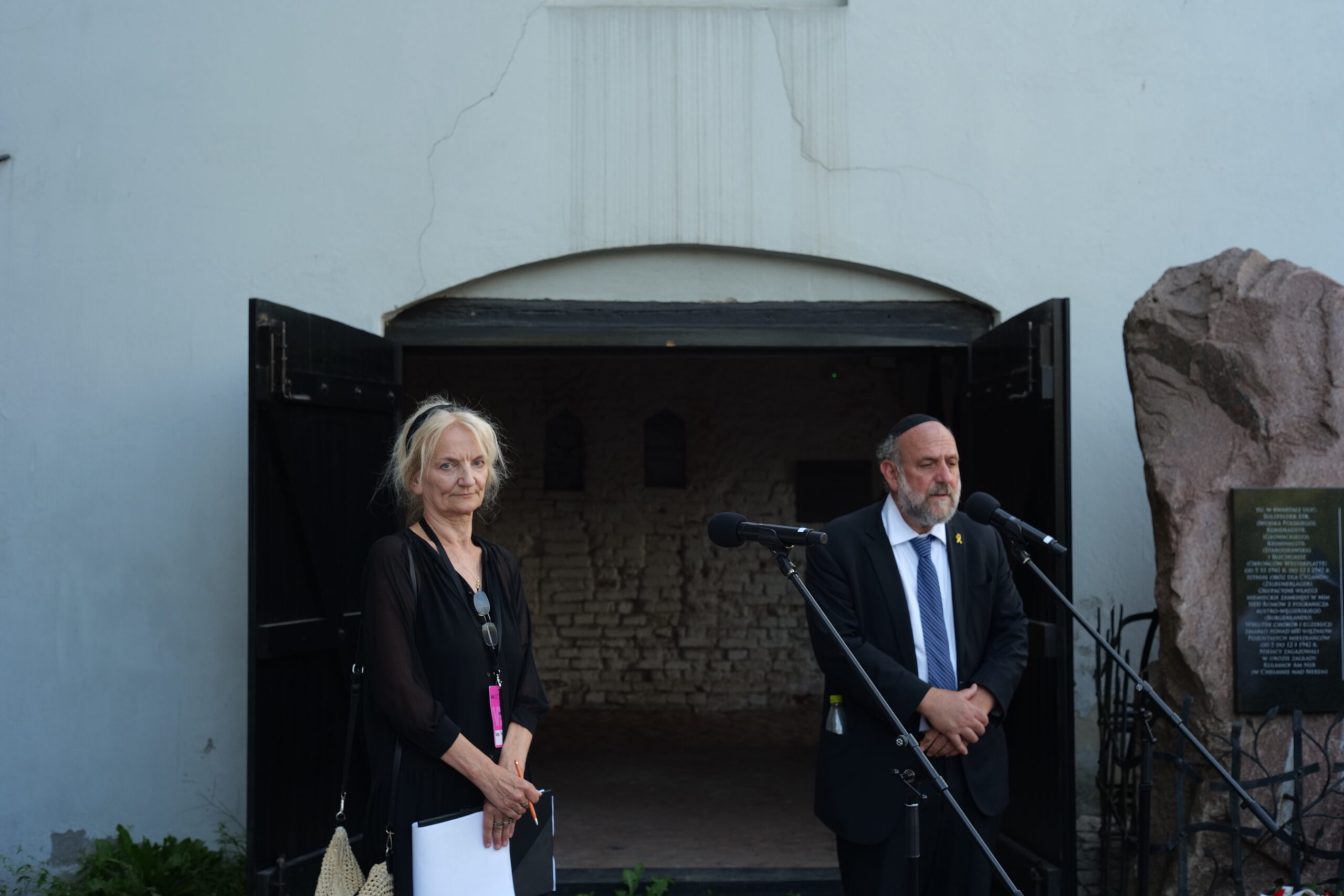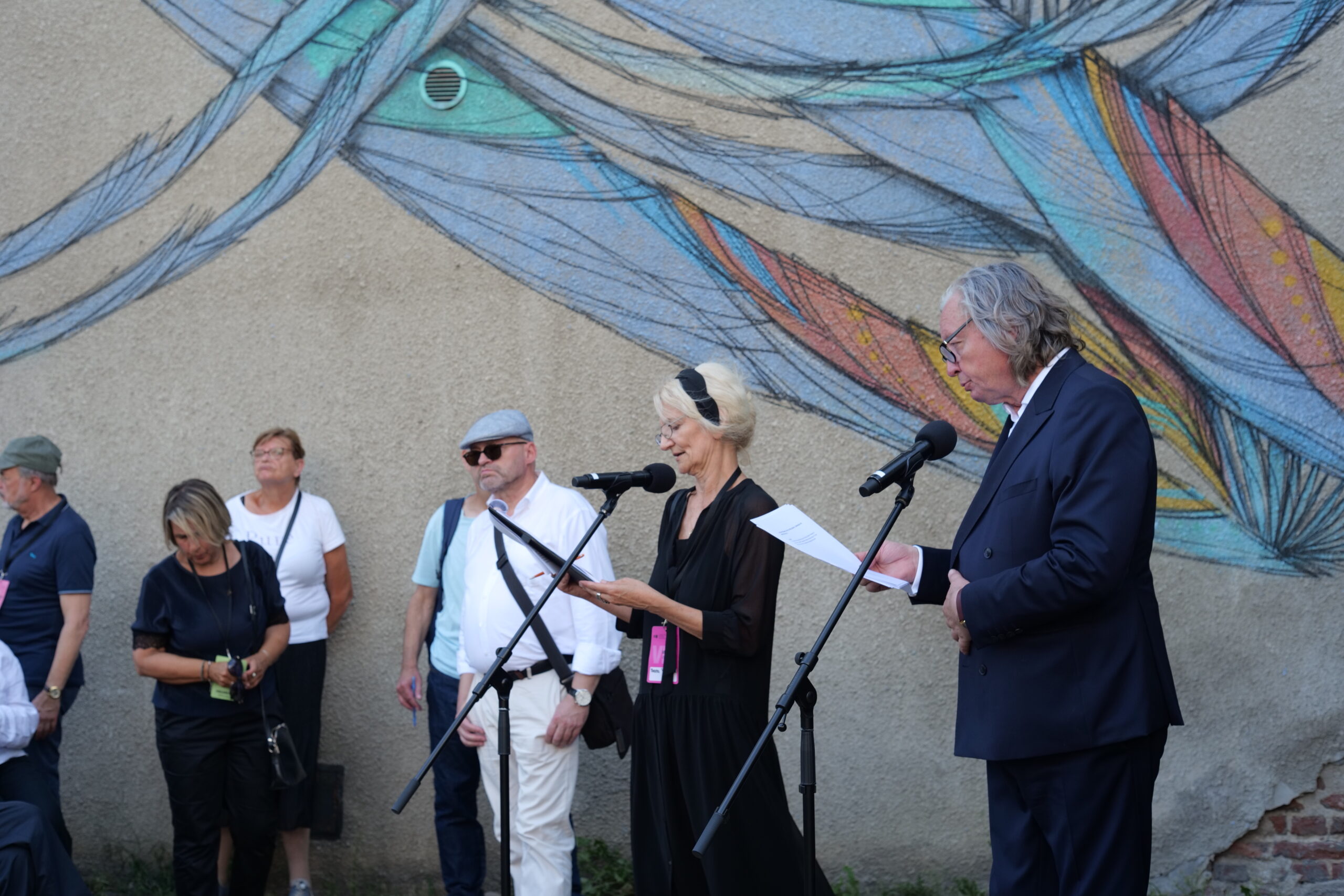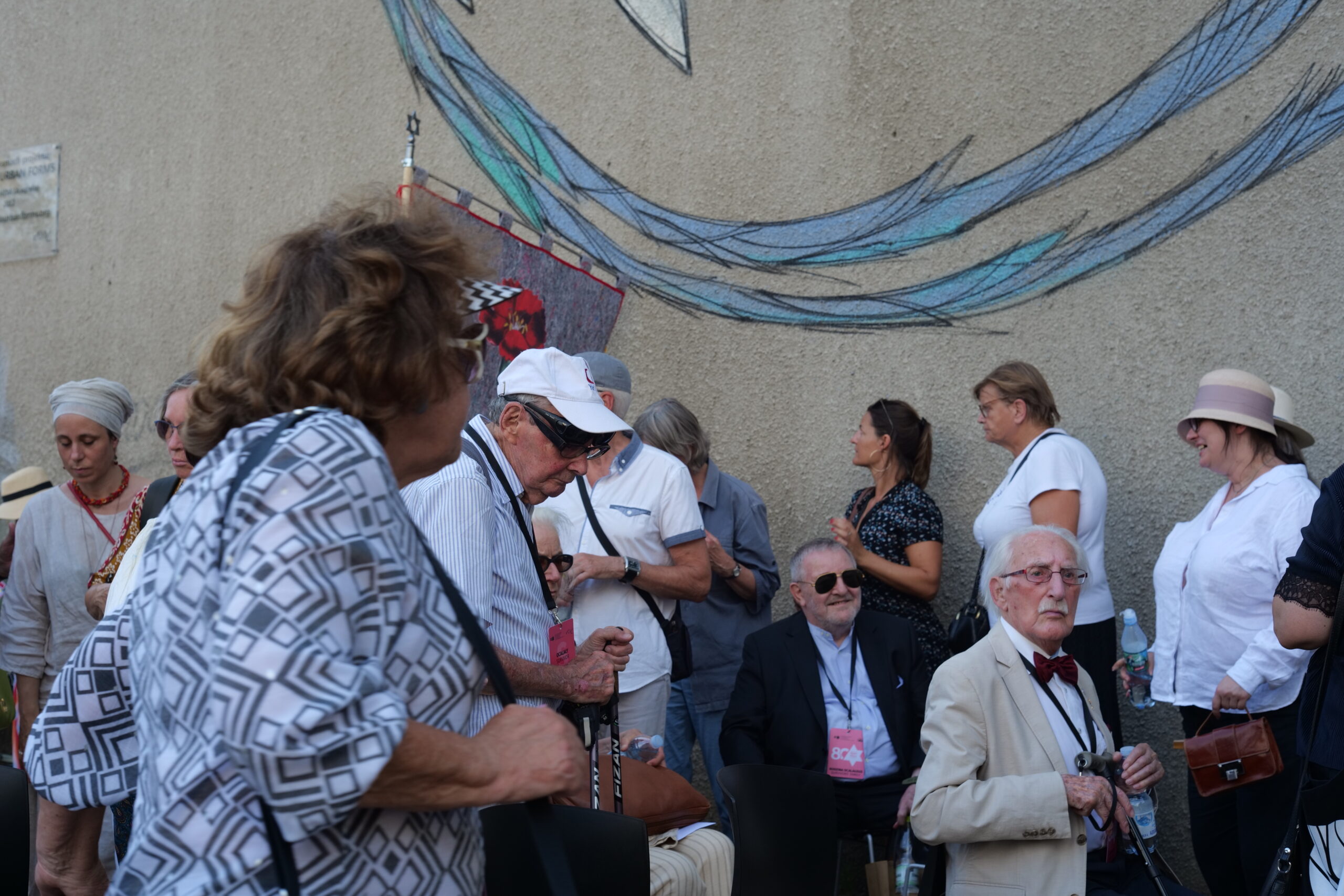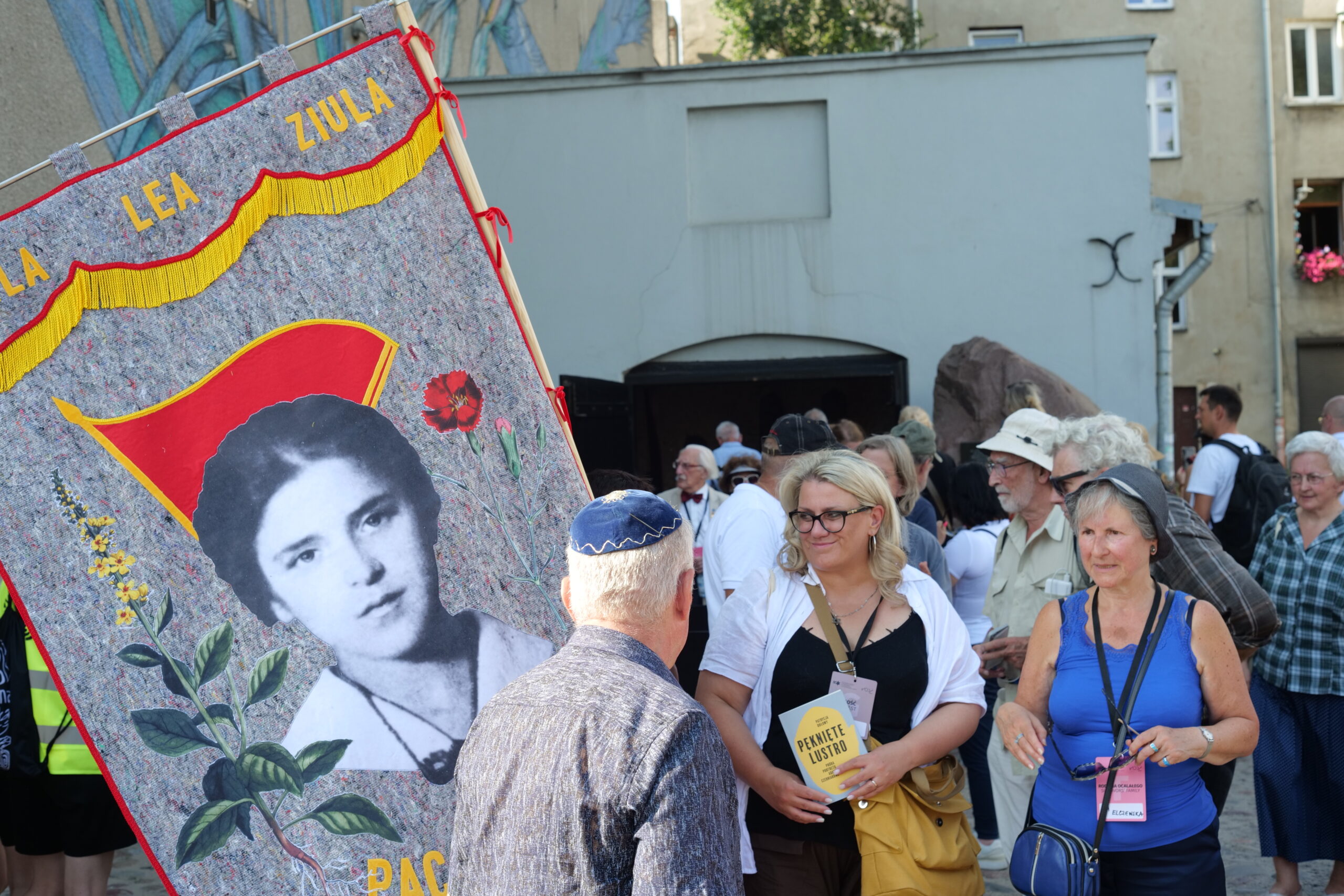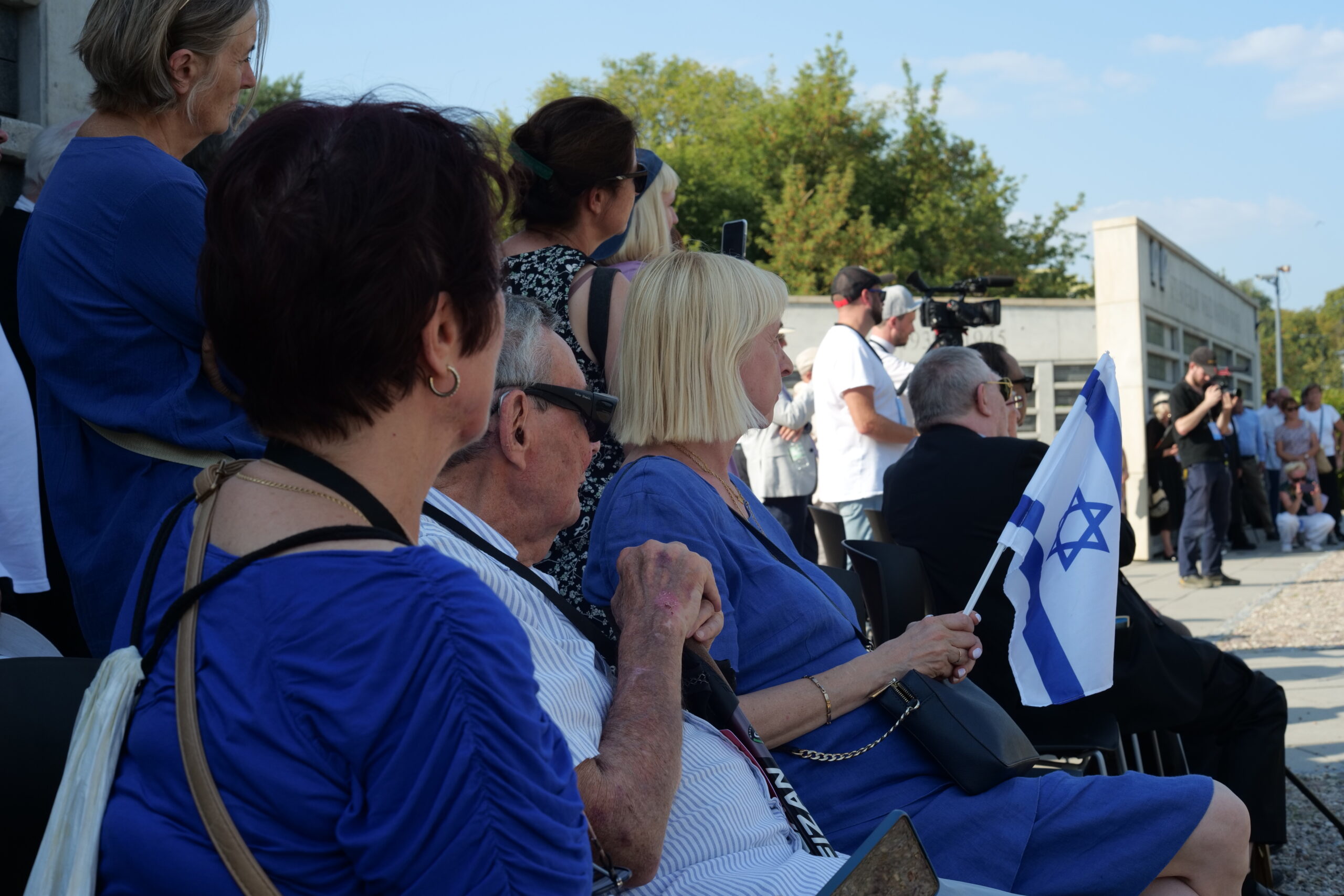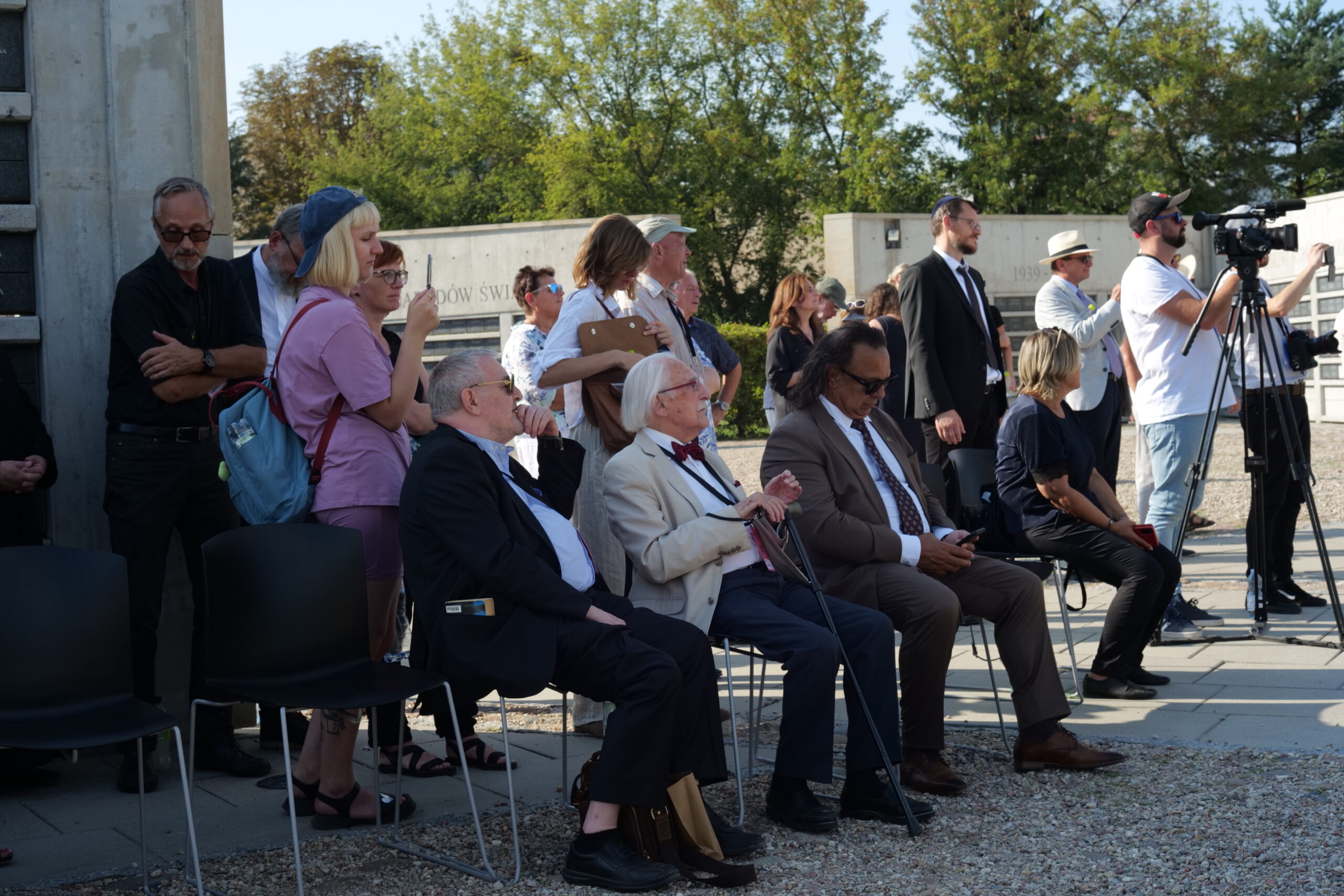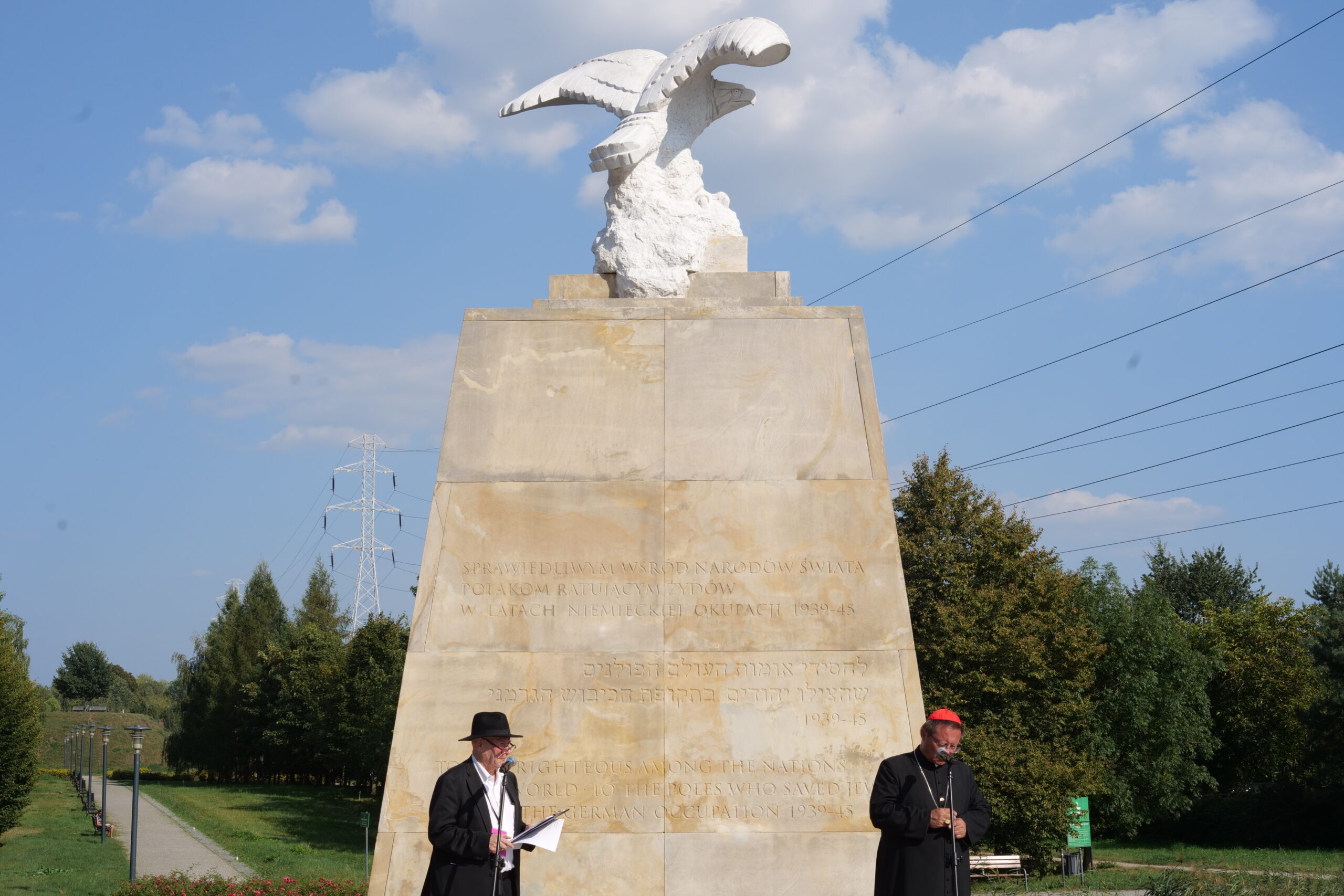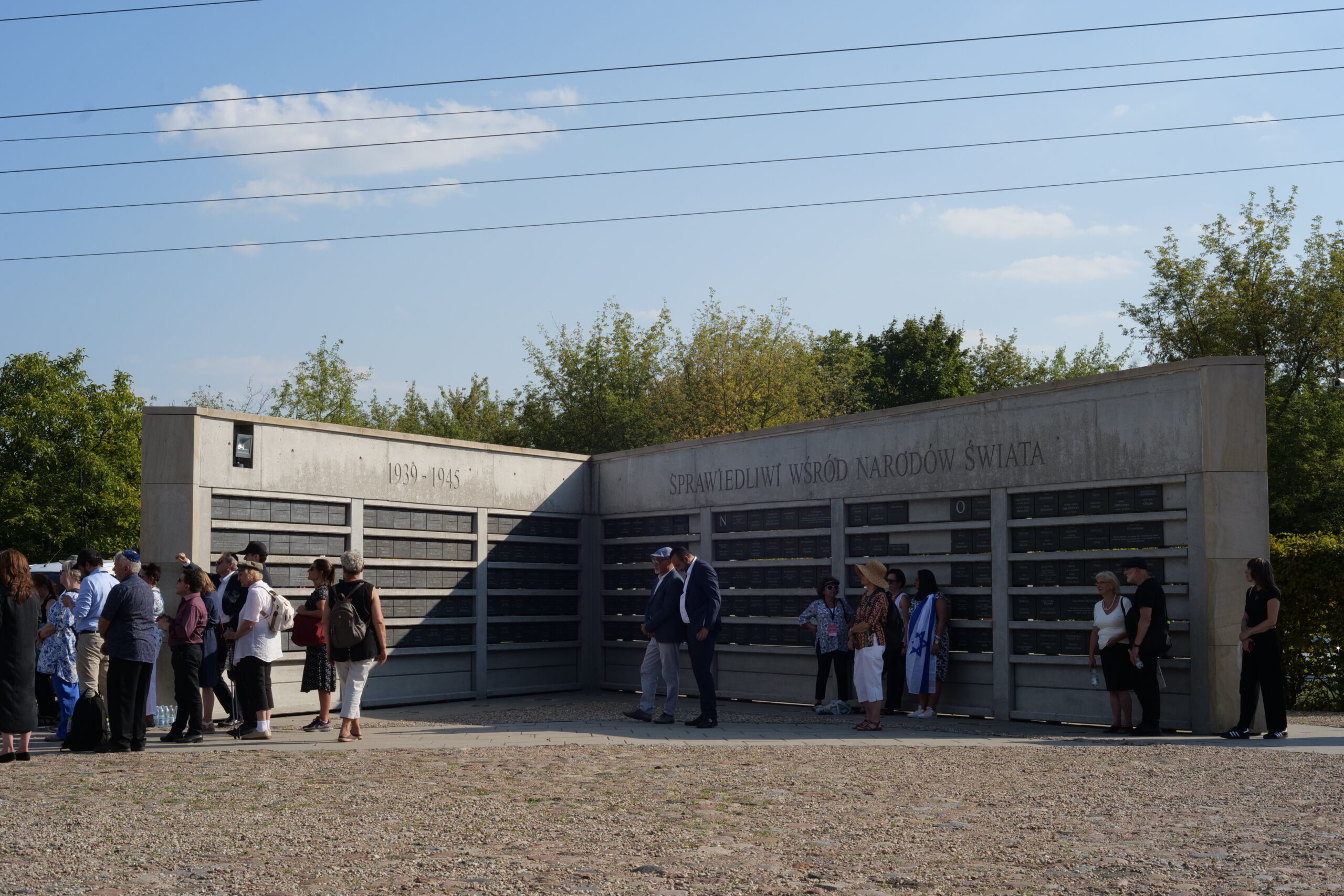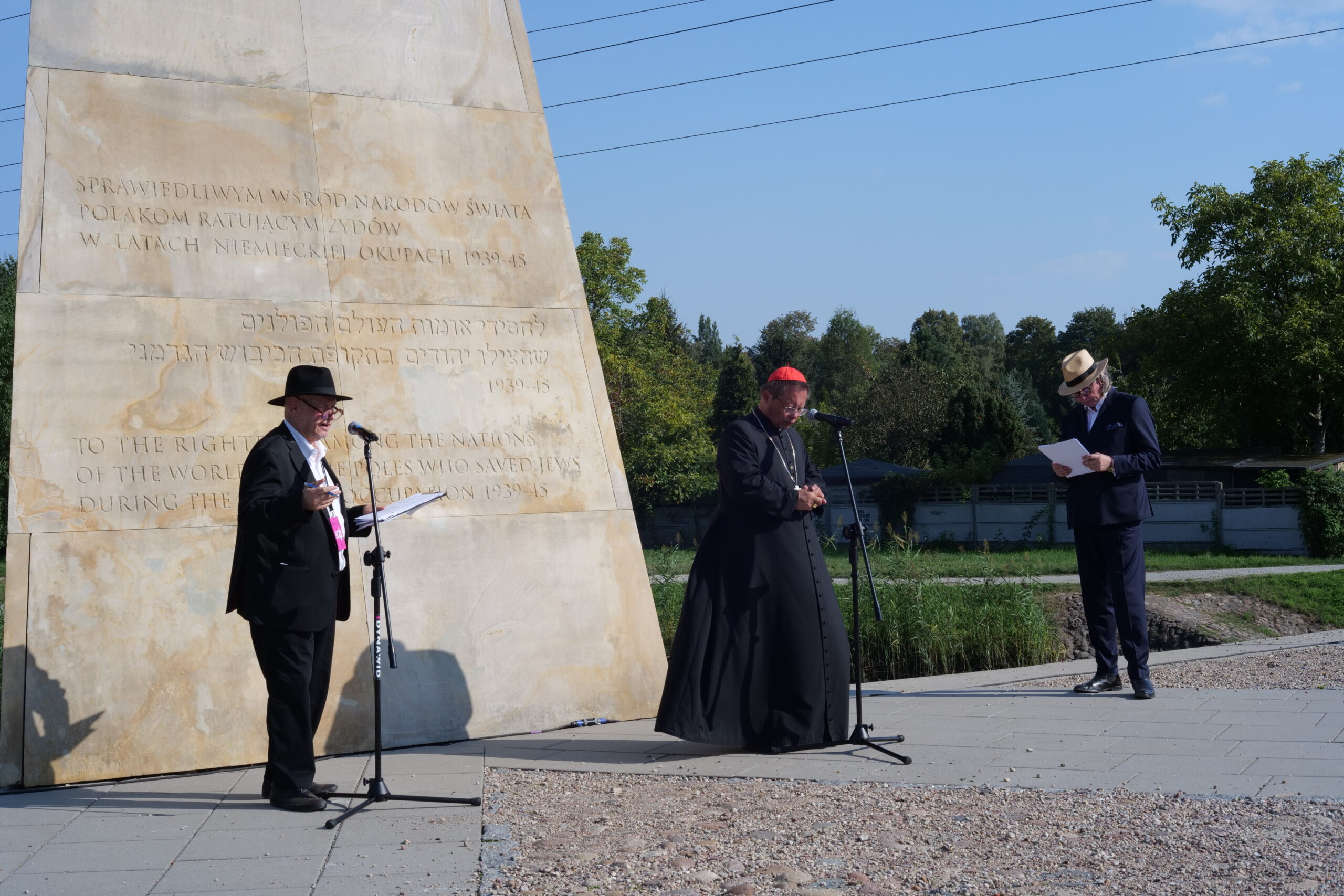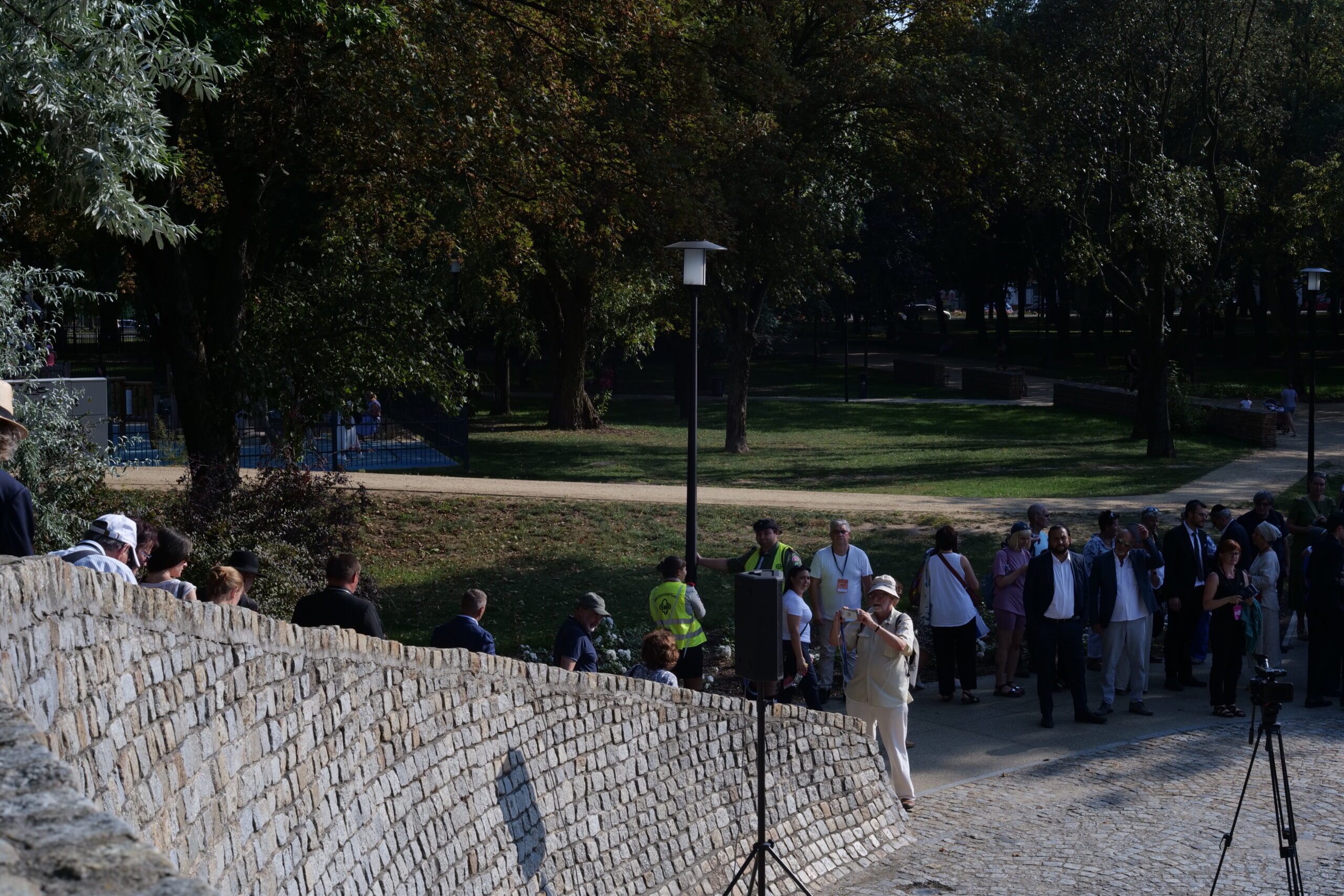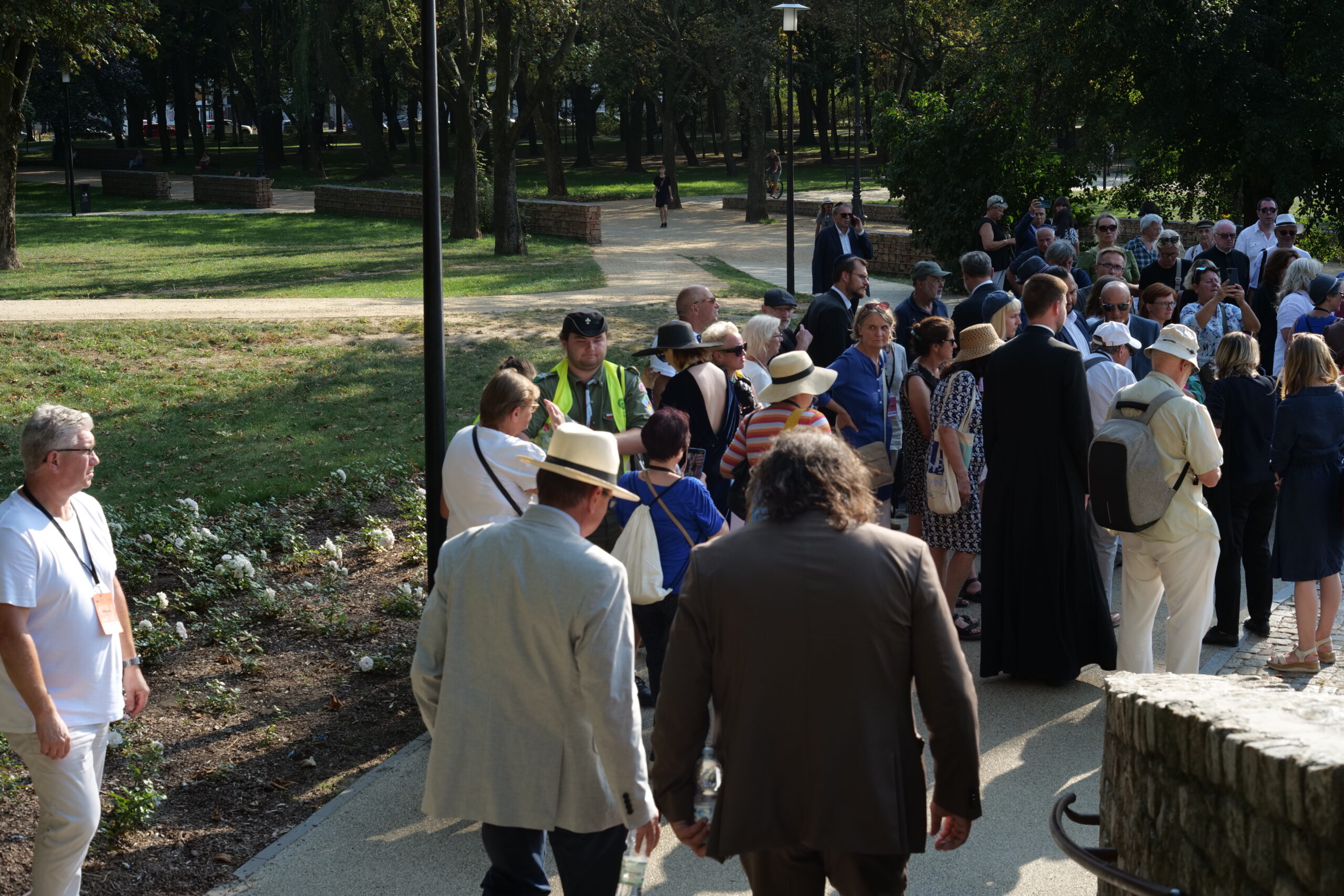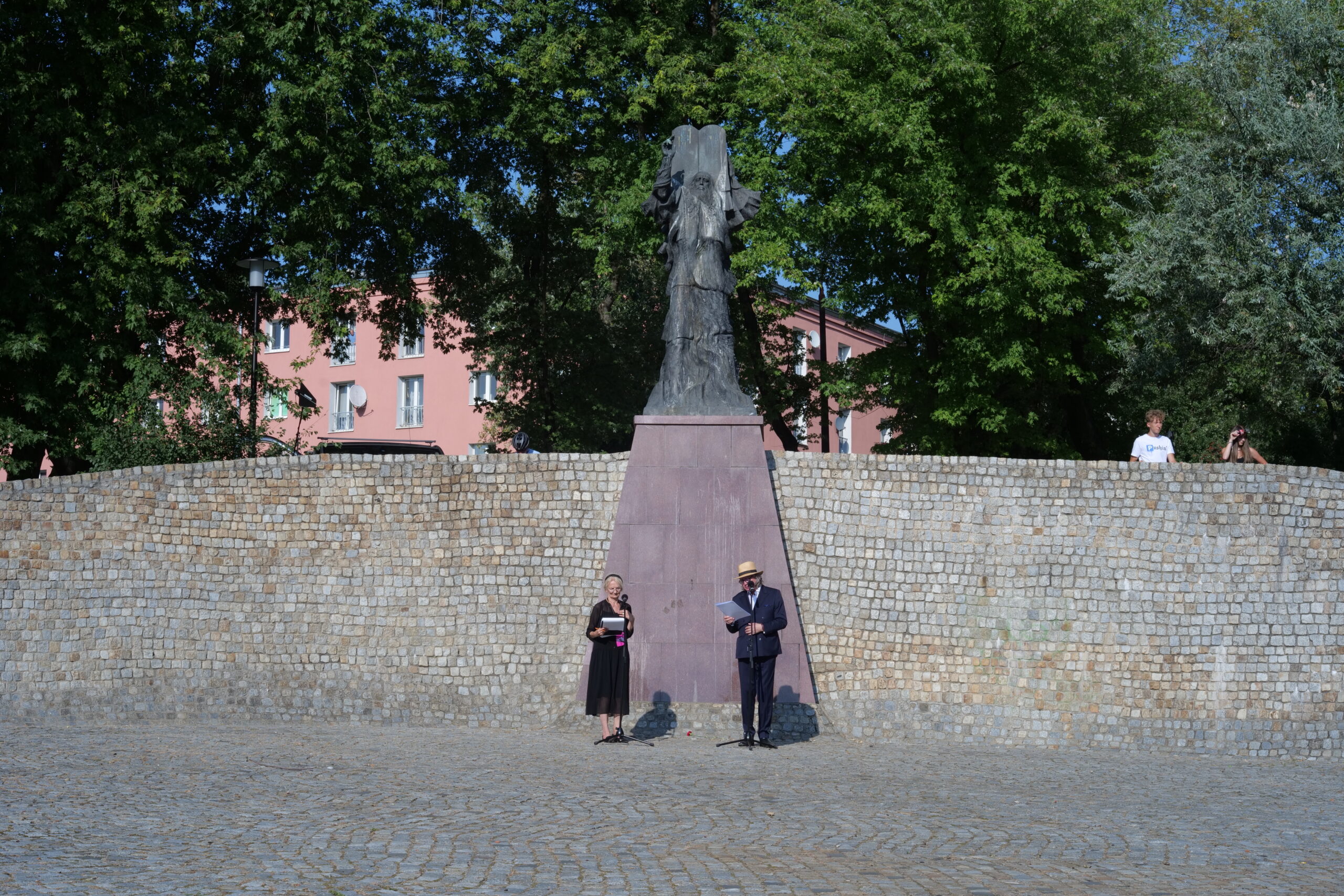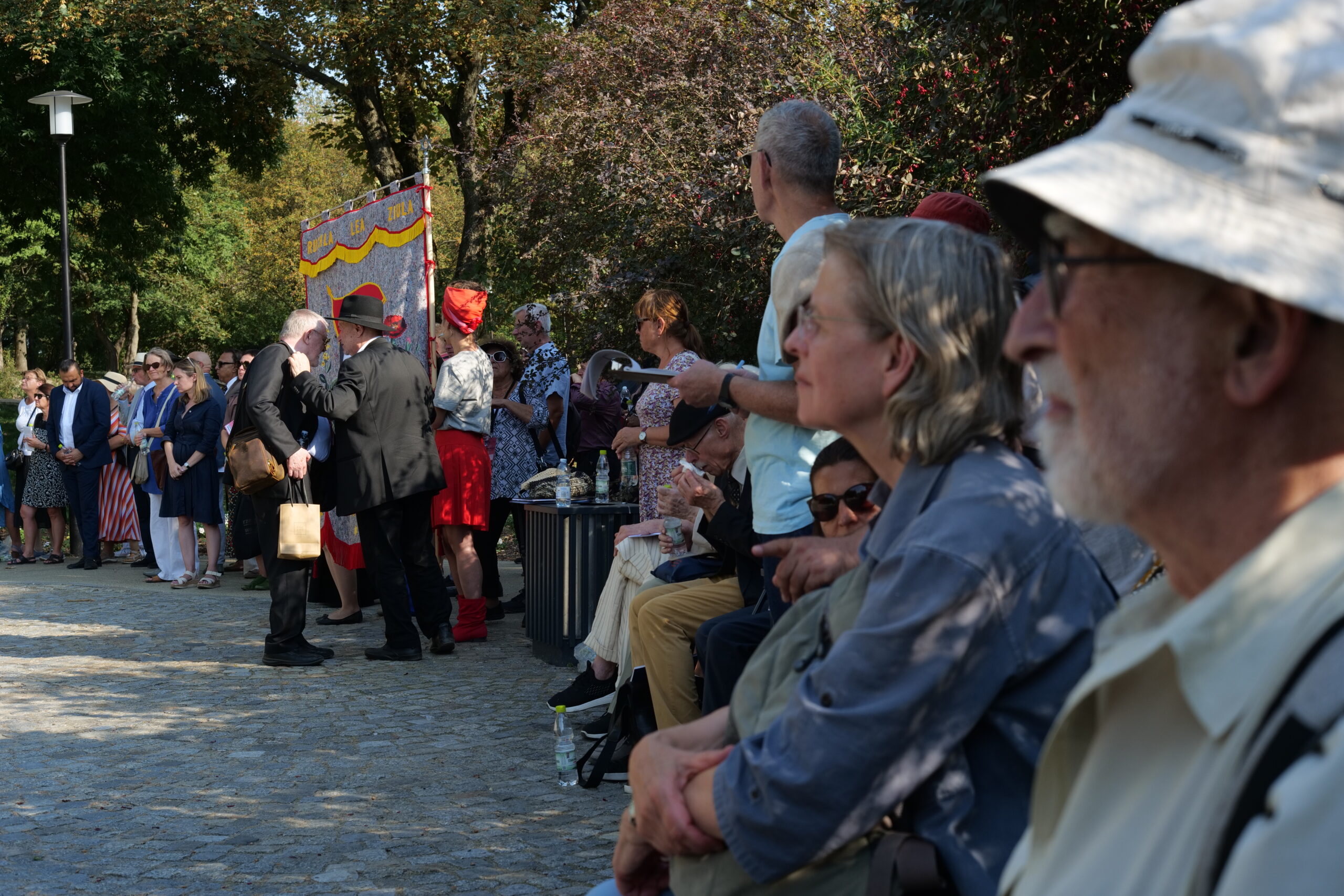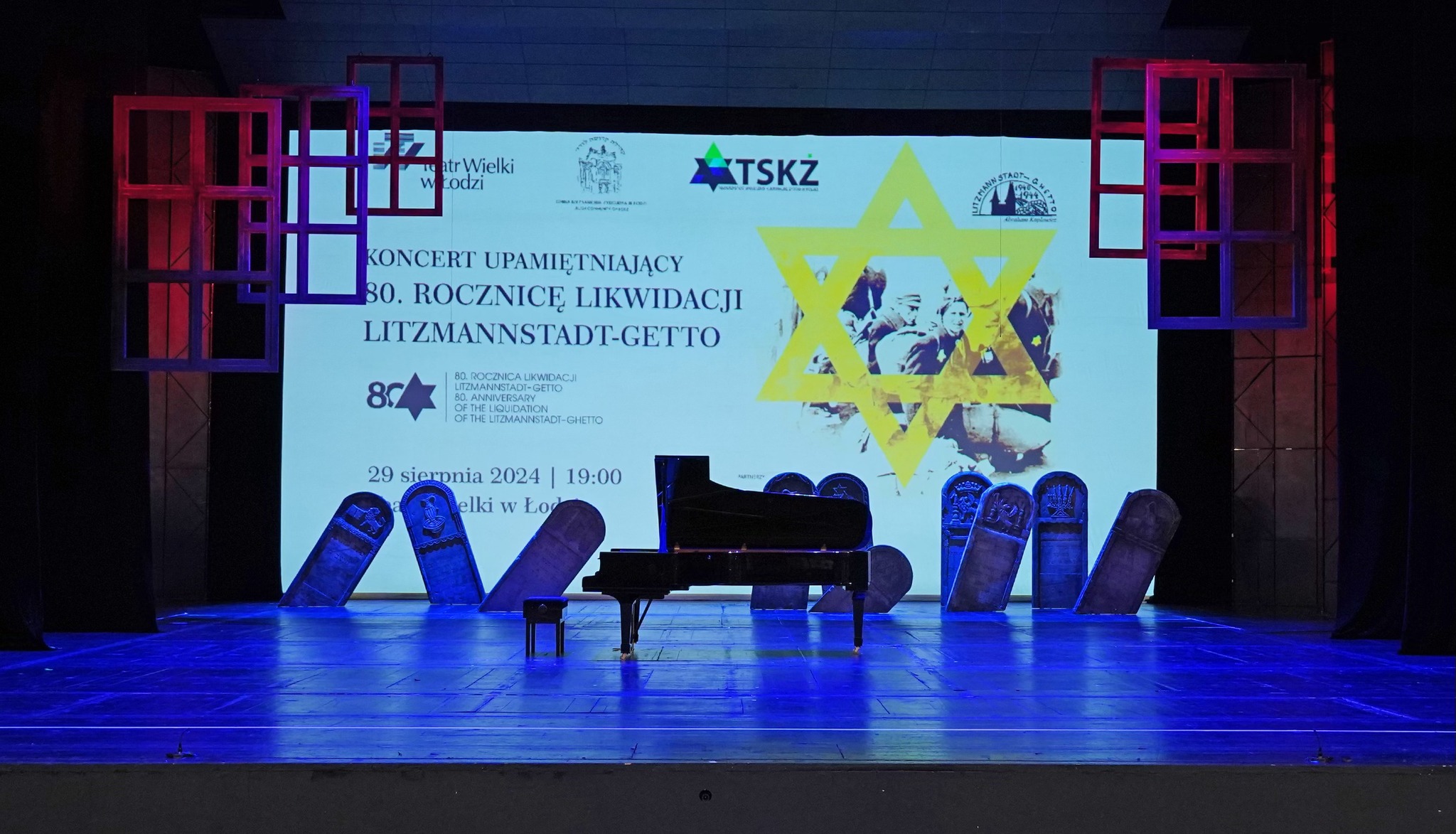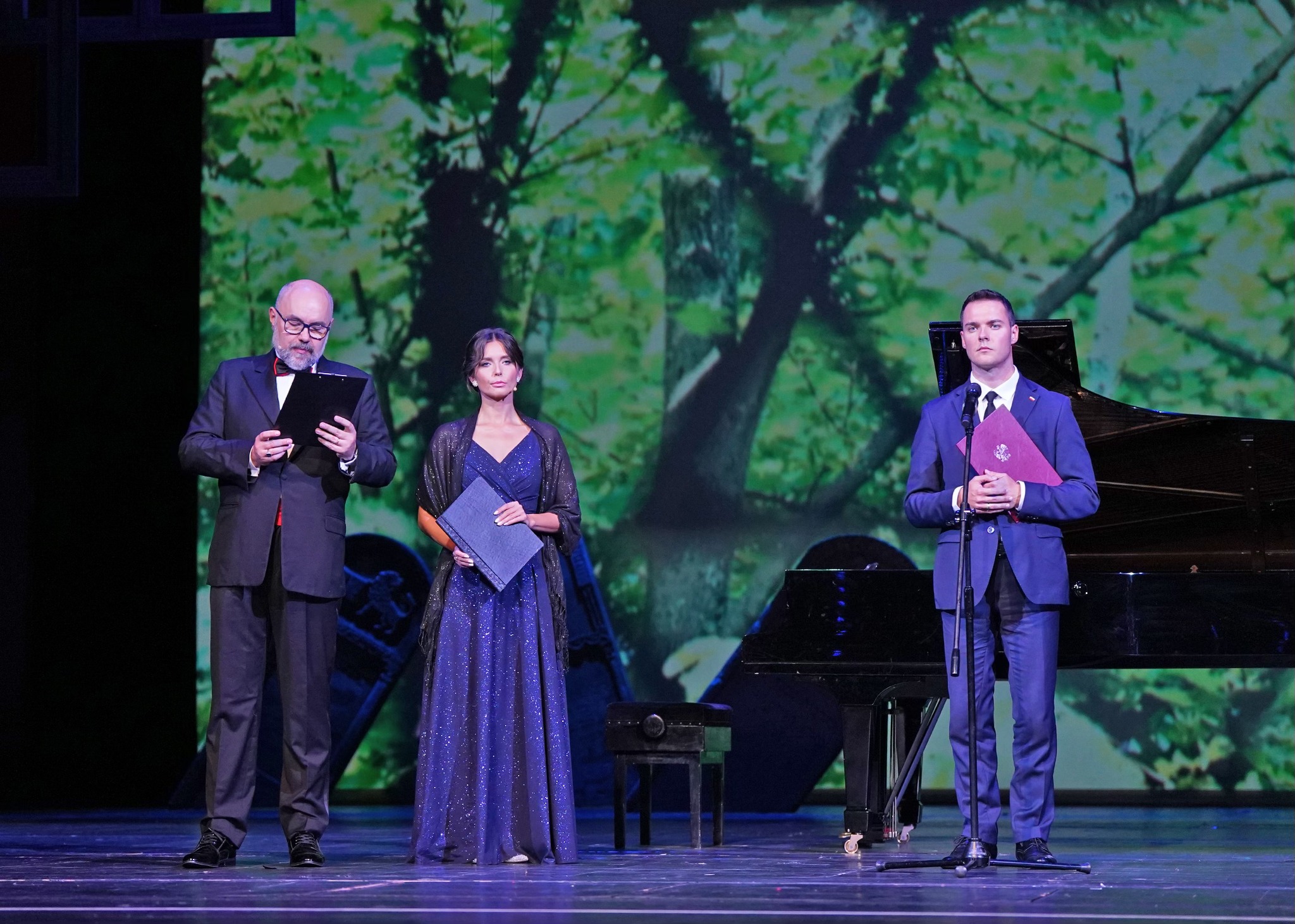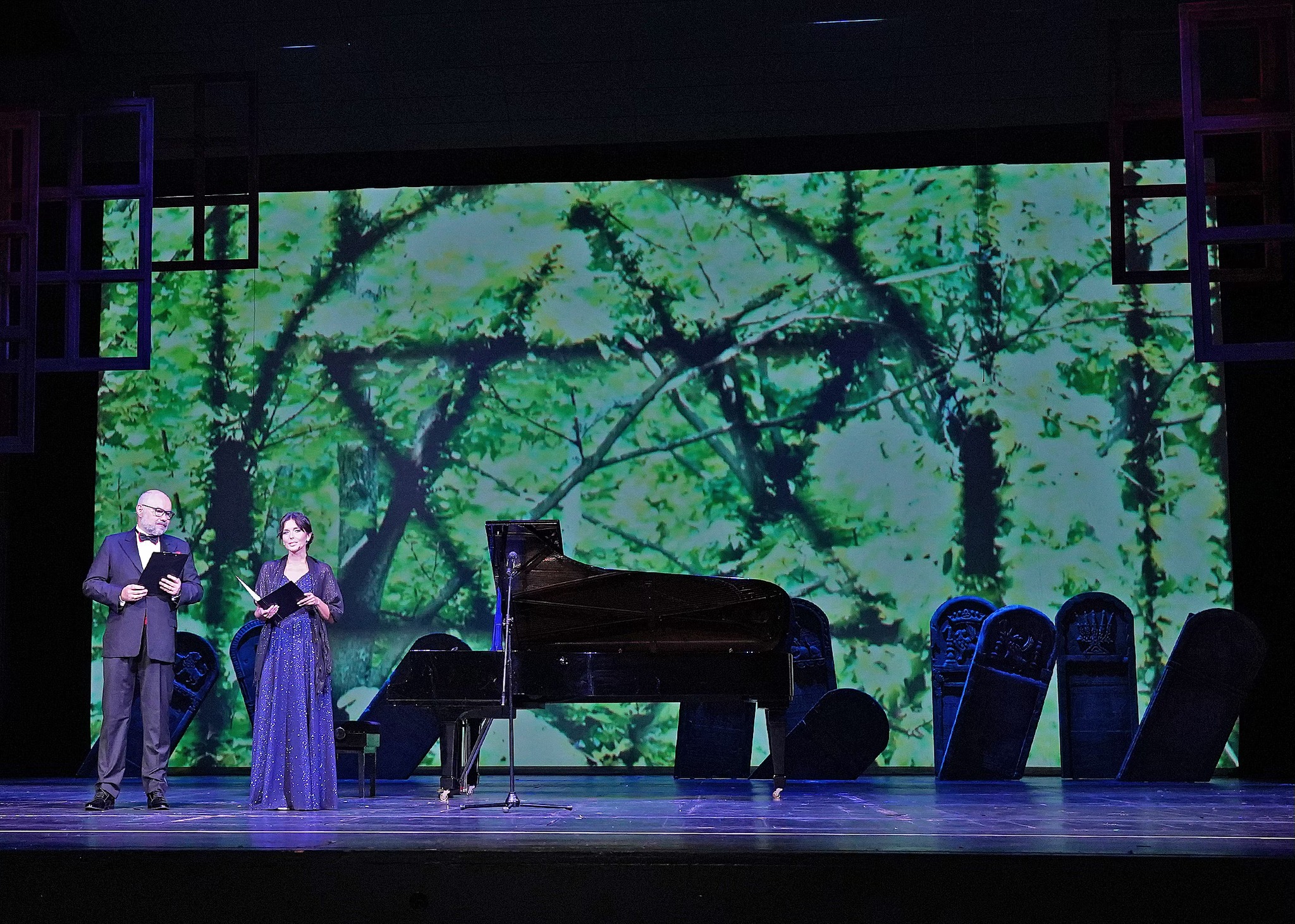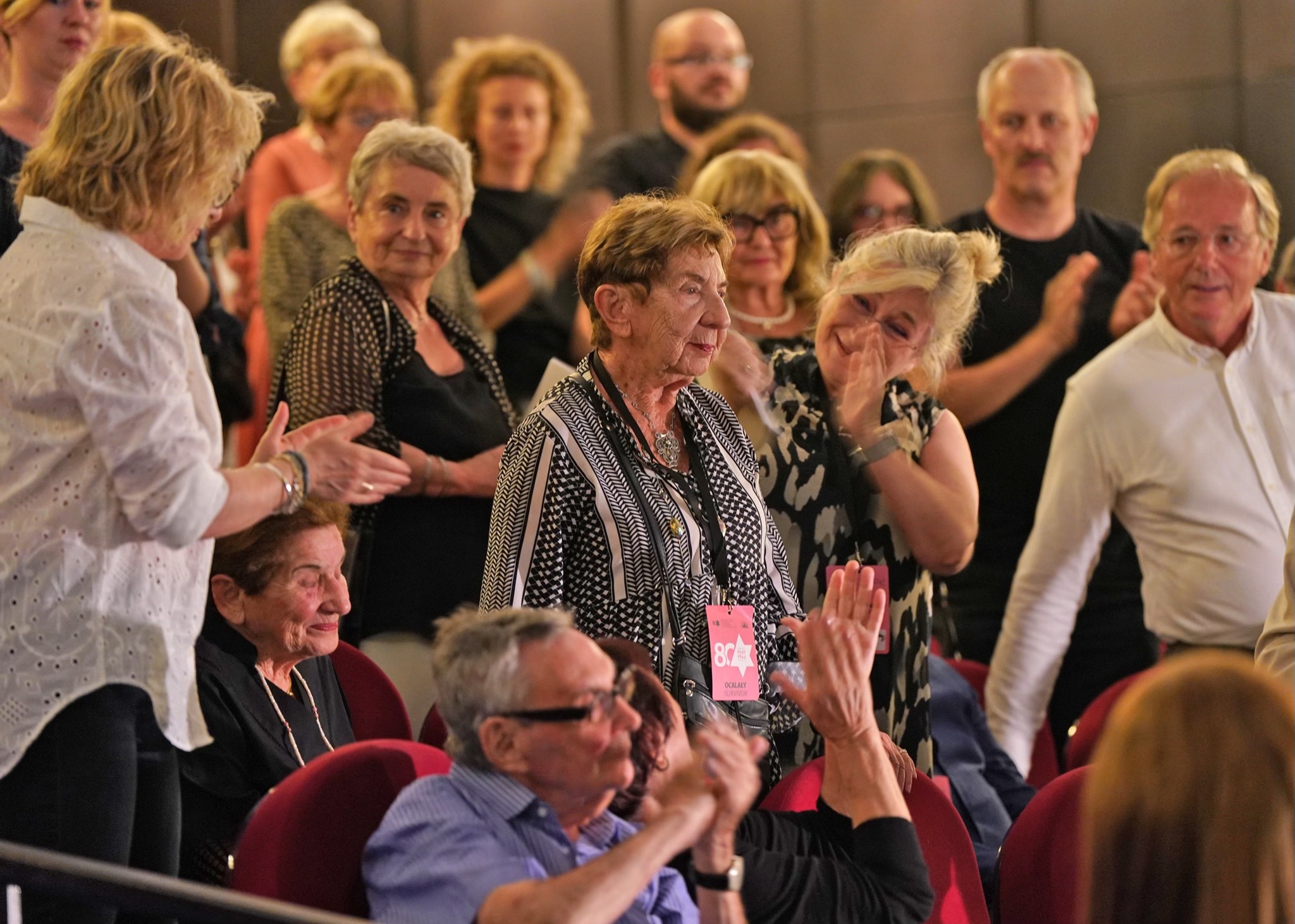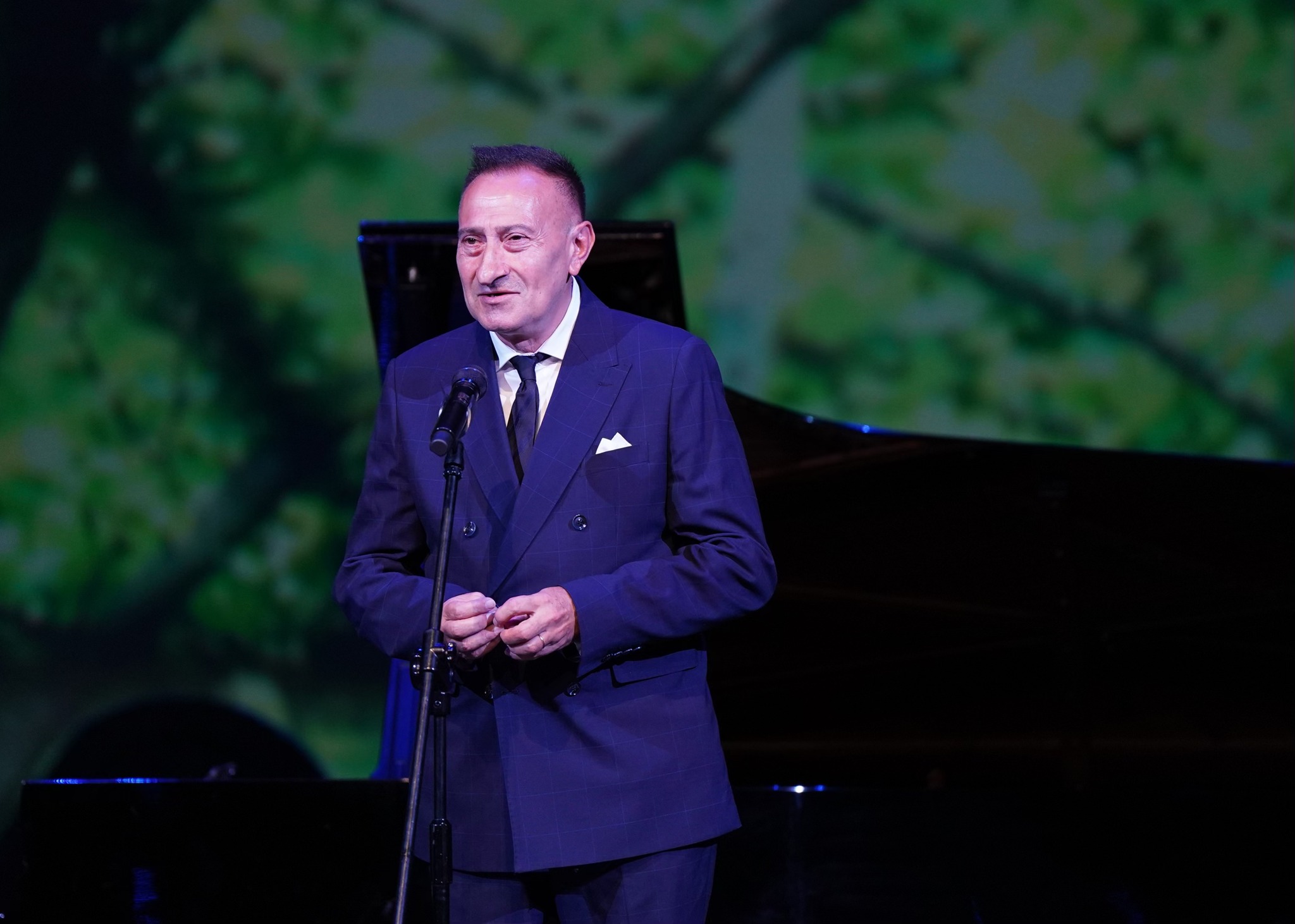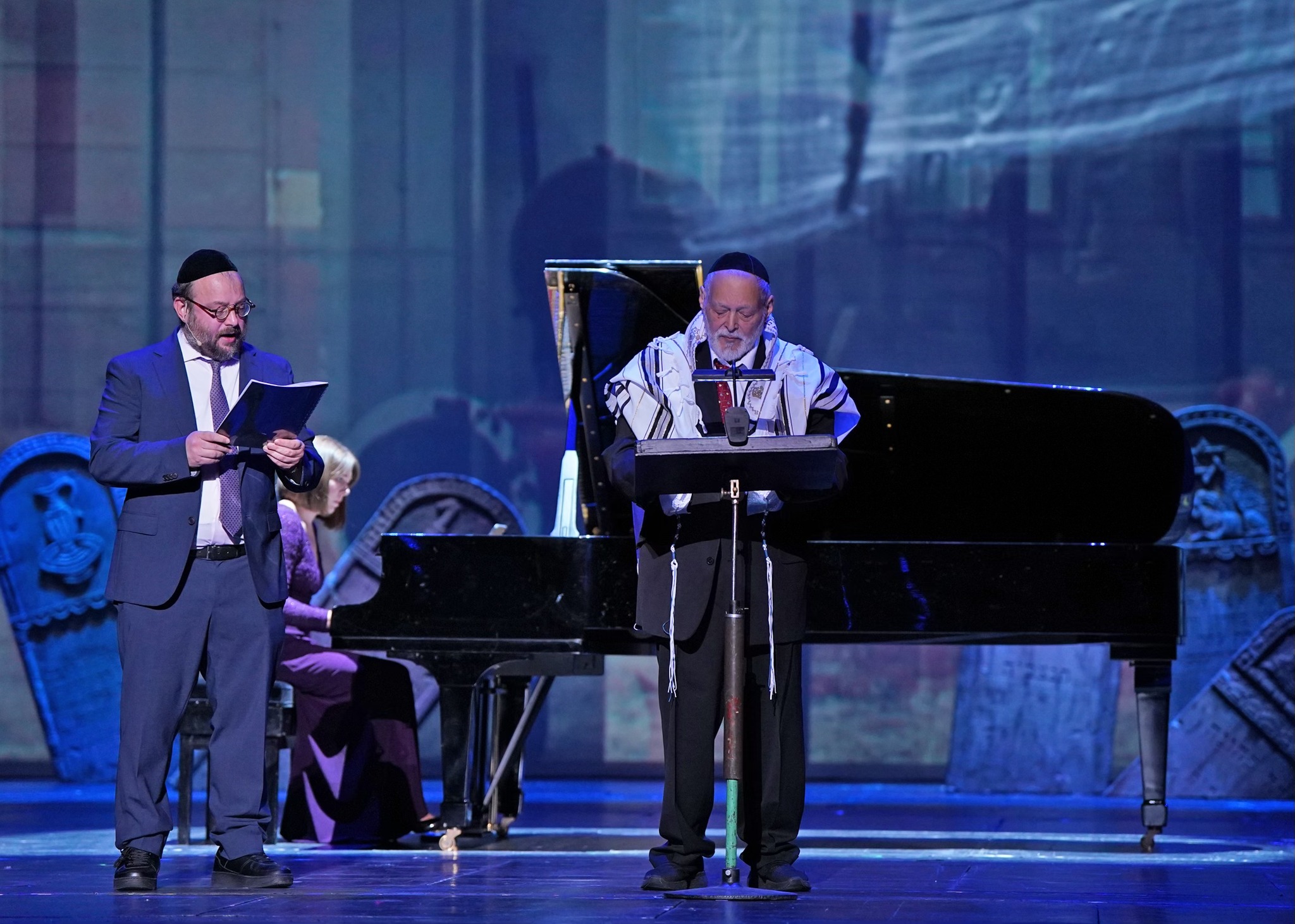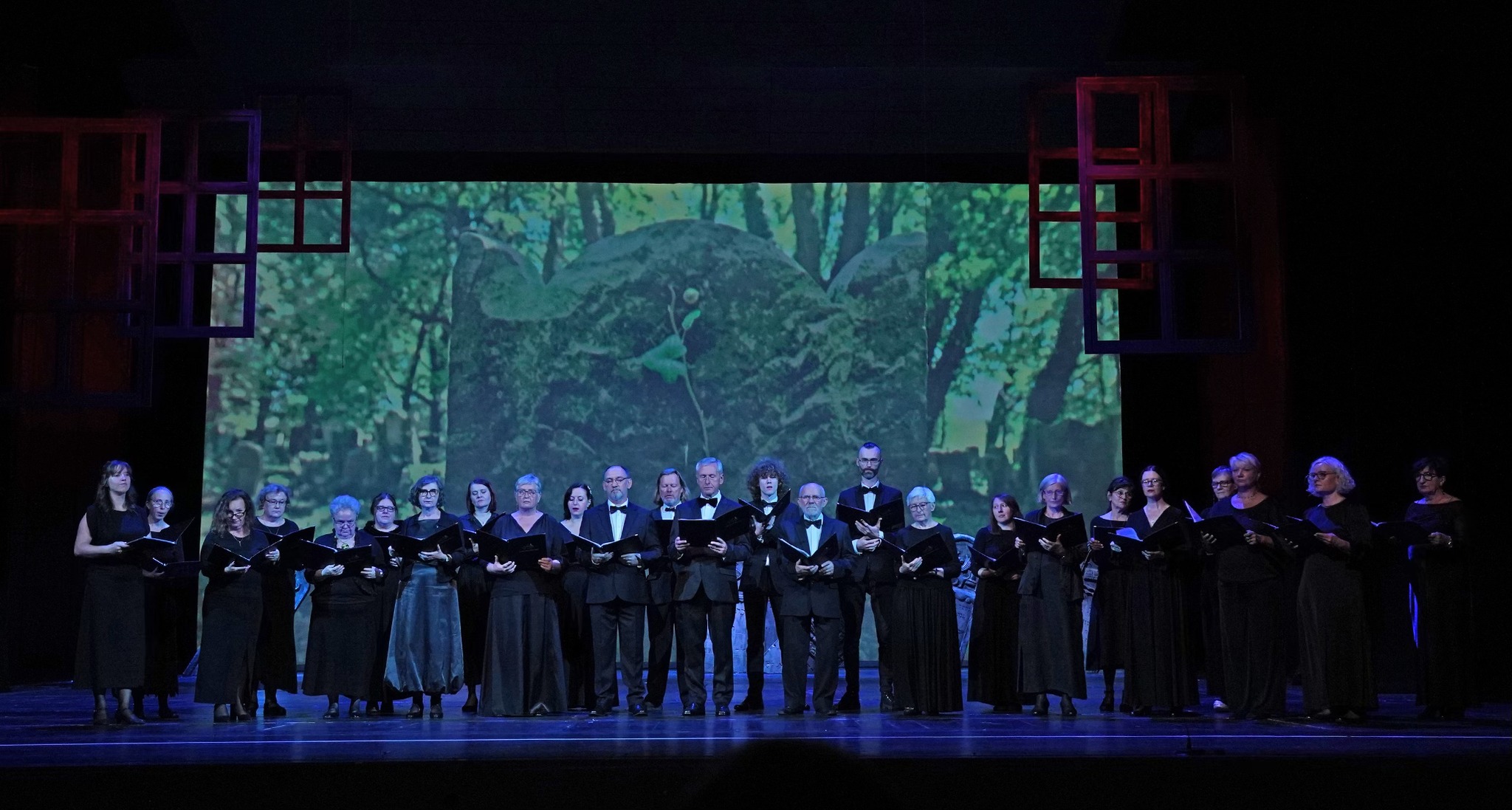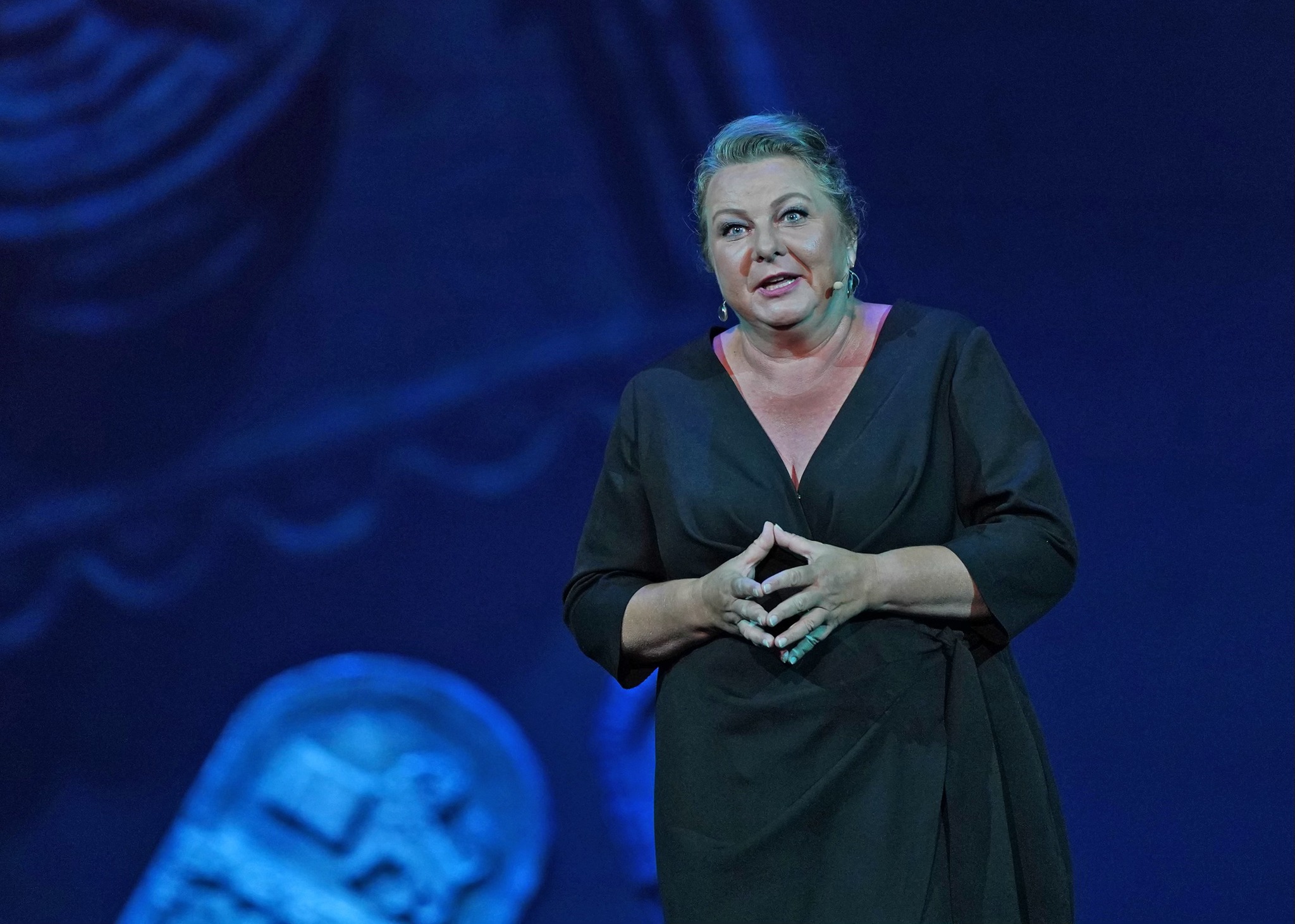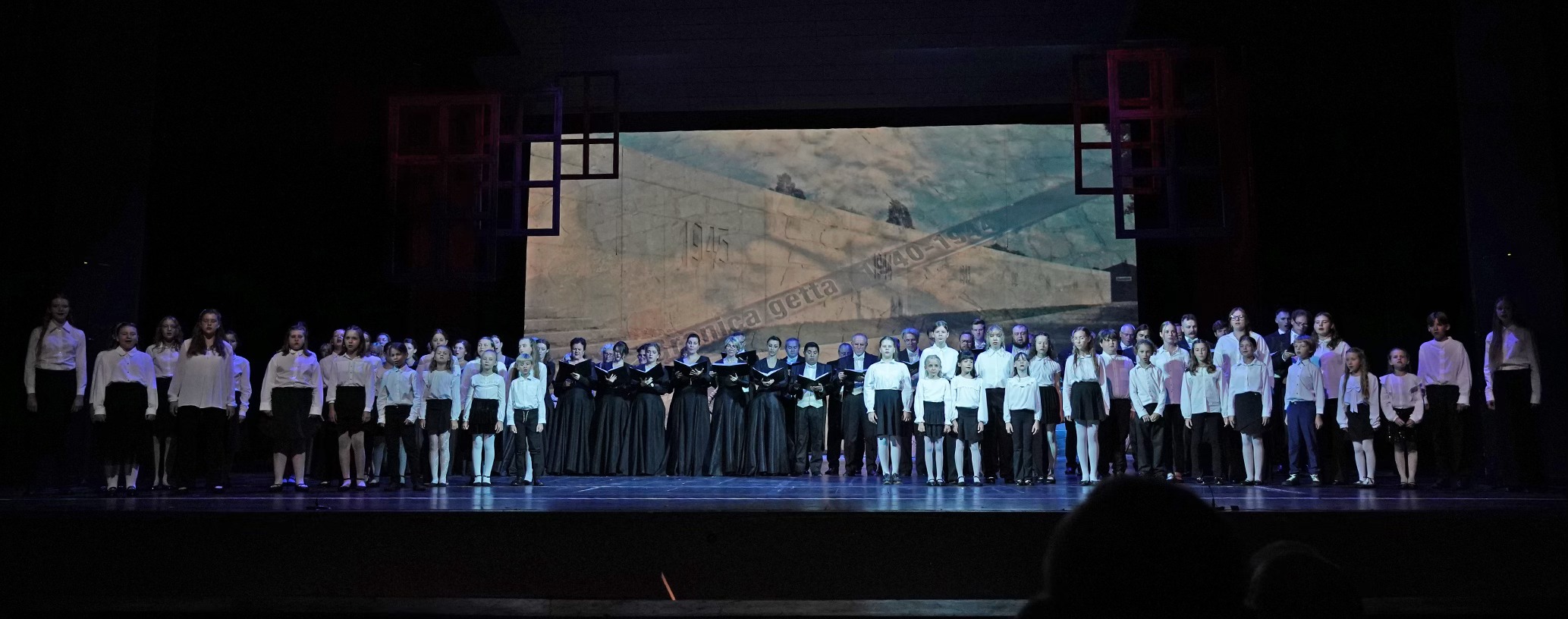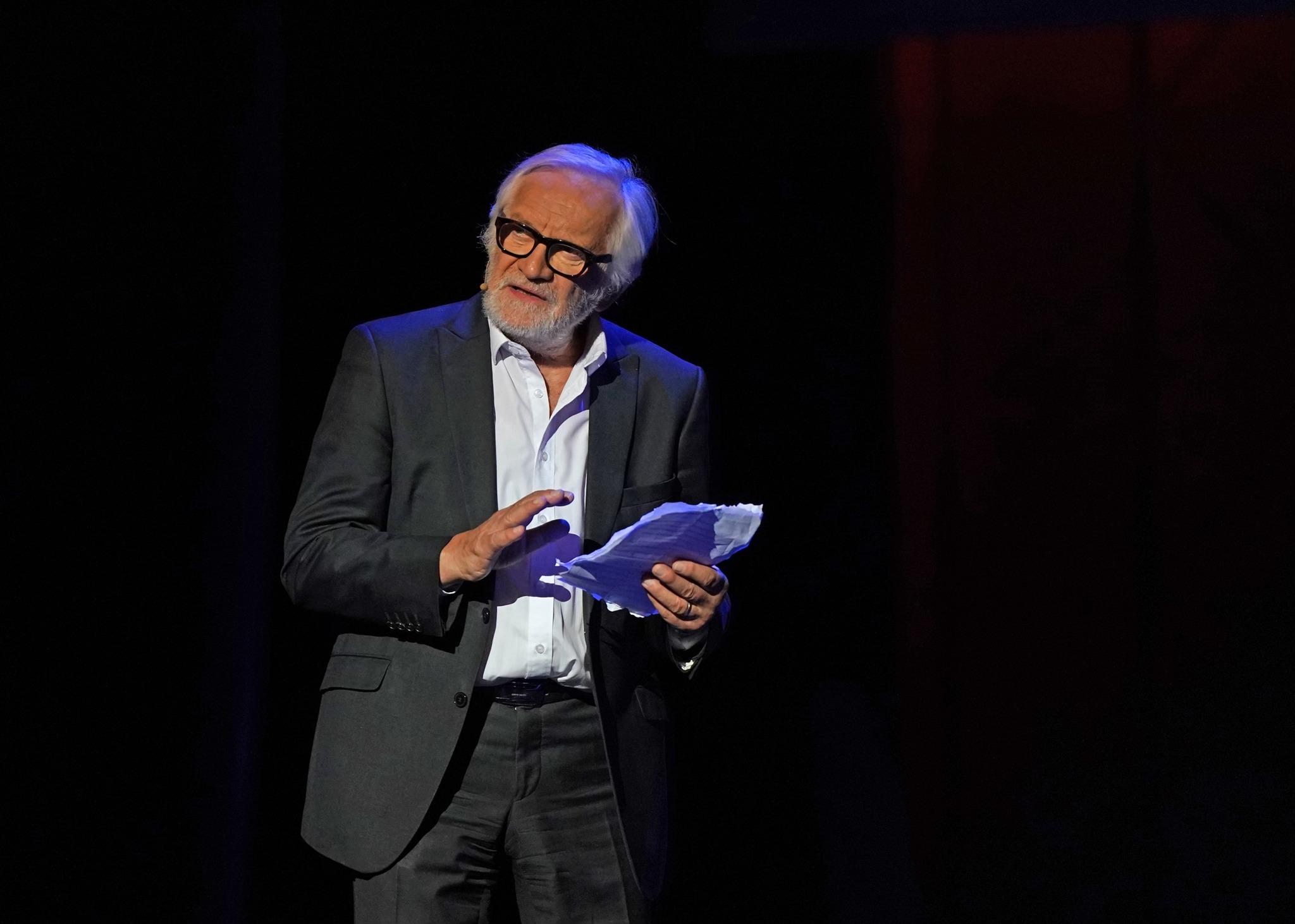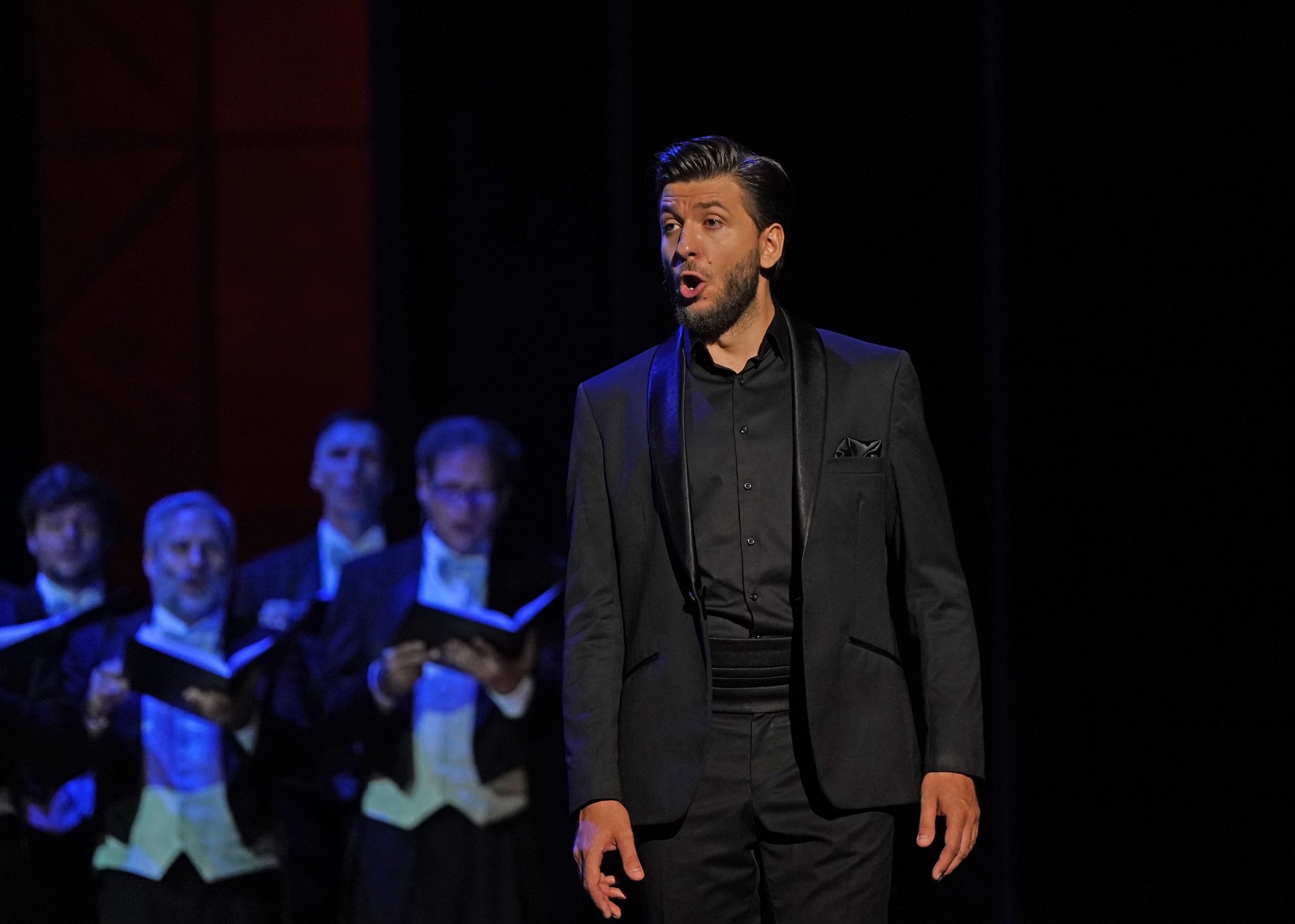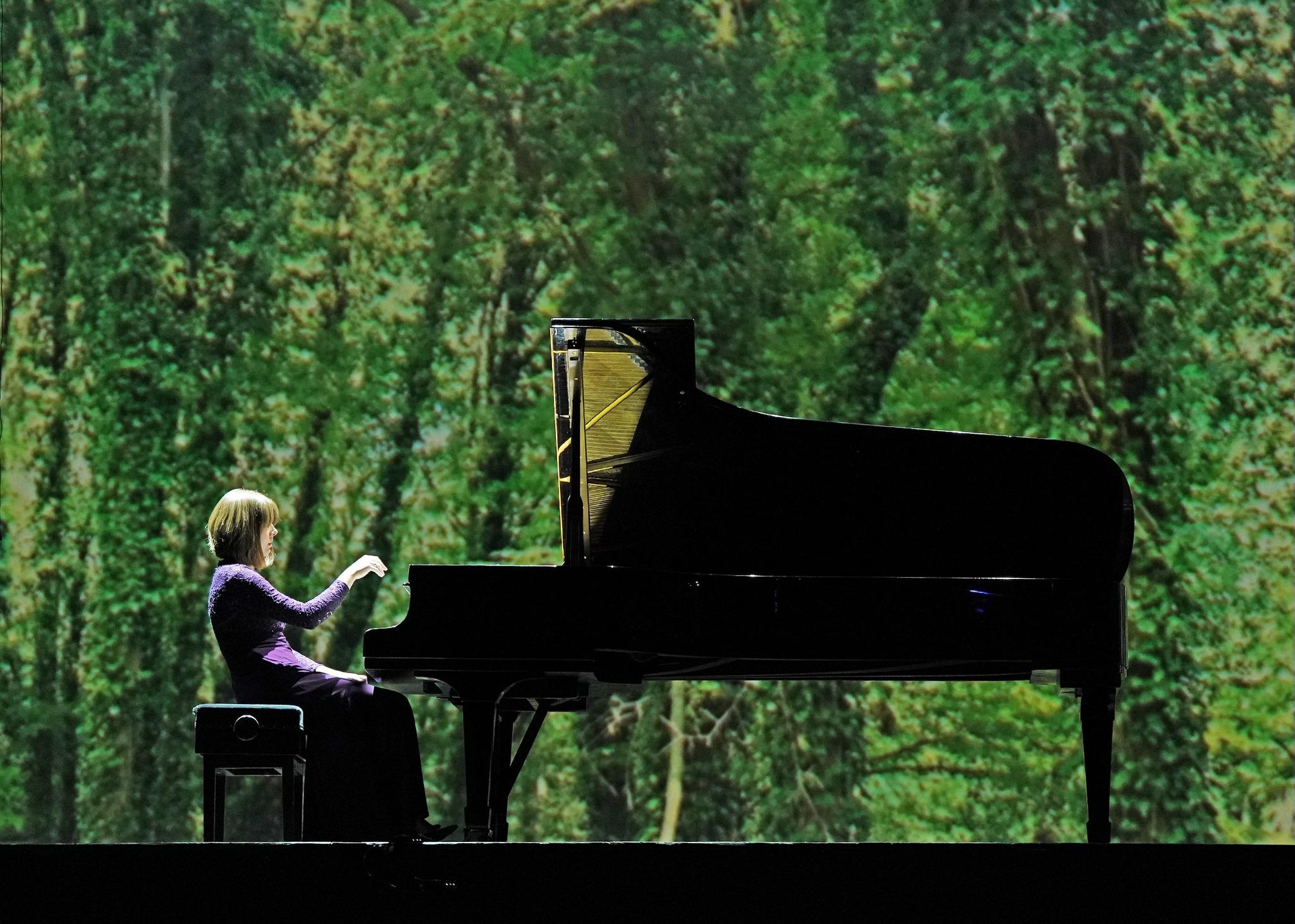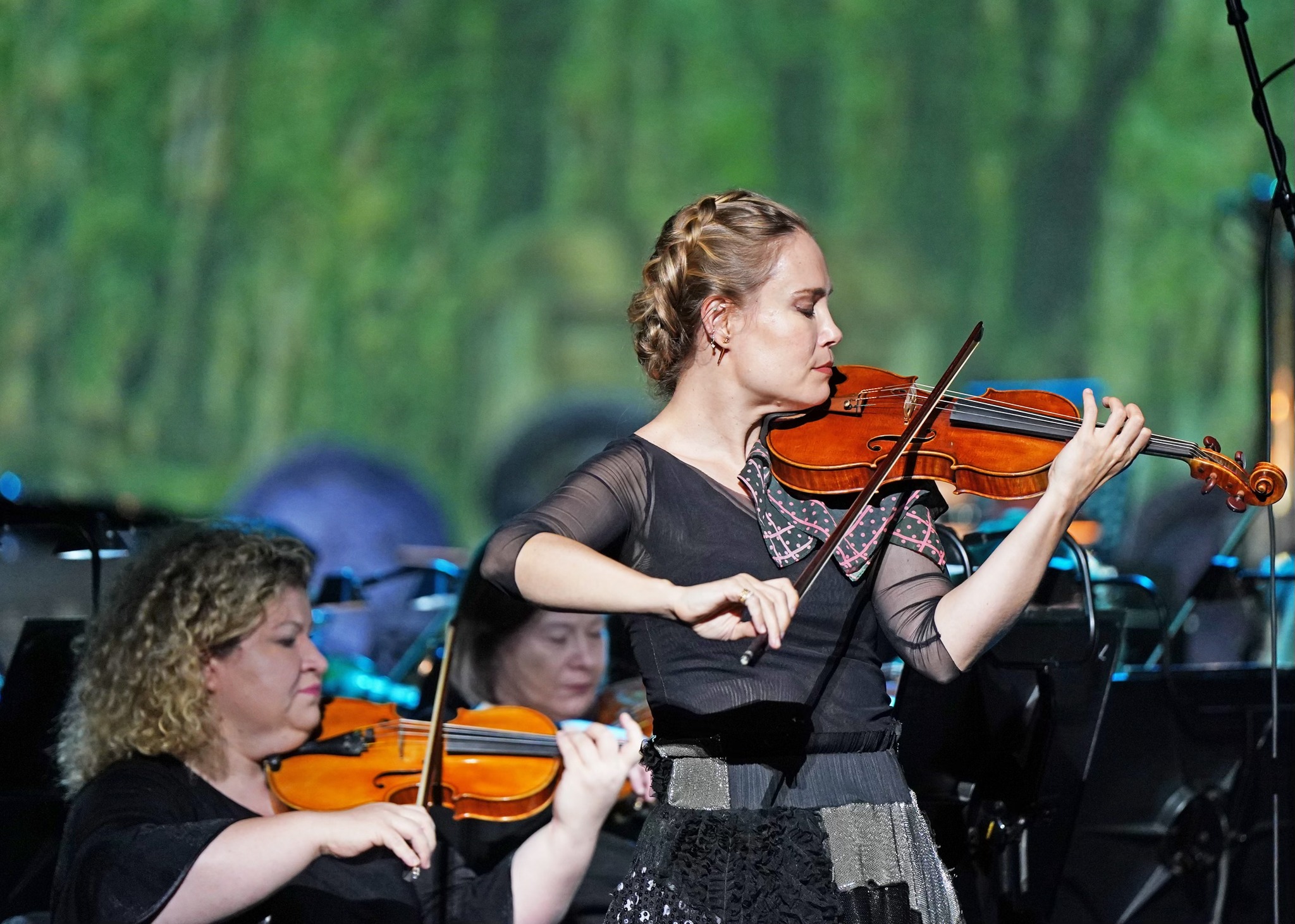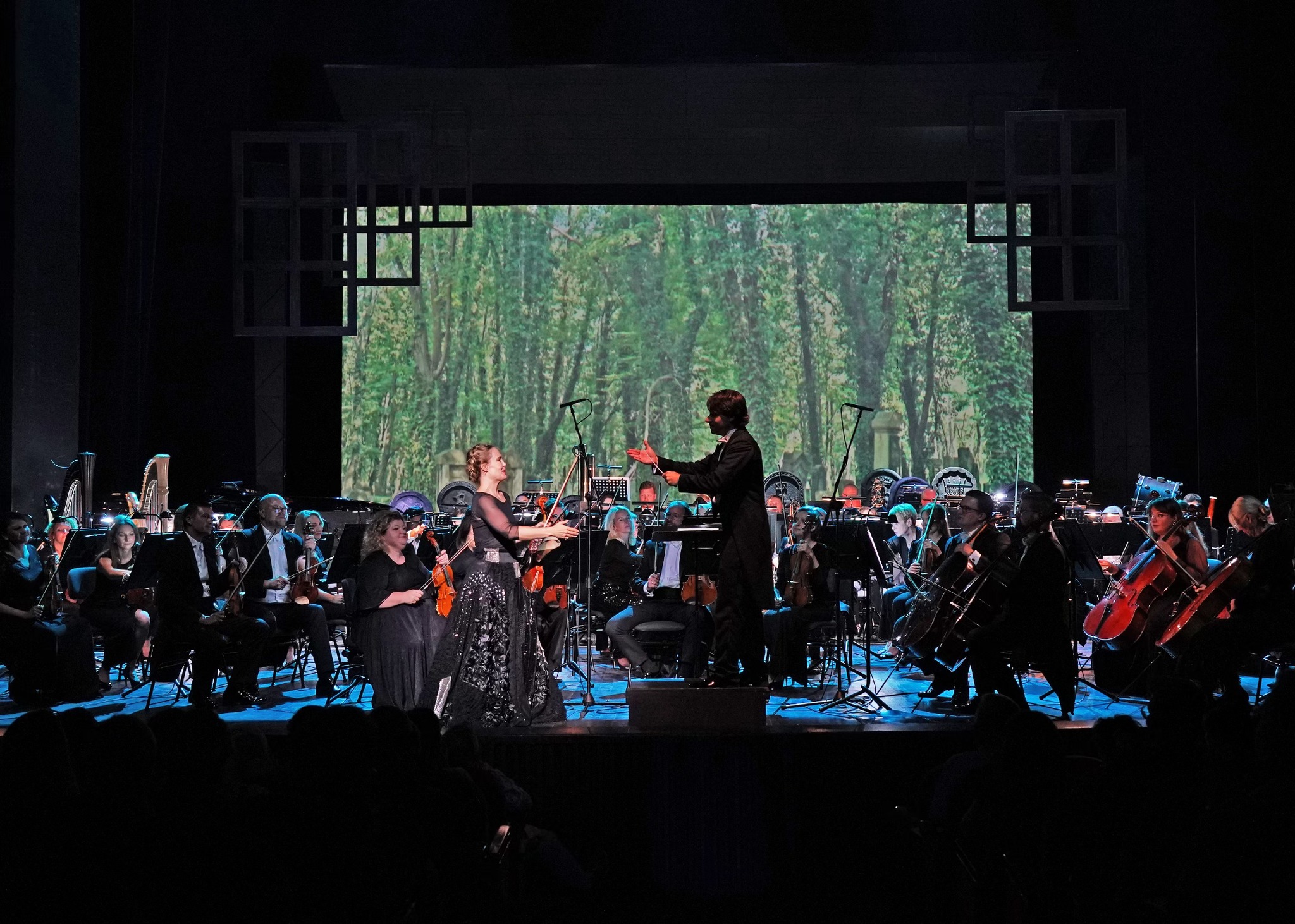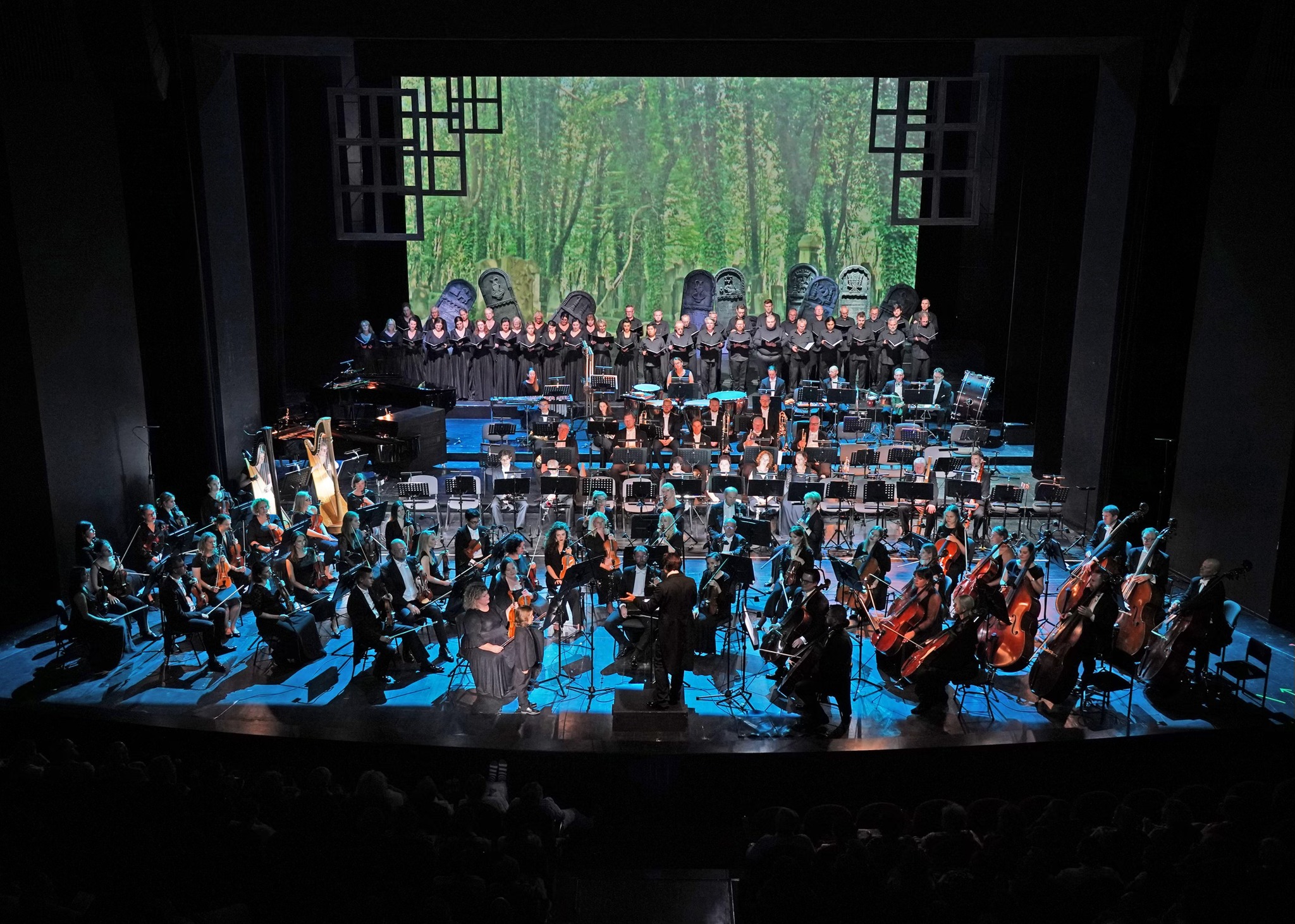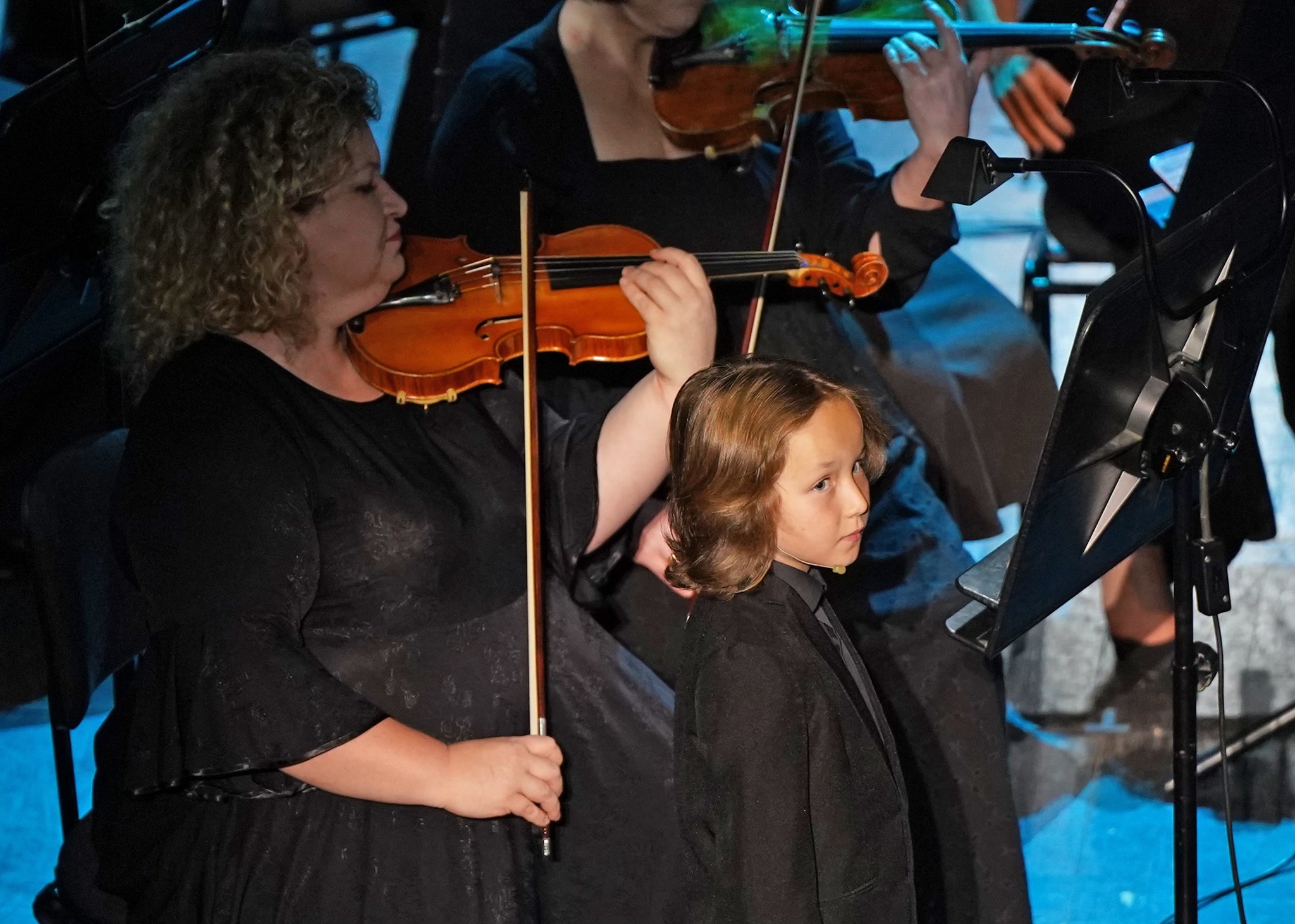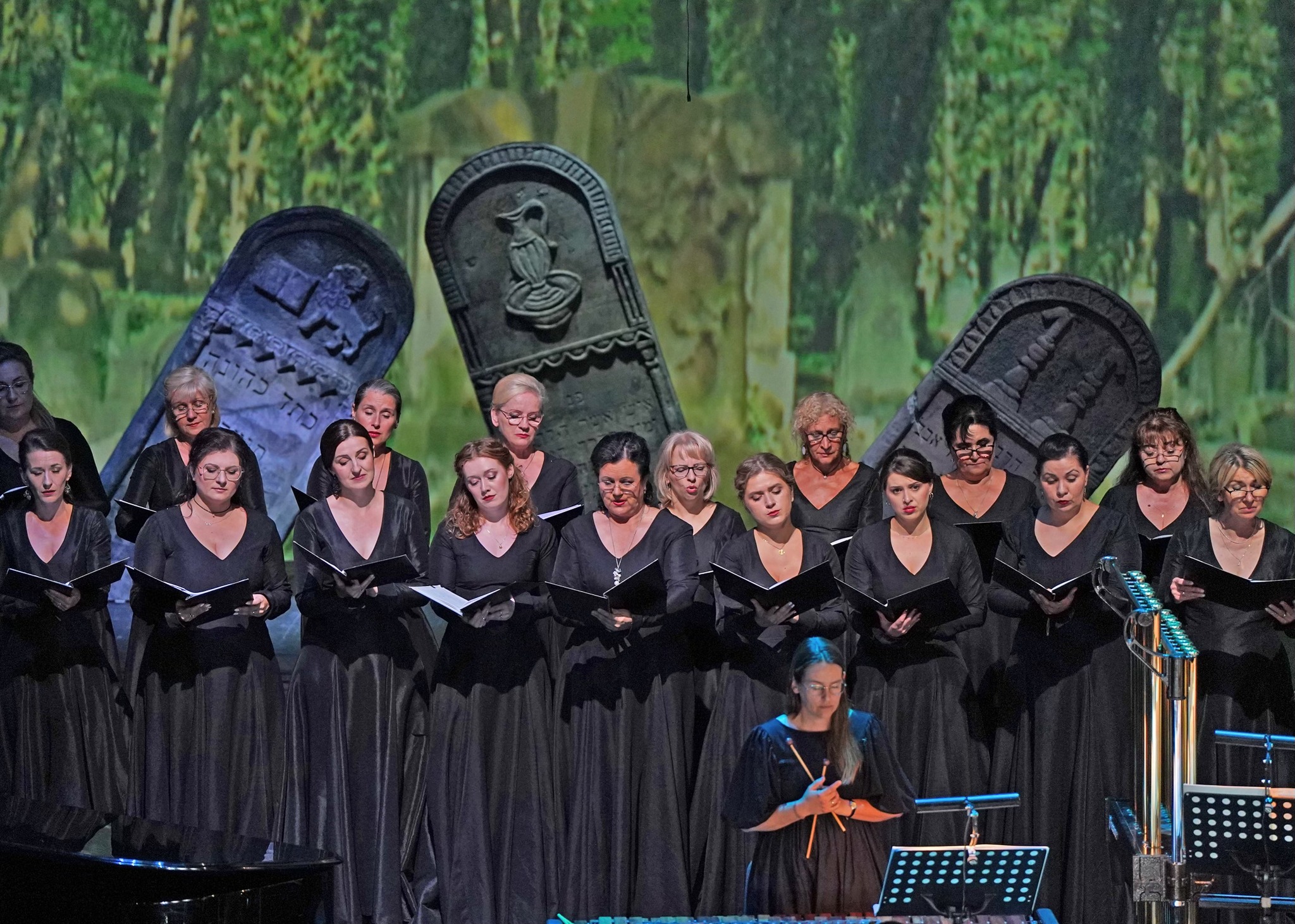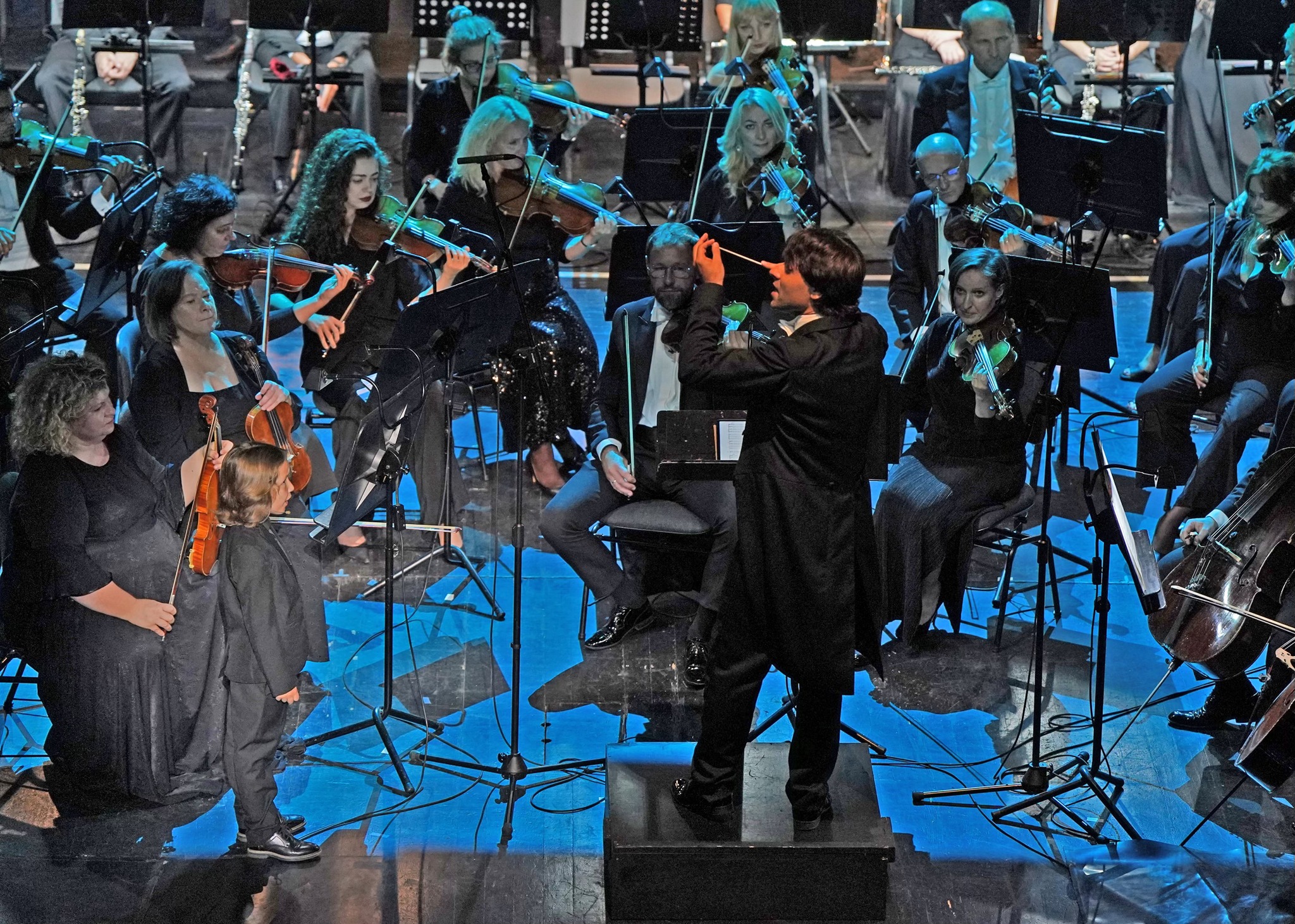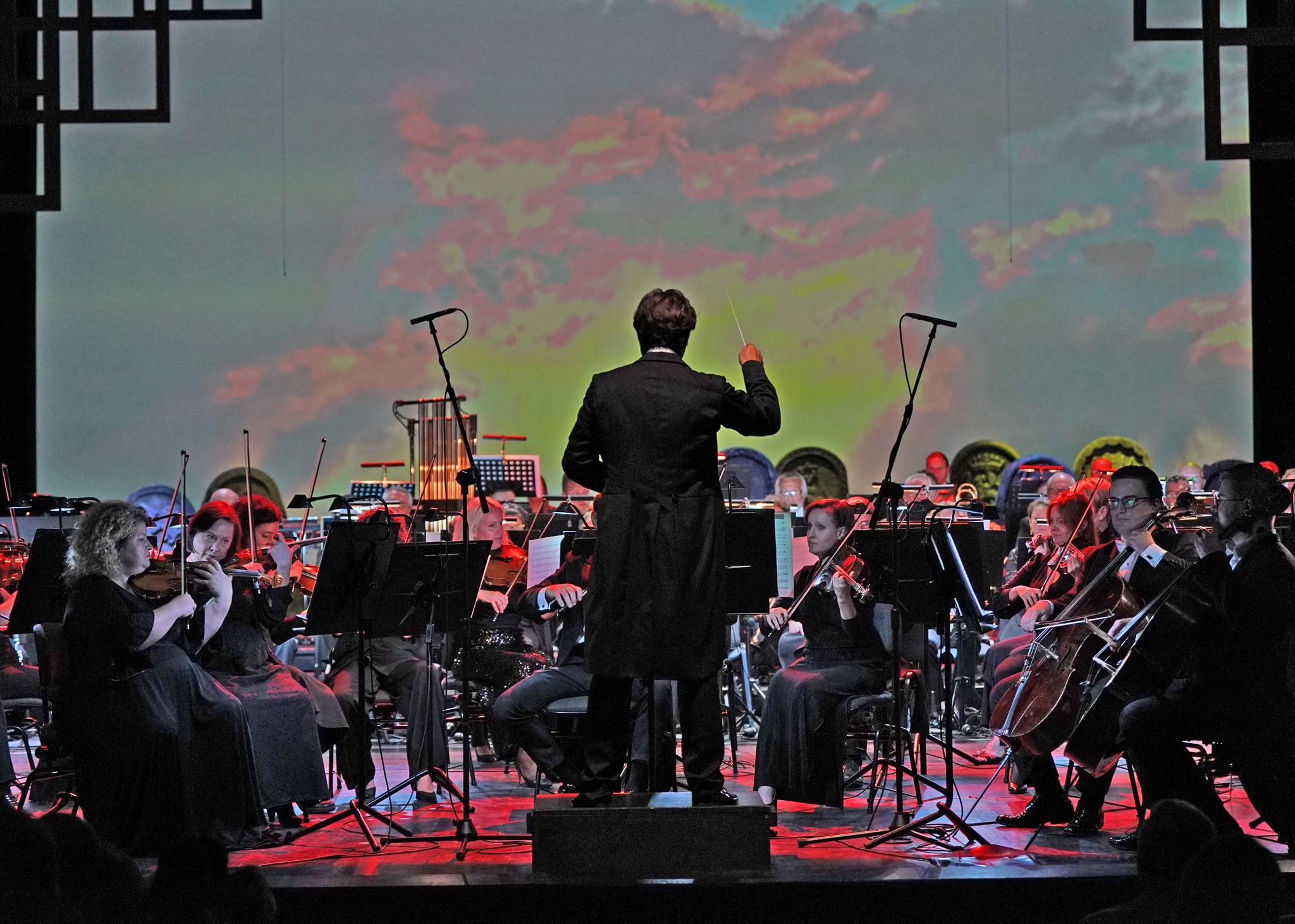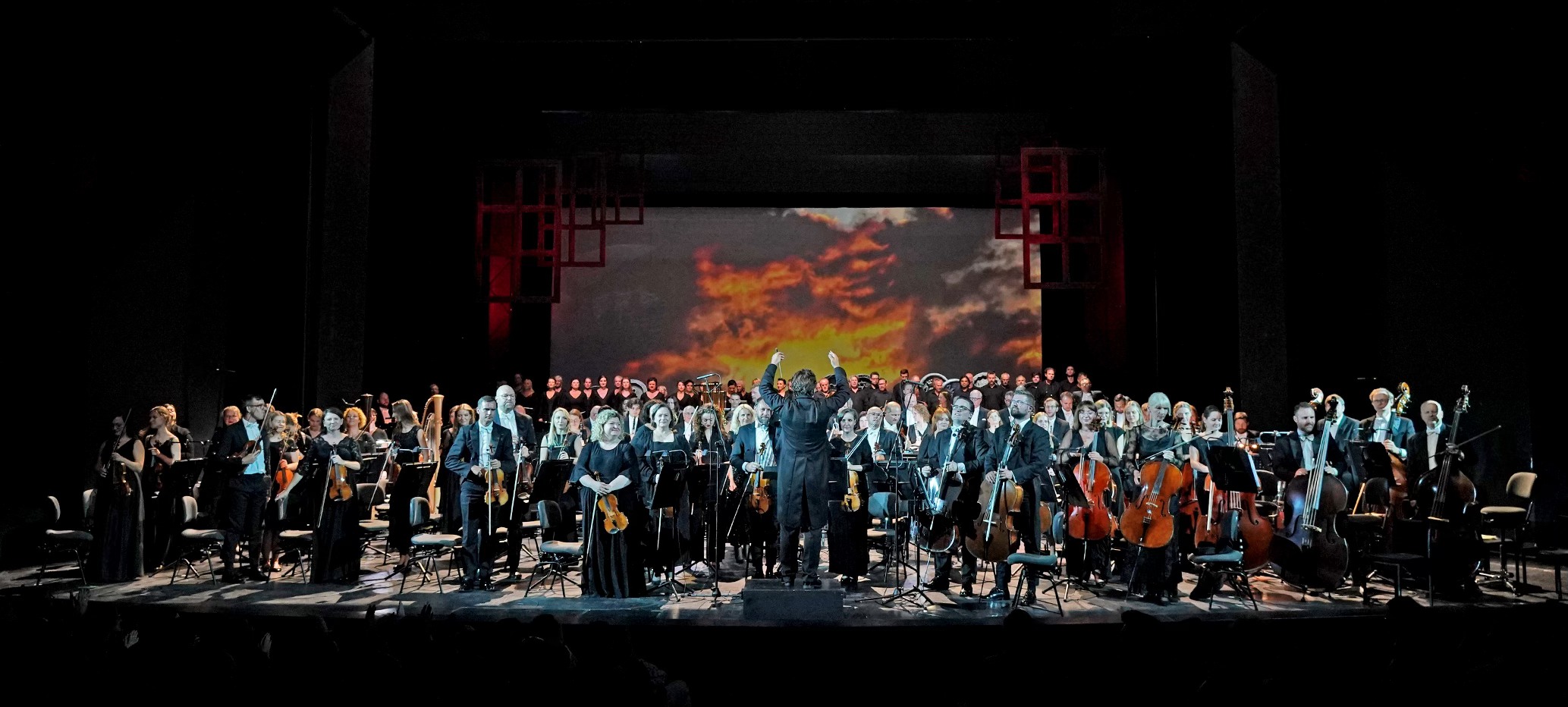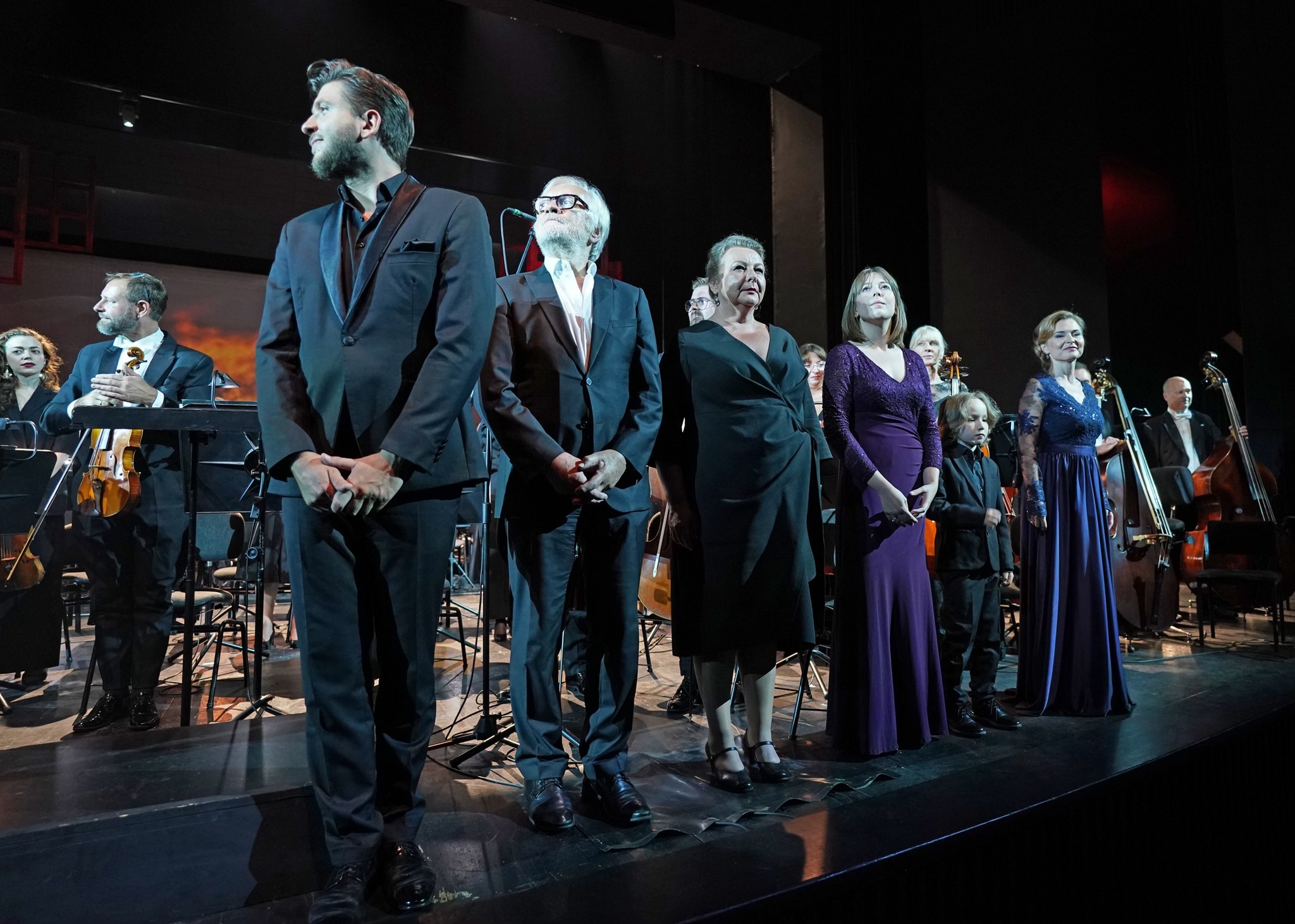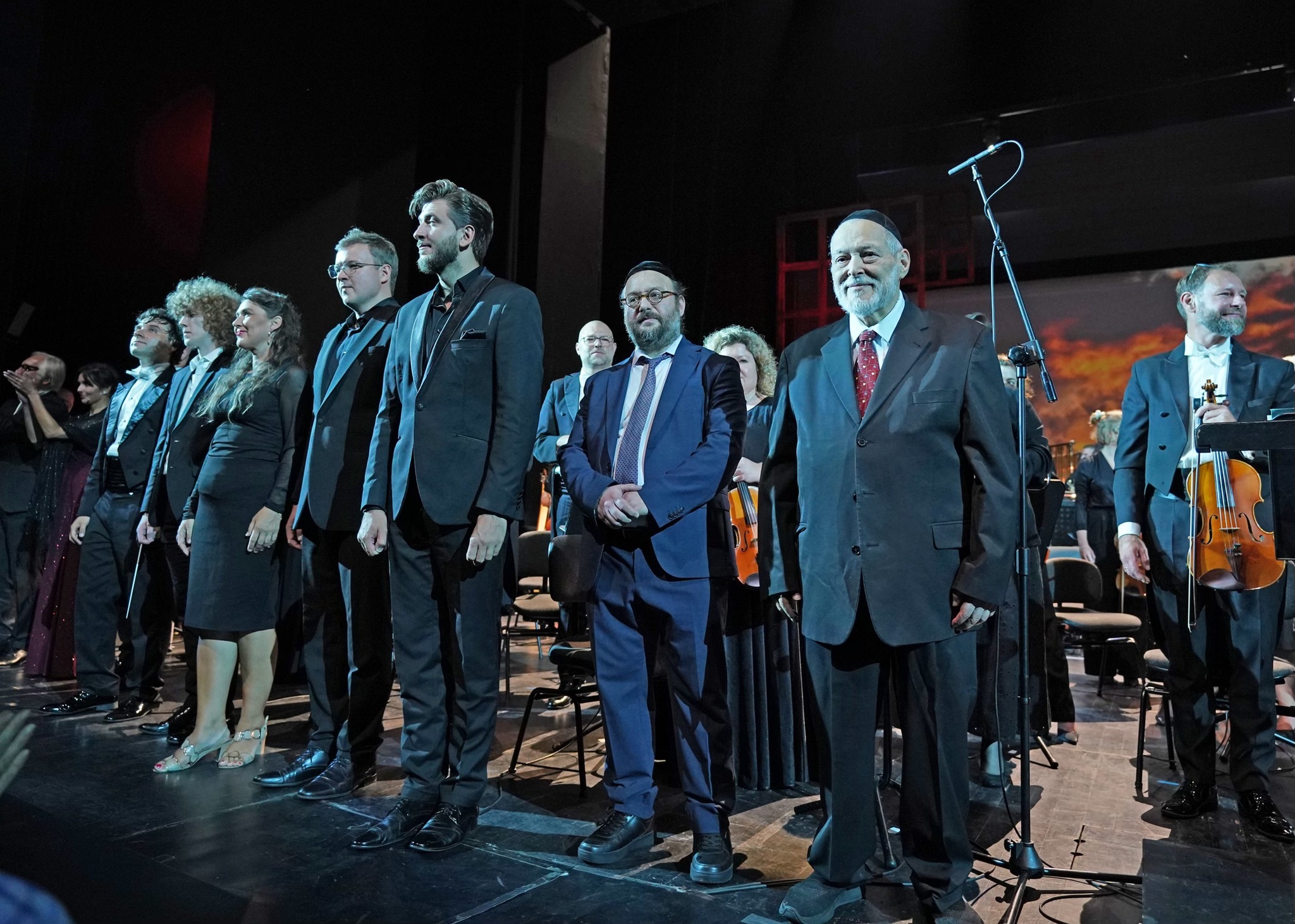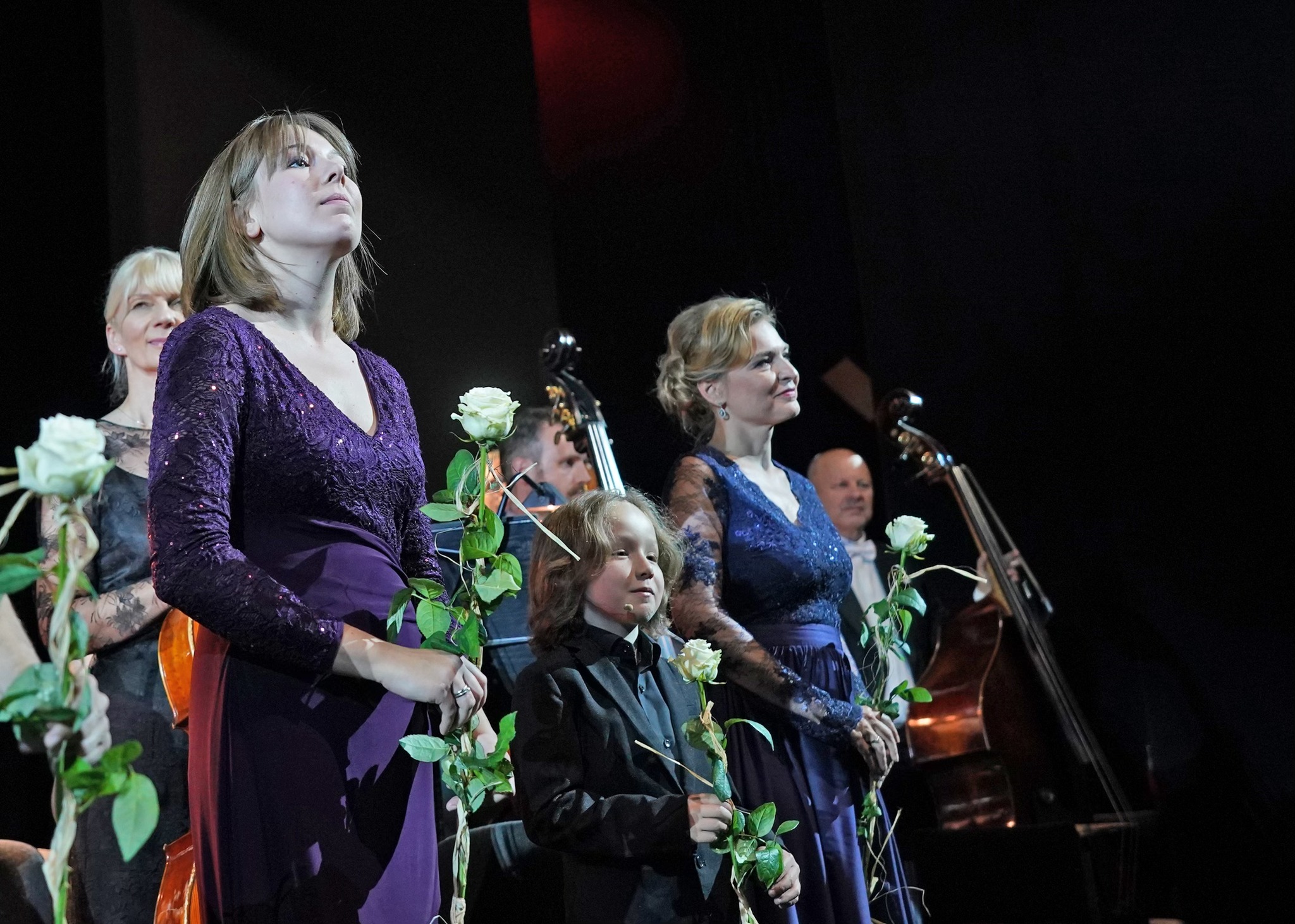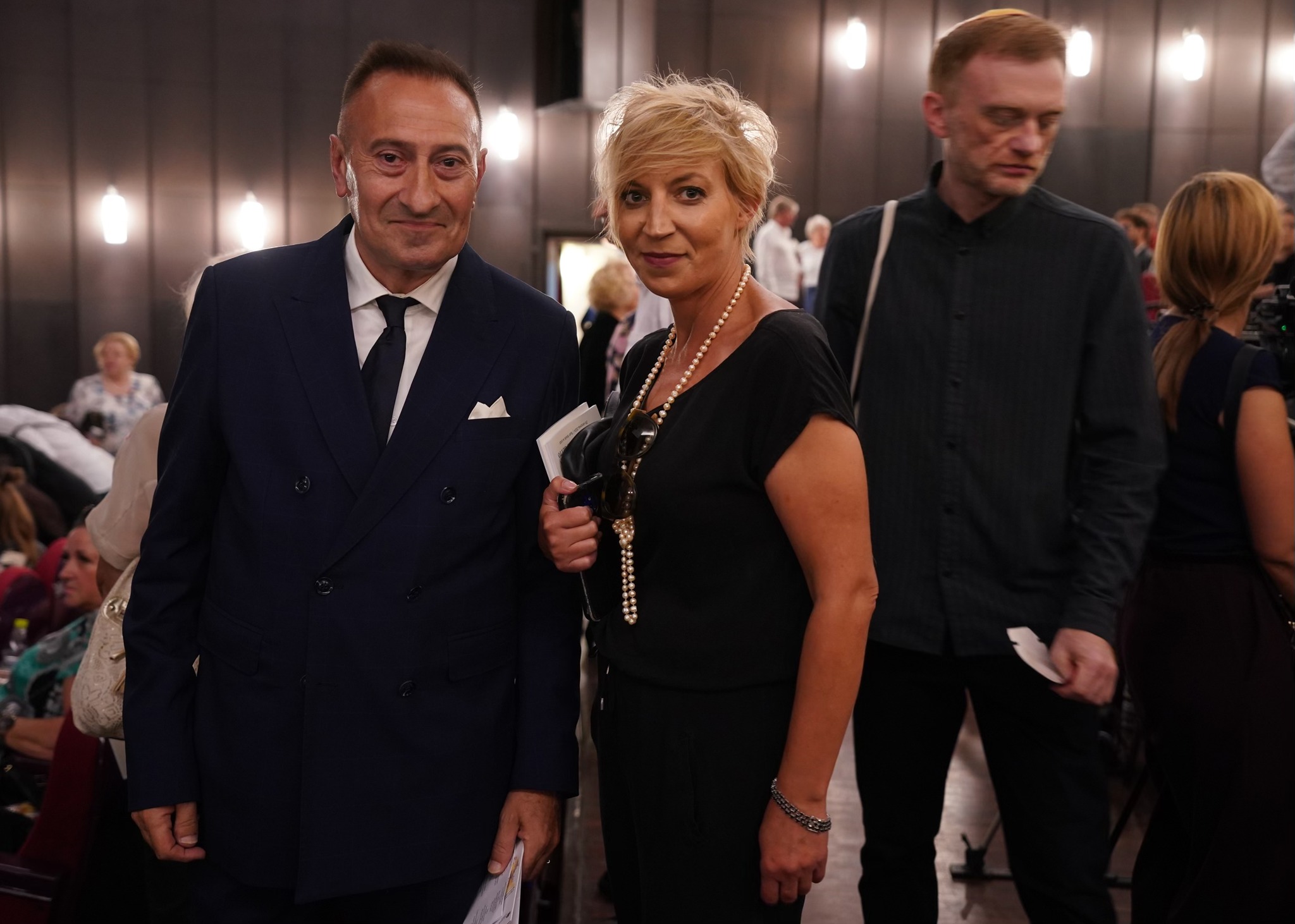On 29 August 2024, a series of main events commemorating the 80th Anniversary of the Liquidation of the Litzmannstadt Ghetto. The date is very symbolic, as in August 1944, German occupants deported the last residents of the Łódź Ghetto to Auschwitz-Birkenau death camp.
This year’s celebrations commenced on 10:30 am at the Pre-Burial House of the Jewish Cemetery at Bracka Street in Łódź. This was where the grand opening of an exhibition: Henryk Ross. From Dawn to Dusk. Photographs from the Łódź Ghetto from 1940 to 1944 took place. The exhibition featured many unique photographs documenting the grim reality of the enclosed district. Shortly afterwards i.e. at 11:00 am, participants in the event held an ecumenical prayer attended by rabbis (including the Chief Rabbi of Poland, Michael Schudrich) and clergy of all Christian denominations. The cemetery ceremonies ended with the symbolic lighting of candles at the Memorial to the Jewish People of Łódź. The organiser of the exhibition and the morning celebrations was the Jewish Religious Community of Łódź.
At 12:00 noon, the ceremony moved to a place of a great symbolic importance i.e. The Radegast Station. It was from this station that most of the Jews of Lodz and those deported from various corners of the country and Europe, set off from on their last journey, which led them to the Nazi death camps. The ceremony was attended by survivors of the Łódź ghetto, representatives of the local and state authorities, members of the Jewish Religious Communities, clergy of the Catholic Church, directors of Jewish and cultural institutions, as well as common residents of Łódź. During the event, speeches were delivered by Hanna Zdanowska, Mayor of Łódź, and the two survivors i.e. Hana Svirsky i Leon Weintraub. “I ask all of you to resist the resurgence of fascist, xenophobic and inhumane forms of human discrimination with your attitude and actions, and to remember those who have been taken away from us. And above all, I quote the words of Marian Turski: >>Let us not be indifferent to all manifestations of evil<< said Svirsky to the attendees. Also Leon Weintraub delivered his appeal to the audience: “I urge the people of good will all over the world to multiply their efforts to challenge the ideas whose consequences, such as genocide, we recall today”. The ceremony at the Radegast Station closed with the laying of flowers at the domicile of the today’s Museum of Independence Tradition in Łódź. On behalf of the Social and Cultural Association of Jews in Poland, the flowers were laid by Artur Hofman, TSKŻ President, Jacek Młynarski, TSKŻ Board Member, Magdalena Jureńczyk, Head of TSKŻ Łódź, Izabella Sobańska-Klekowska, Head of TSKŻ Częstochowa and Michel Gourary, Head of the European March of the Living. The commemoration events at the Radegast Station were hosted by the Marek Edelman Centre for Dialogue in Łódź and the Museum of Independence Traditions in Łódź.
When the ceremony at Litzmannstadt Ghetto Victims Memorial Avenue 12 ended, all those gathered set off on the March of Remembrance. The almost four-kilometre long marching route included four stations: Monument to the Martyrdom of Children, Roma Forge, Monument to Poles Saving Jews and Monument to the Decalogue. At each memorial site, the marchers made a brief stop, during which a representative of the respective minority or religion said a prayer for the victims of the ghetto, and a speaker read out a thematic poem in line with the history of the site. In accordance with a pre-established concept intended to highlight solidarity between minorities, President of the Roma Association in Poland, Roman Kwiatkowski said a prayer at the Monument to the Martyrdom of Children, and Chief Rabbi of Poland, Michael Schudrich sang a psalm at the Roma Forge. At the Park of the Survivors, by the Monument to Poles Saving Jews, Archbishop of Lodz, Grzegorz Ryś delivered his address in which he referred to an admonition of St Francis of Assisi, stressing the importance of human dignity: “You may deprive human beings of everything, but you cannot deprive them of their dignity. You can take away a person’s life, but you cannot take away his or her dignity. […] You can take away the meaning of their work, like in the ghetto, but you cannot take away their dignity. You can take away their children, parents and grandparents, just like in the times of Allgemeine Gehsperre, but you will never take away their dignity”. The March of Remembrance set off from the venue which used to be associated with death i.e. the Radegast Station, and ended at the place which used to bustle with life for centuries i.e. the Old Town Park of Łódź, where the major synagogue of the local Jewish Community was located in the pre-war period. The March was co-organised by the Social and Cultural Association of Jews in Poland, Archdiocese of Lodz, Jewish Community of Lodz and March of the Living.
The closing ceremony of the anniversary was the Concert Commemorating the 80th Anniversary of the Liquidation of the Litzmannstadt Ghetto, which was held at the Grand Theatre in Łódź. Following speeches by the most distinguished guests, including Łódź Governor Dorota Ryl, Advisor to the President of the Republic of Poland Łukasz Rzepecki, and President of the TSKŻ Artur Hofman, an extraordinary musical performance began. The first to appear on stage was Cantor Benjamin, who gave an emotionally poignant performance of the piece Av Horachamim by Samuel Malawsky. Performances by the Clil Jewish Choir, the Choir of the Grand Theatre in Łódź and the Children’s and Youth Choir of the Grand Theatre in Łódź, were intercut with acting interludes by Andrzej Seweryn and Milena Lisiecka, who read out extracts from ghetto diaries and excerpts from The Tree of Life, a novel by Chava Rosenfarb. The second part of the concert was dominated by orchestral music. The pianist Julia Kociuban performed The Hebrew Rhapsody, a stirring piece composed by Alexander Tansman, and the world-famous violinist Leila Josefowicz accompanied by the Orchestra of the Grand Theatre in Łódź conducted by Rafał Jania, played the second movement of the violin concerto in G minor, Op. 26. The last act of the show featured the expressive vocal-symphonic poem by Wojciech Kilar titled The Exodus, which was loosely based upon the Jewish folklore. This particularly prestigious event was organised by the Grand Theatre in Łódź, the Social and Cultural Association of Jews in Poland and the Jewish Religious Community in Łódź.
By Marta Rydz
Photo by:Centrum Dialogu im. Marka Edelmana/ TSKŻ/ Teatr Wielki w Łodzi
